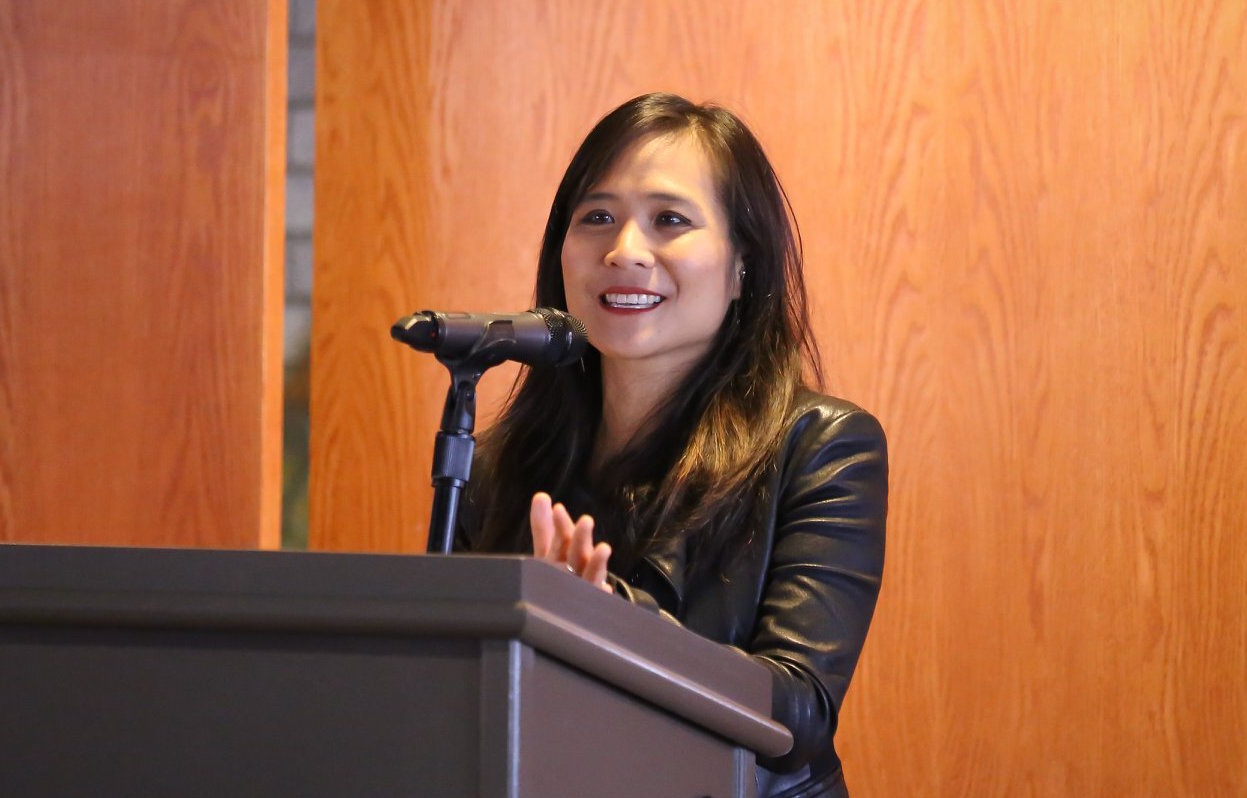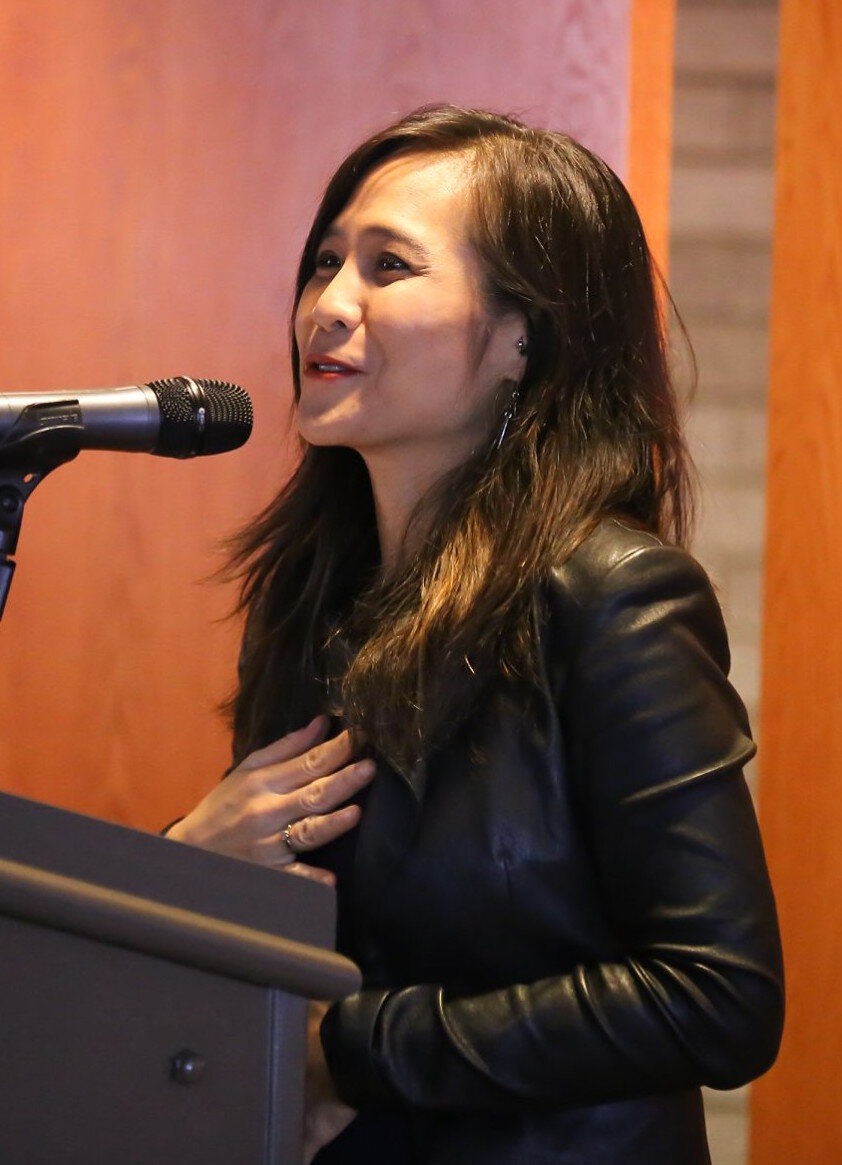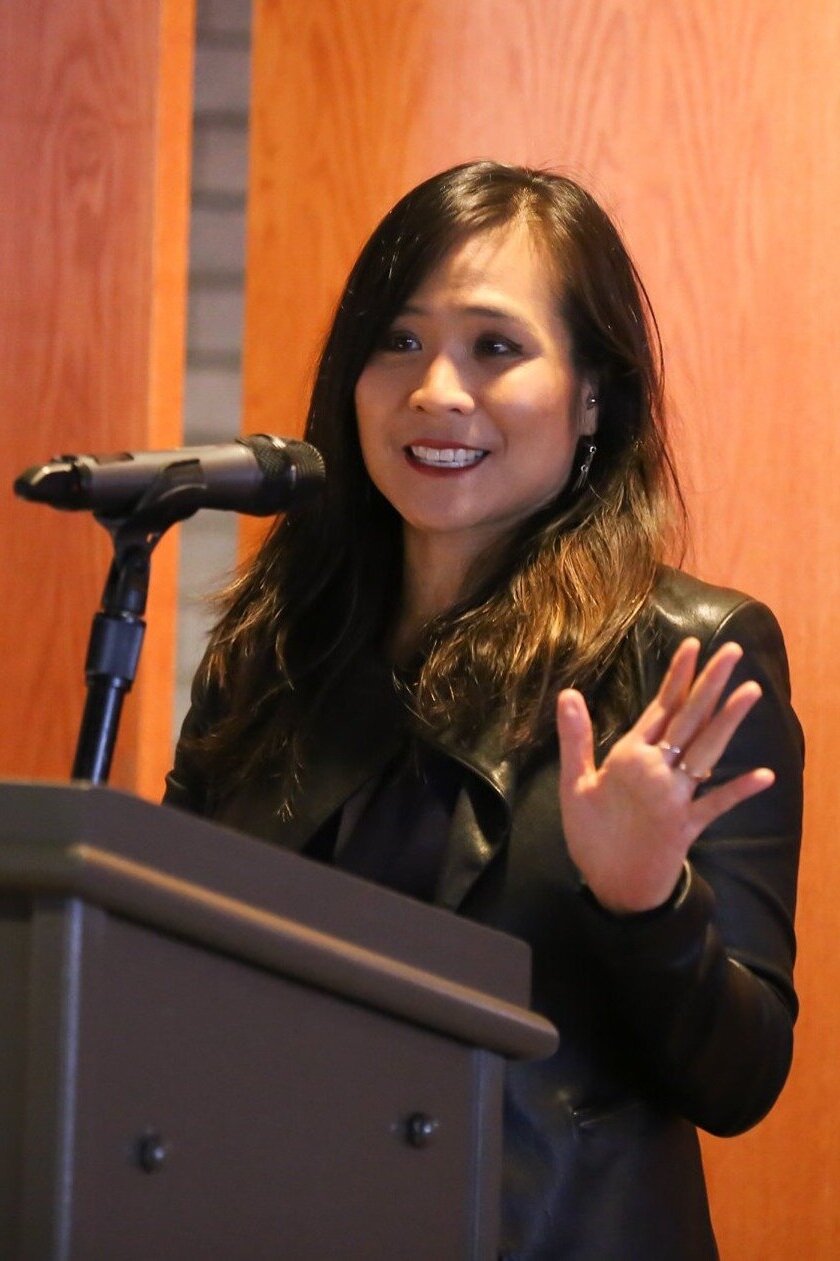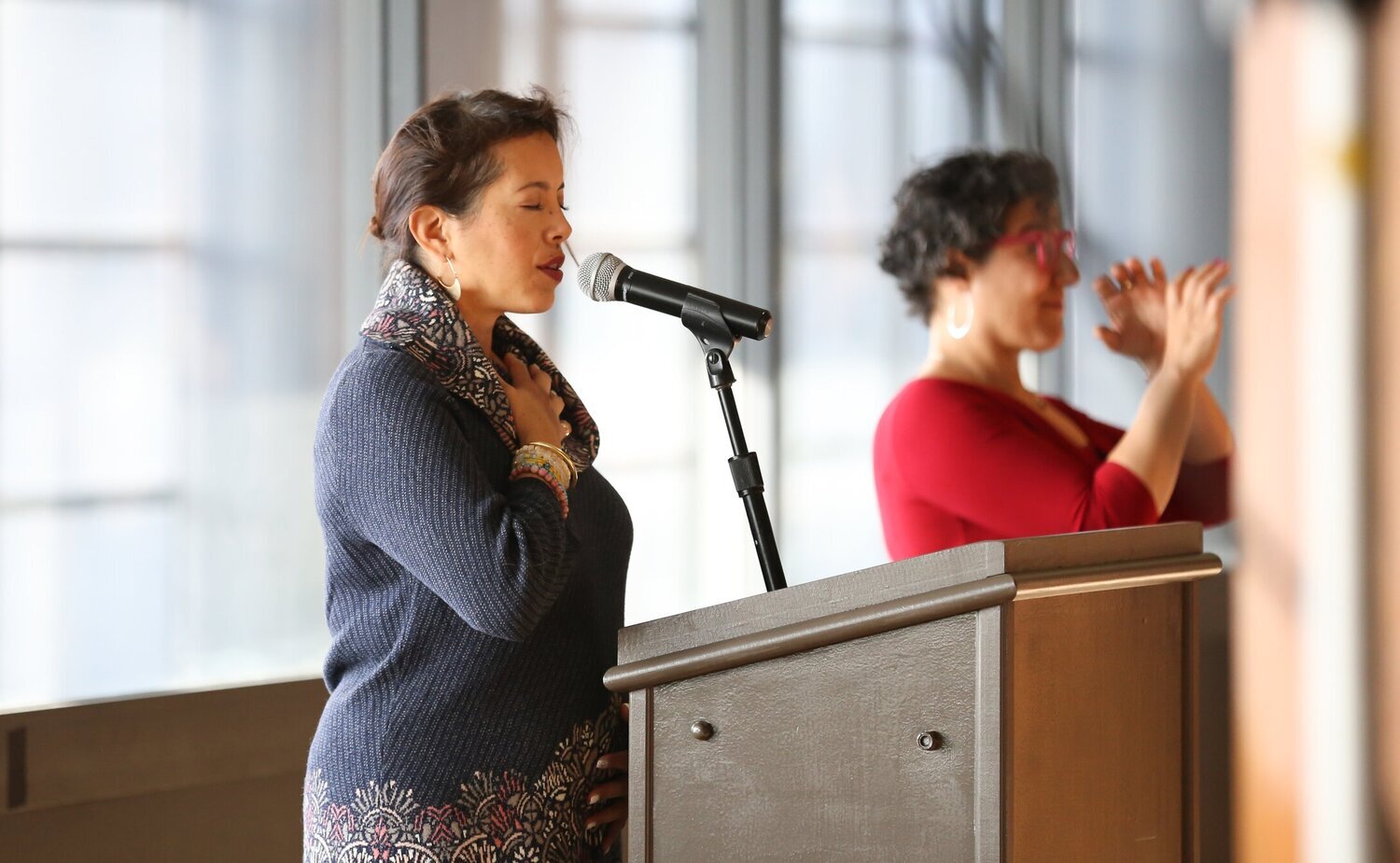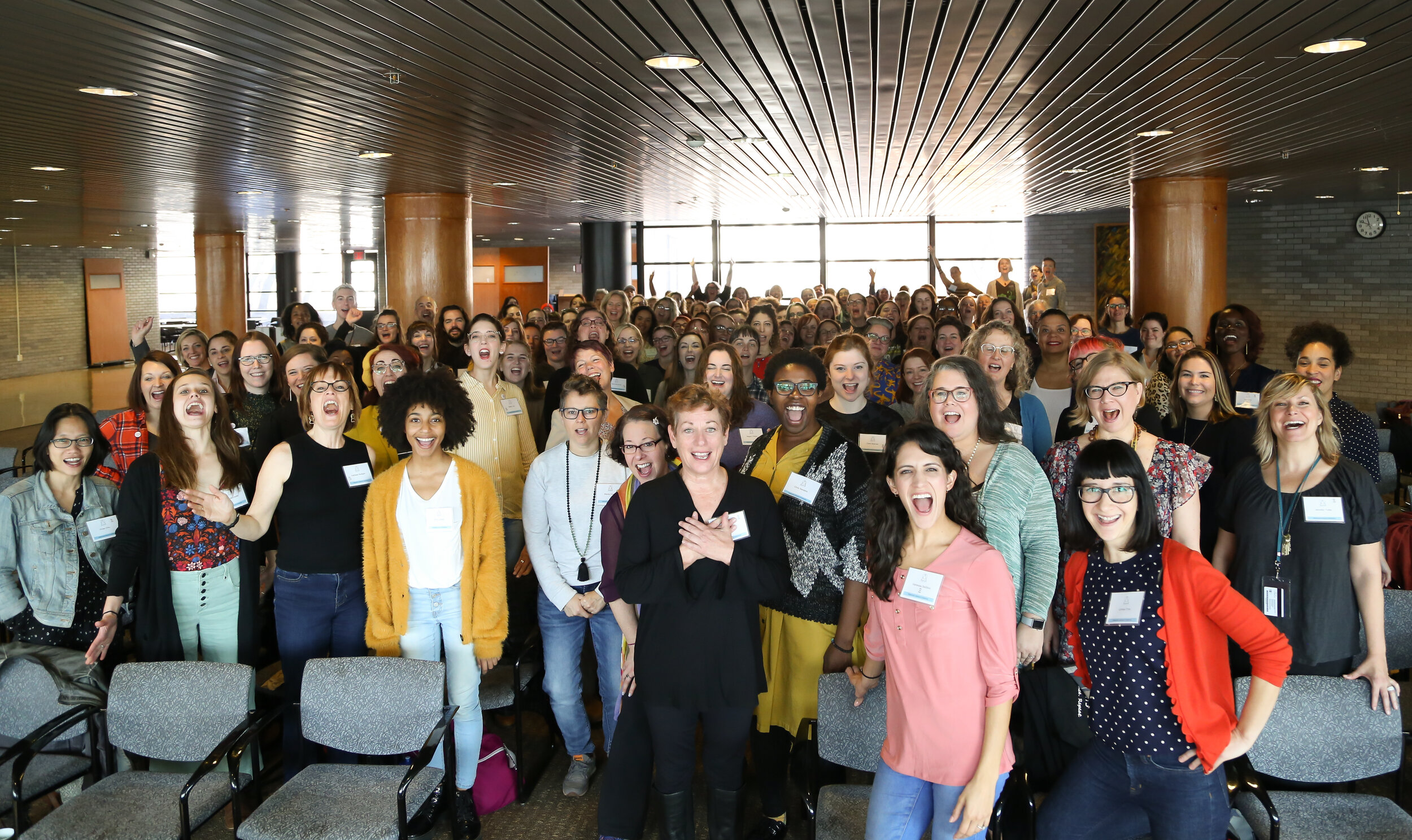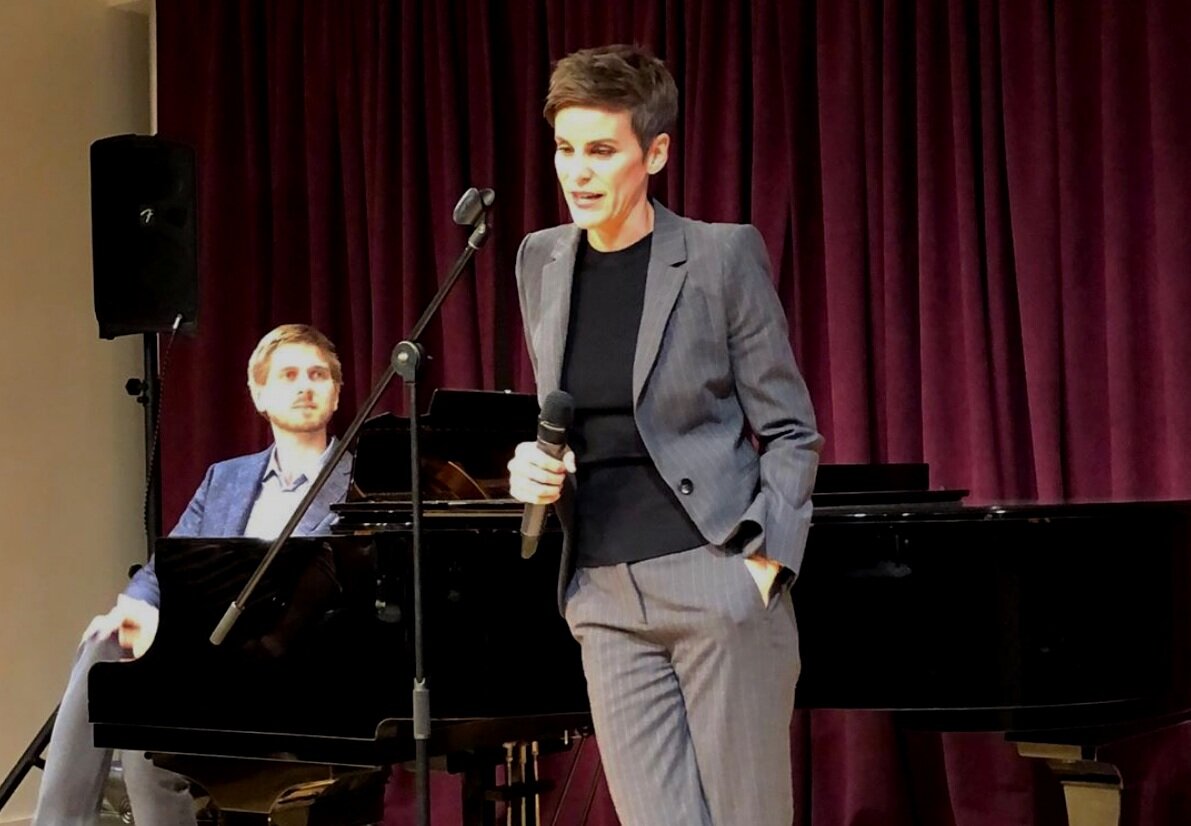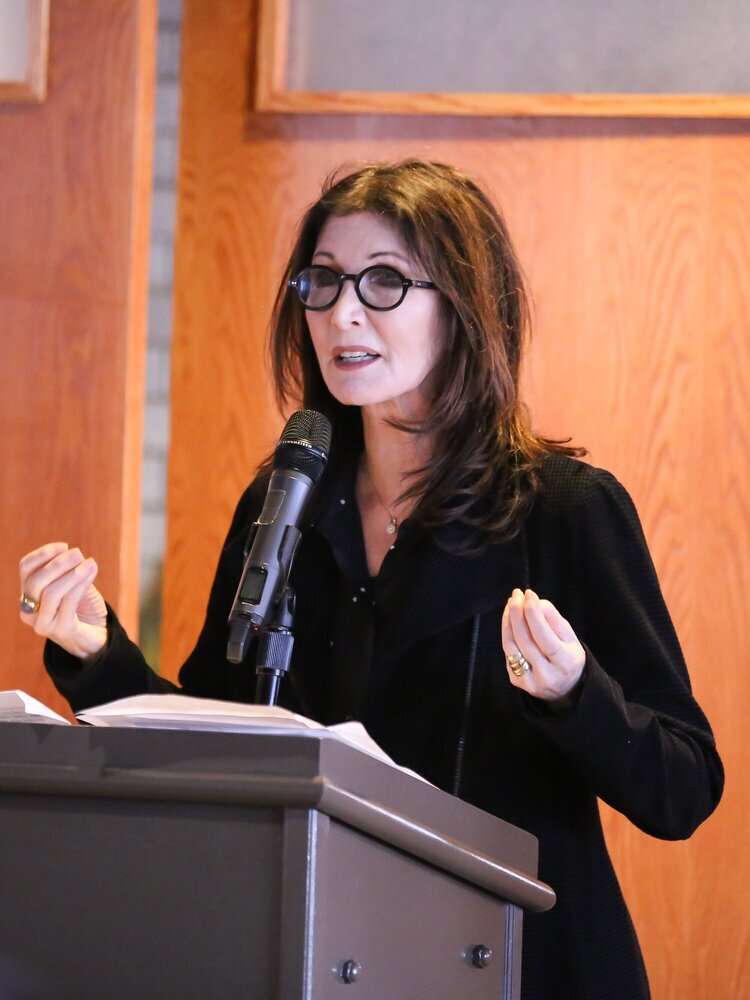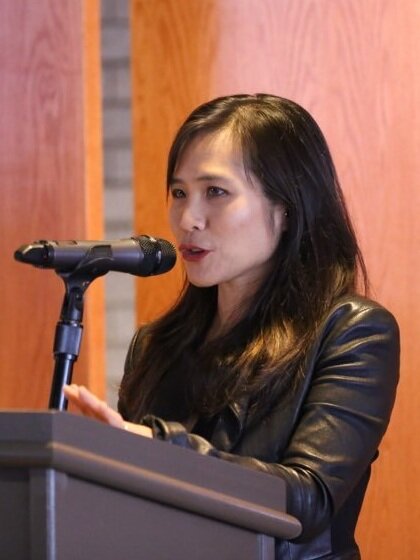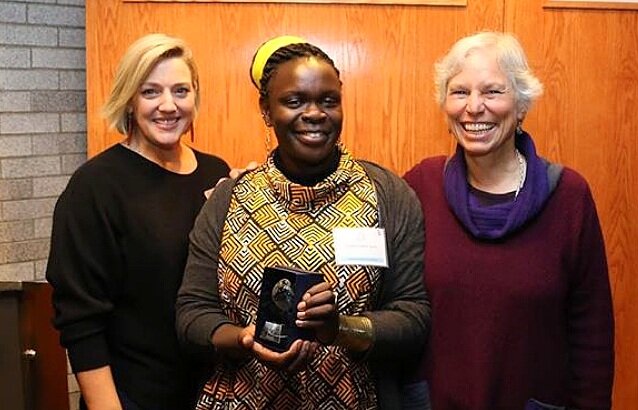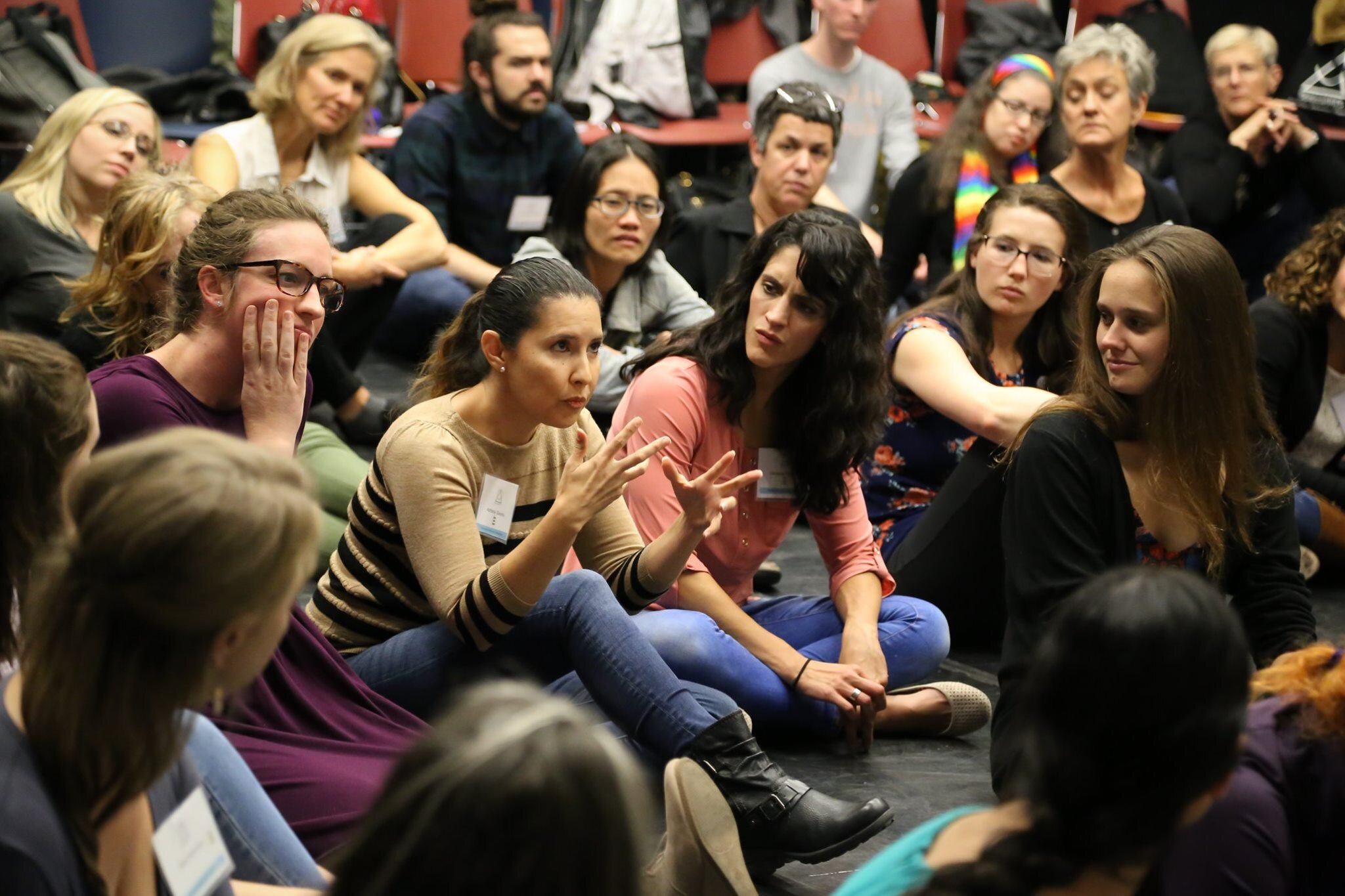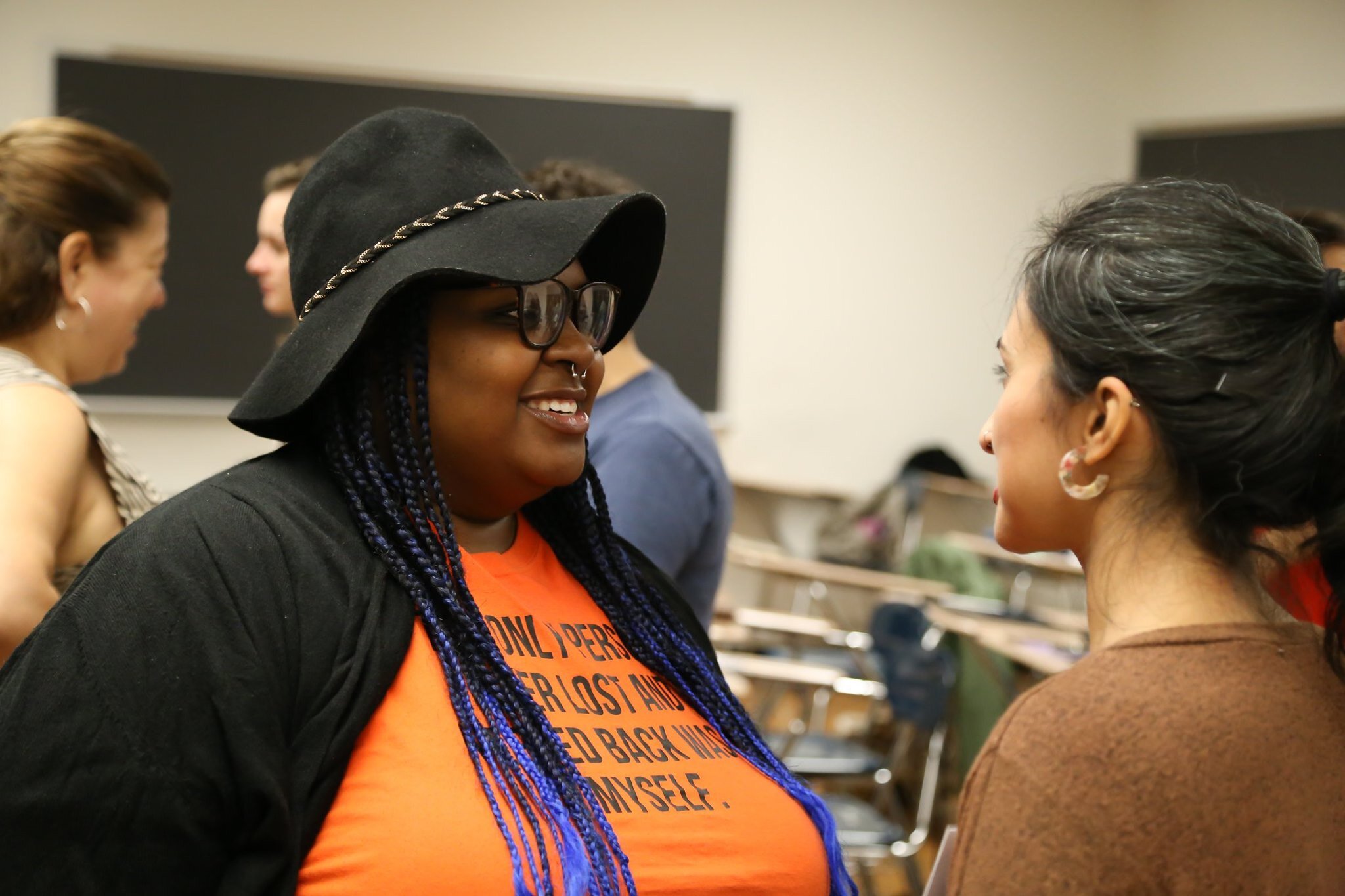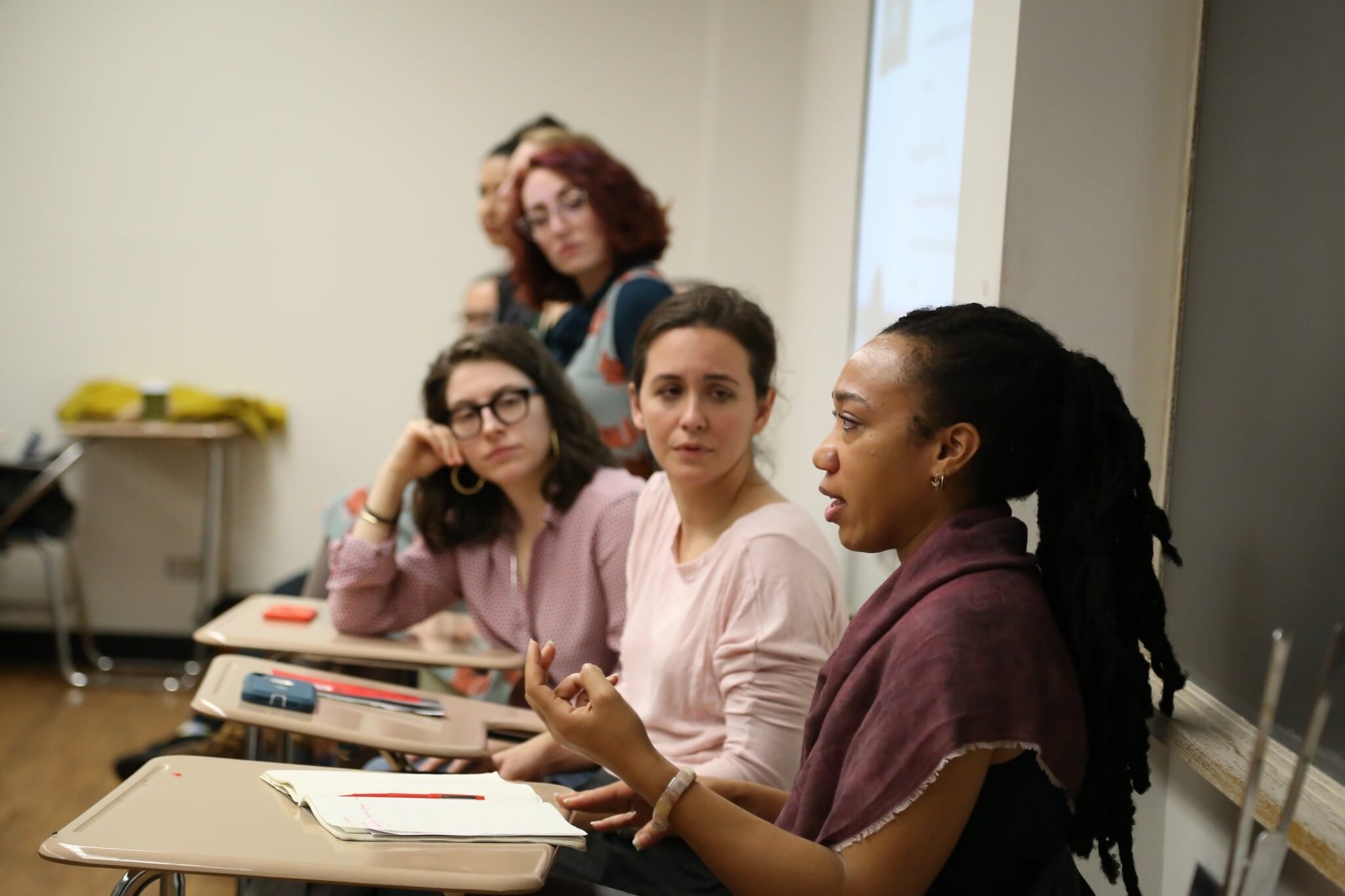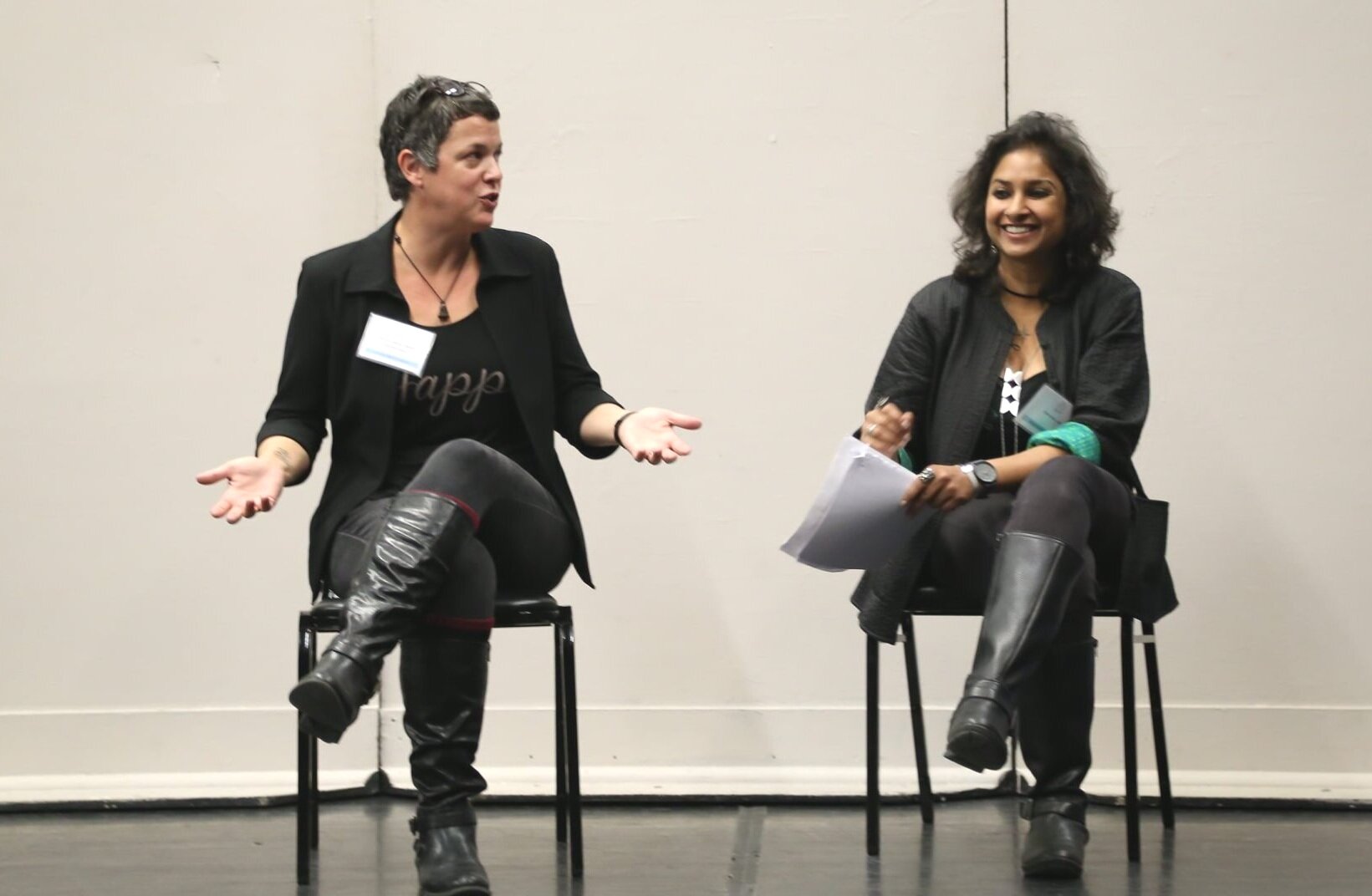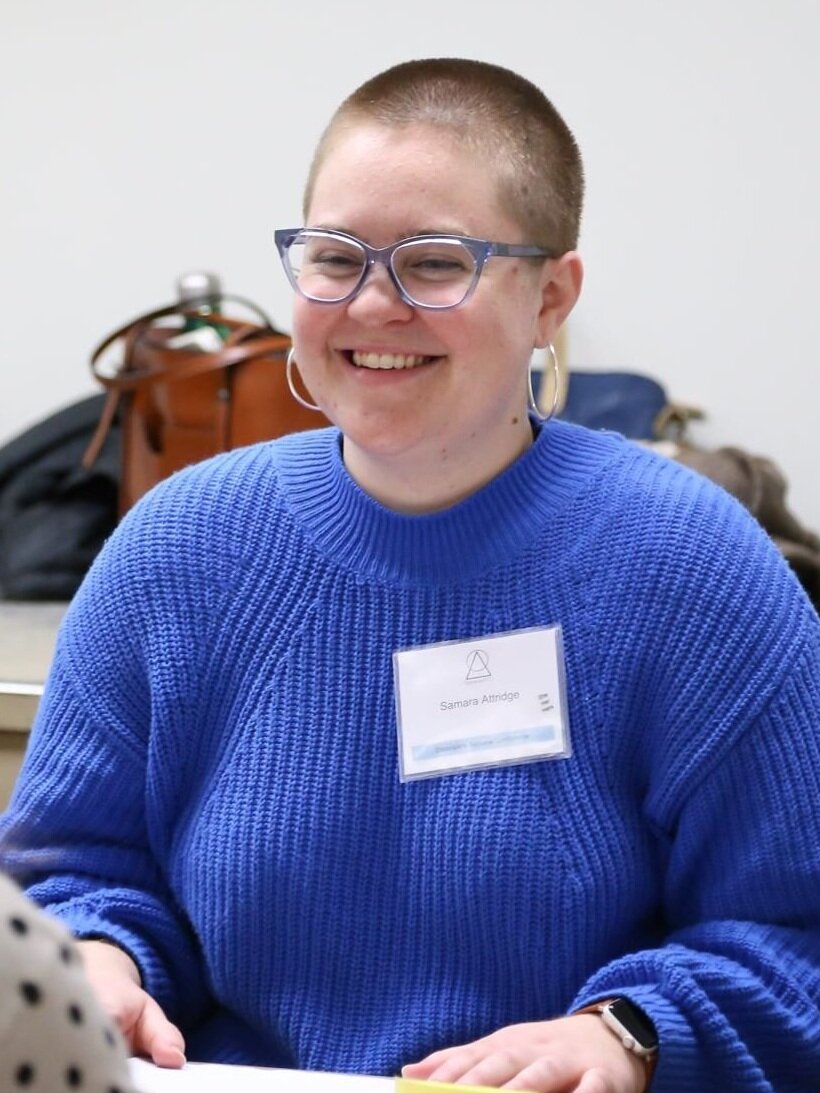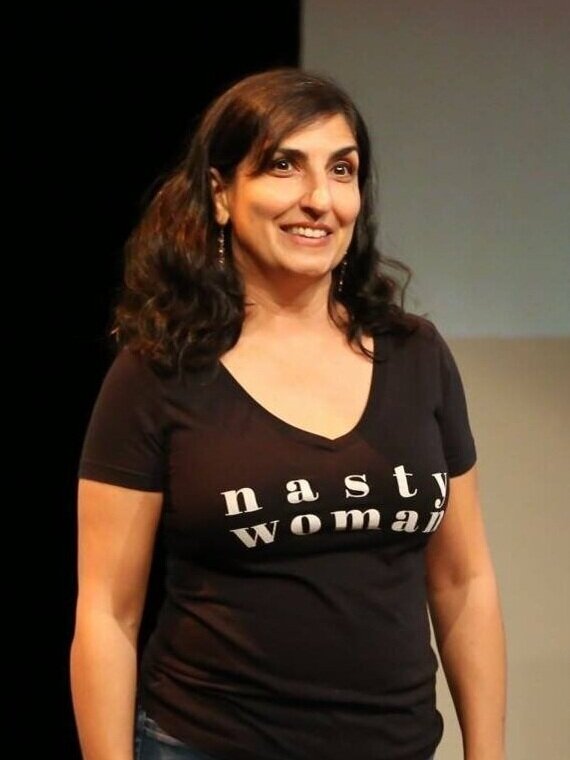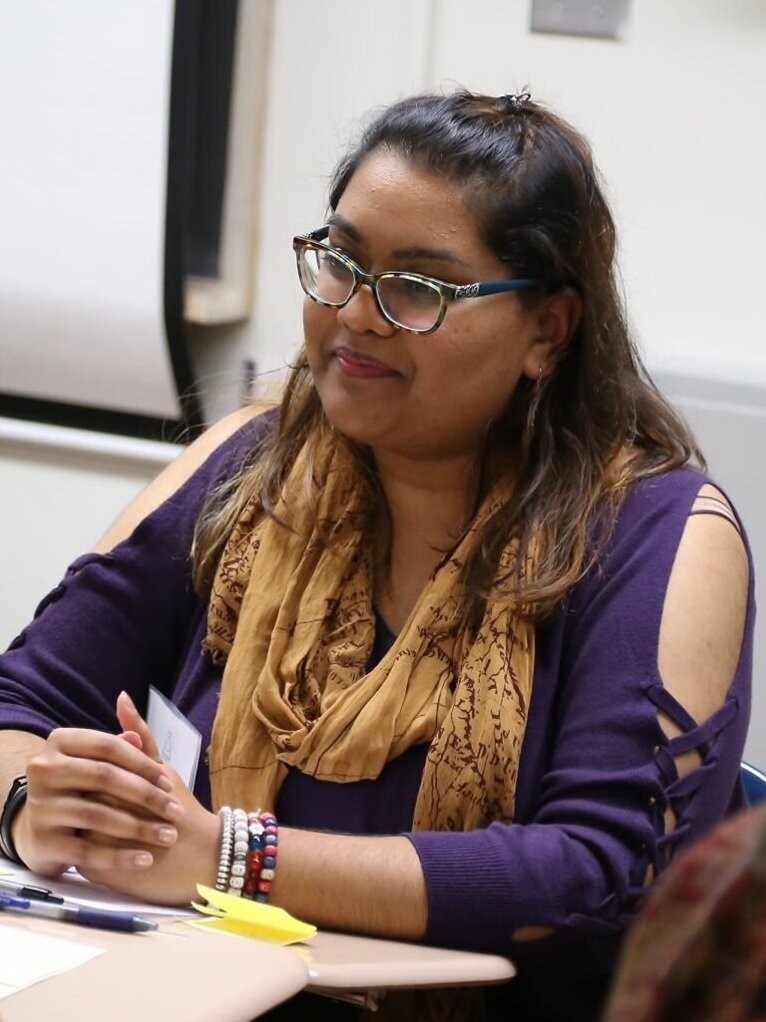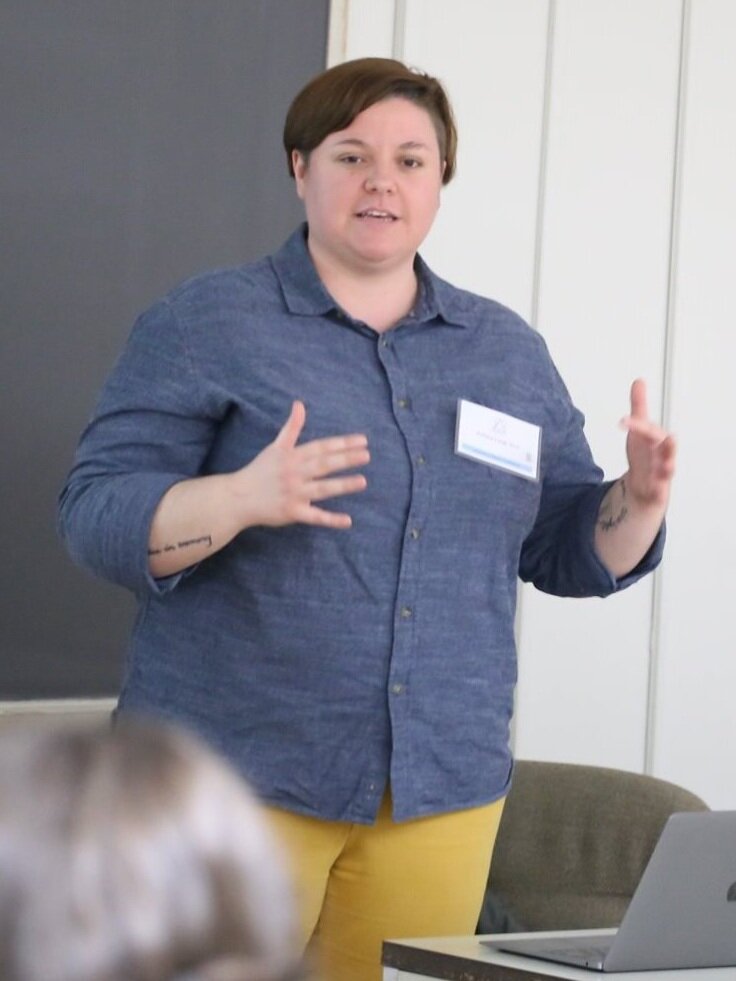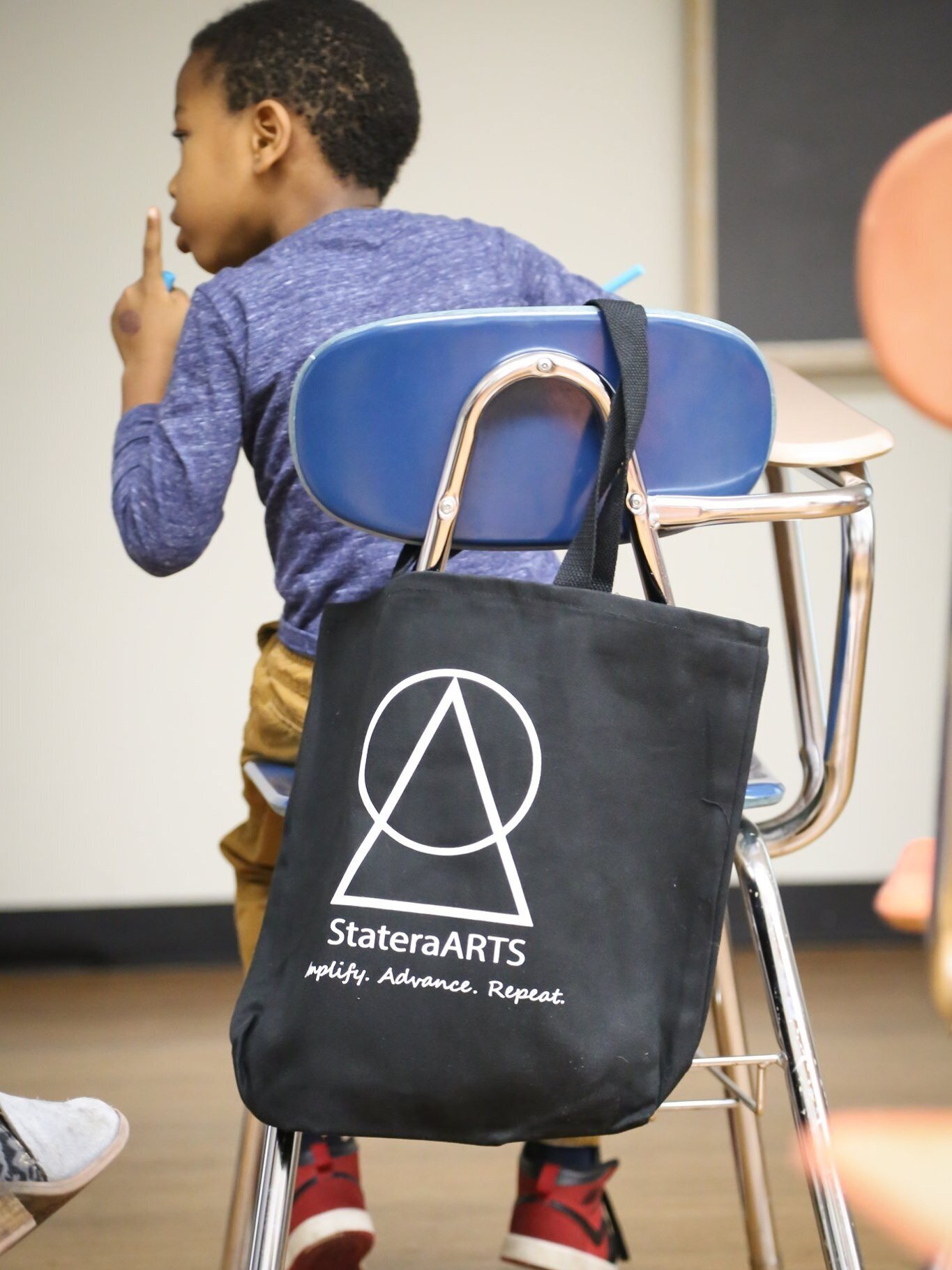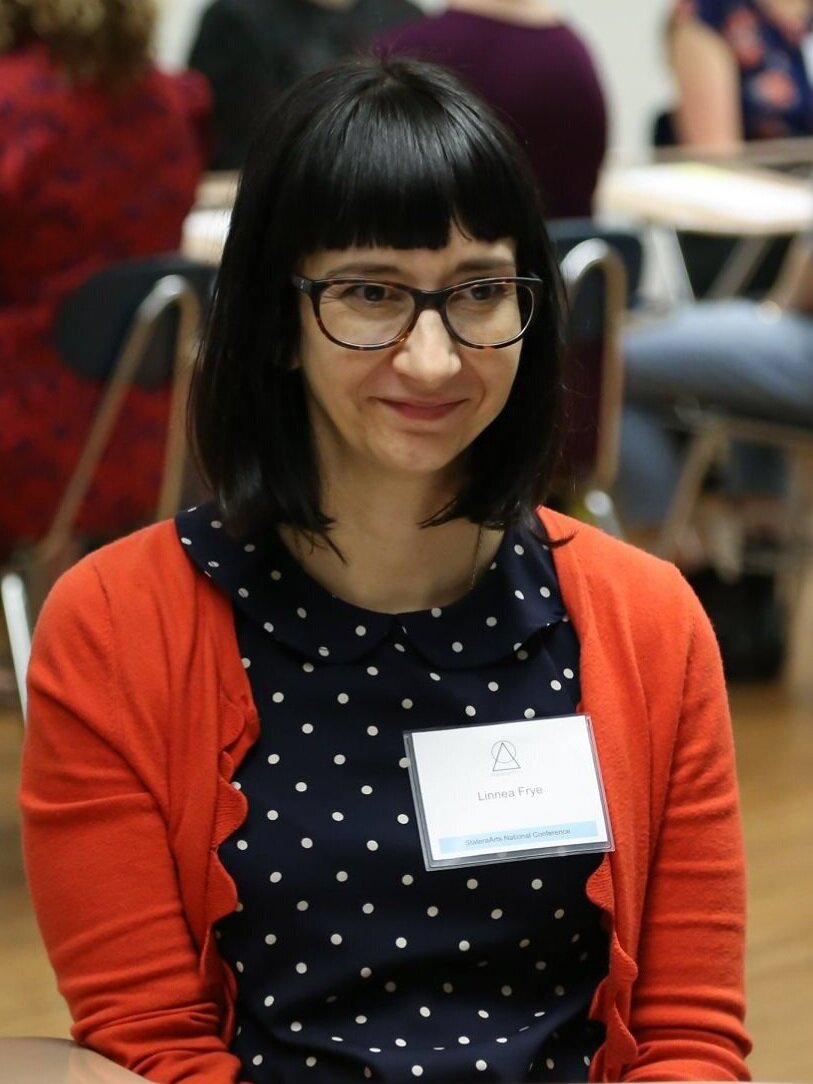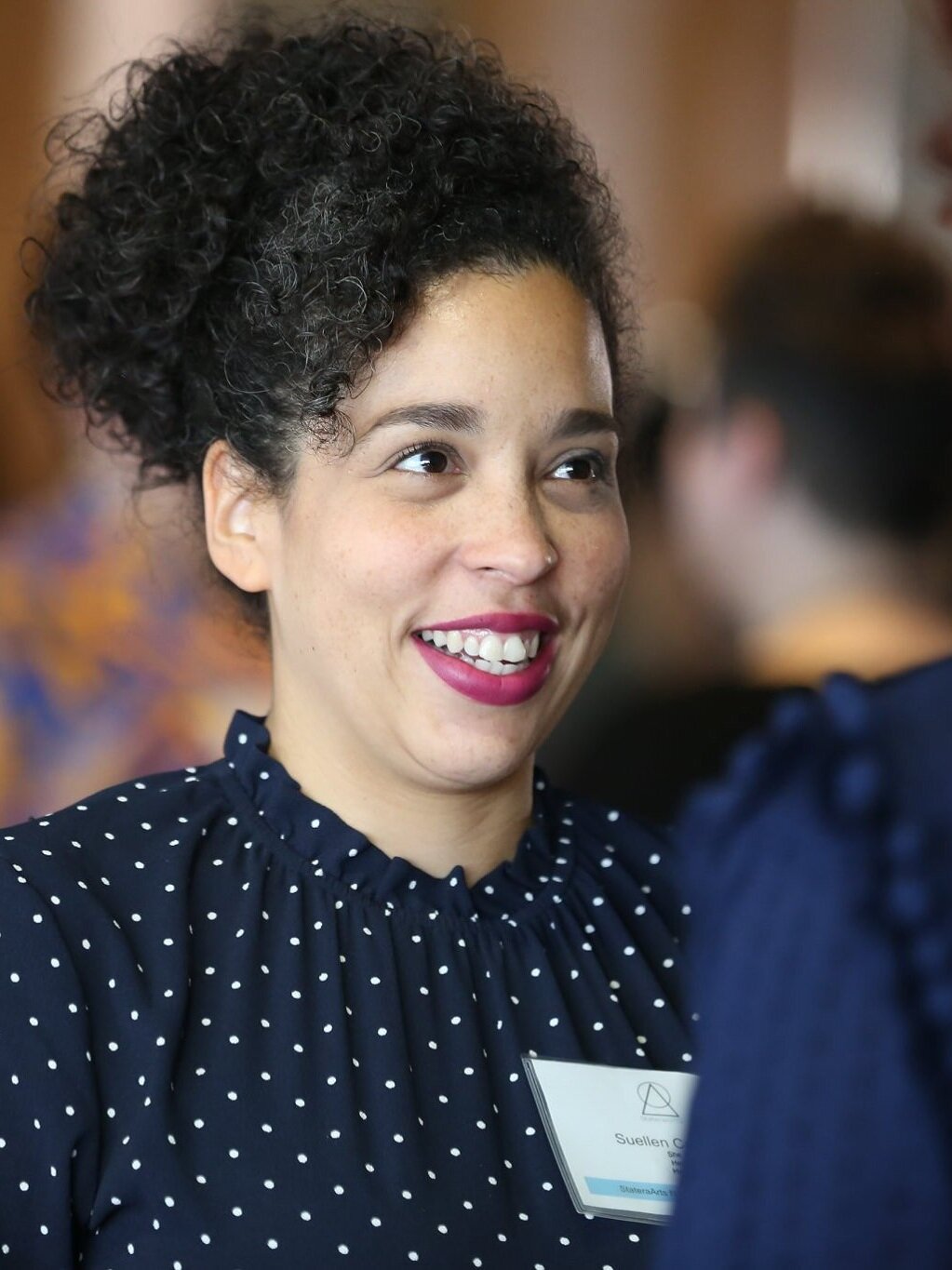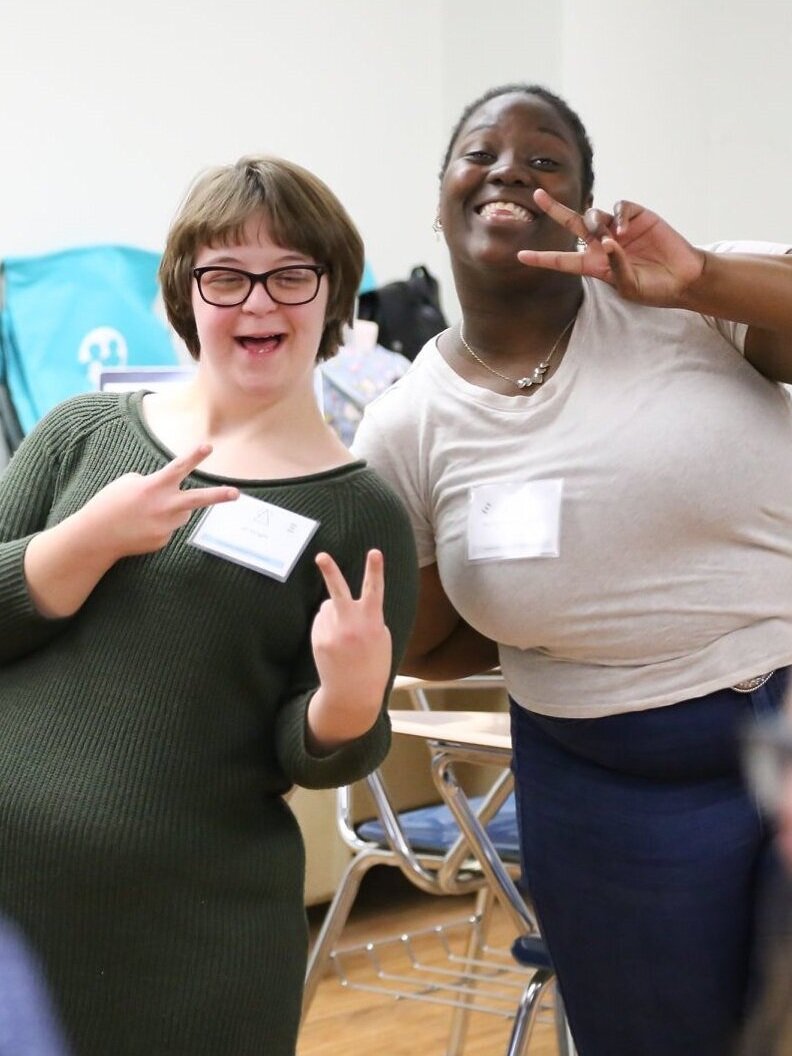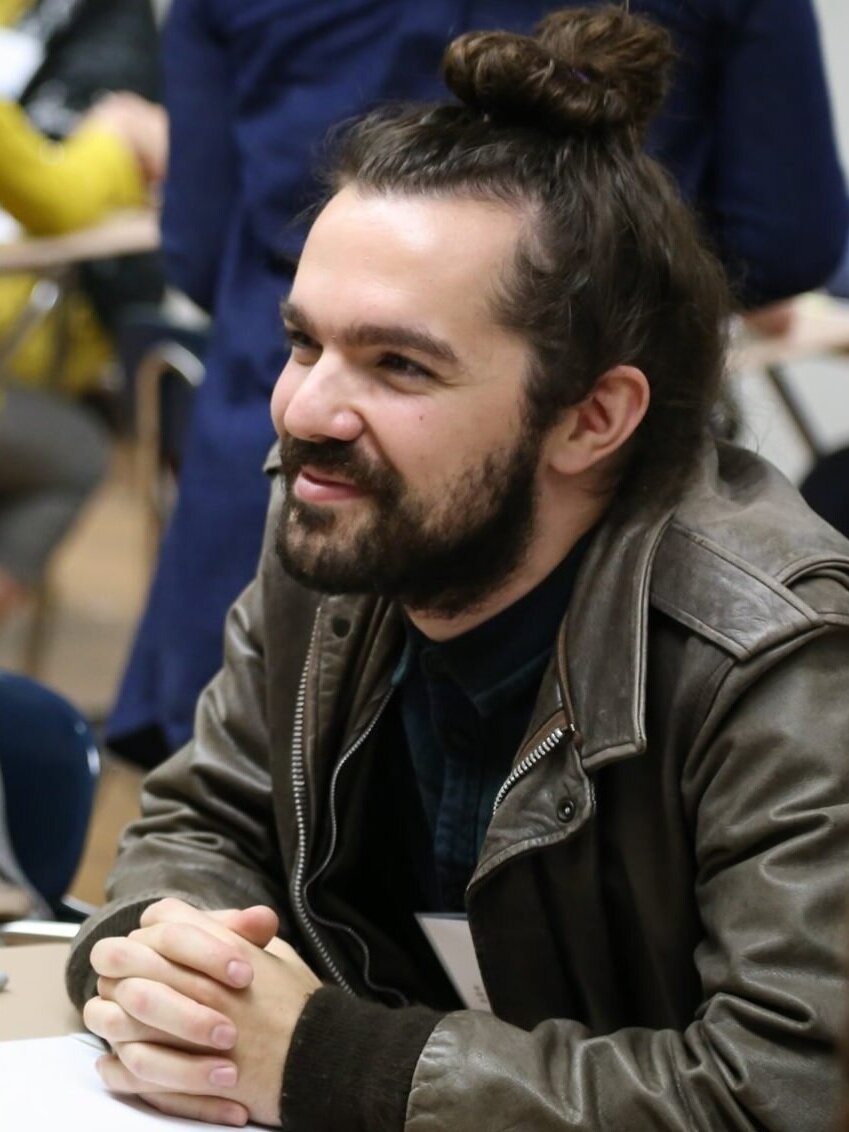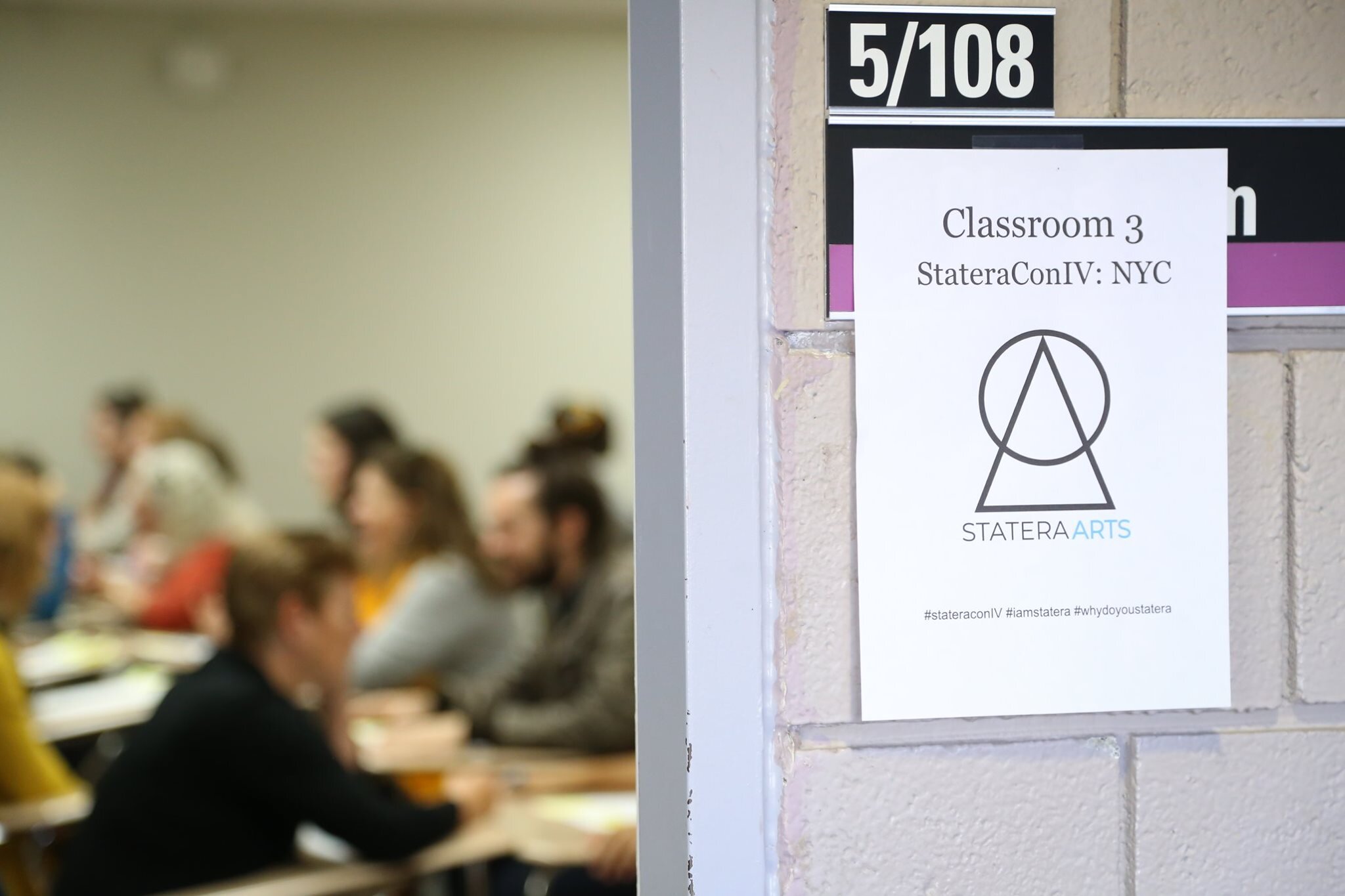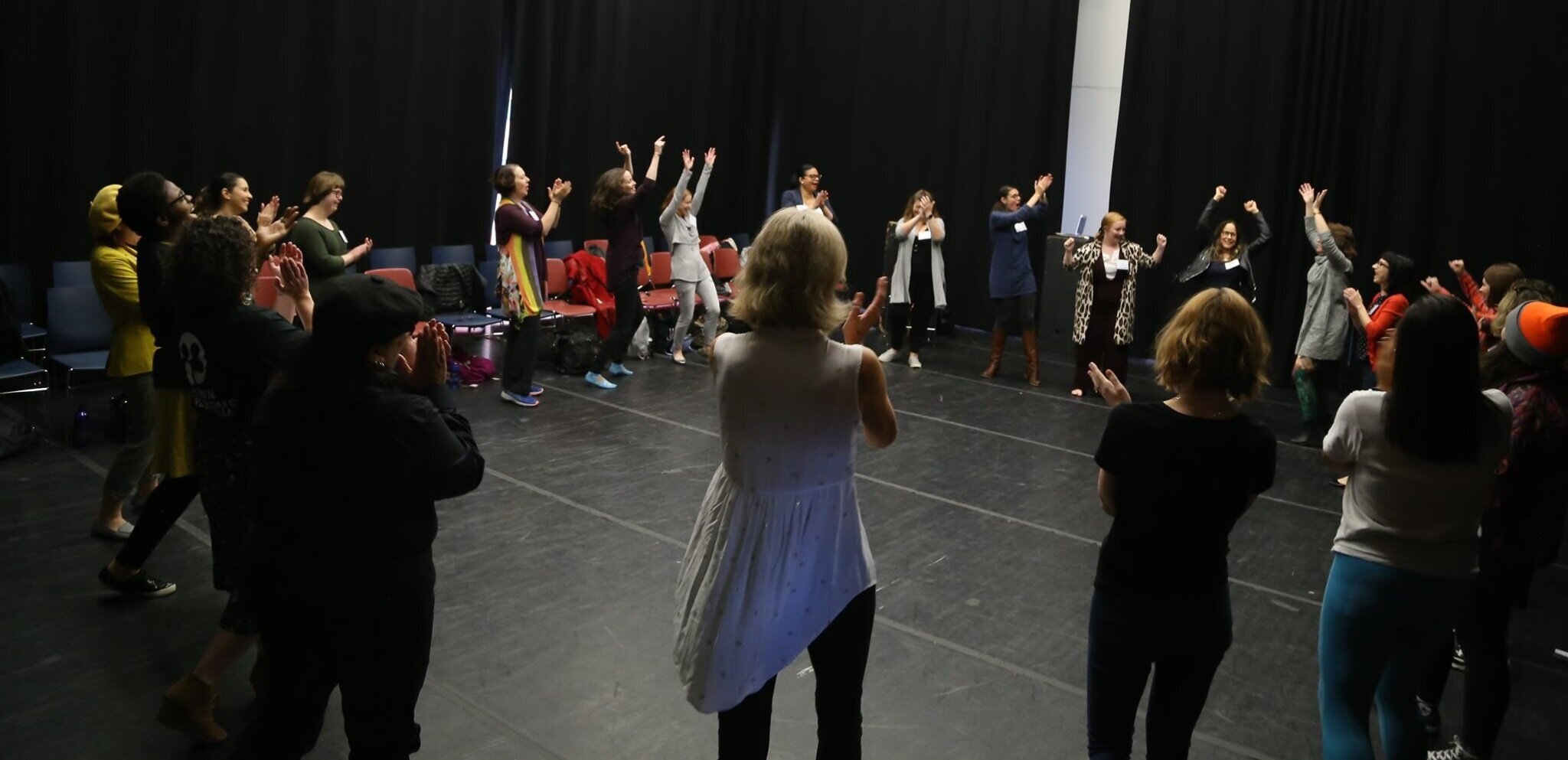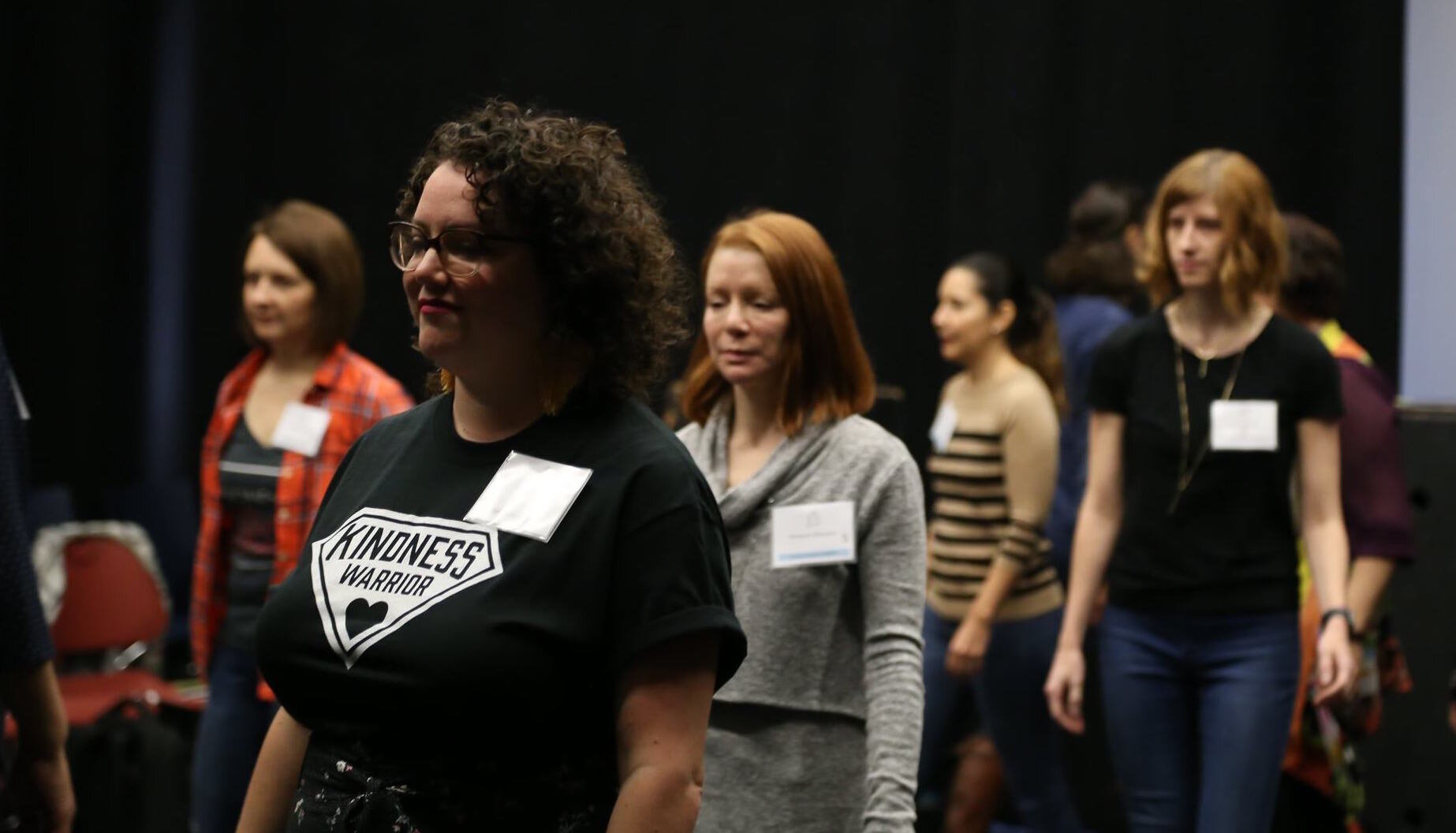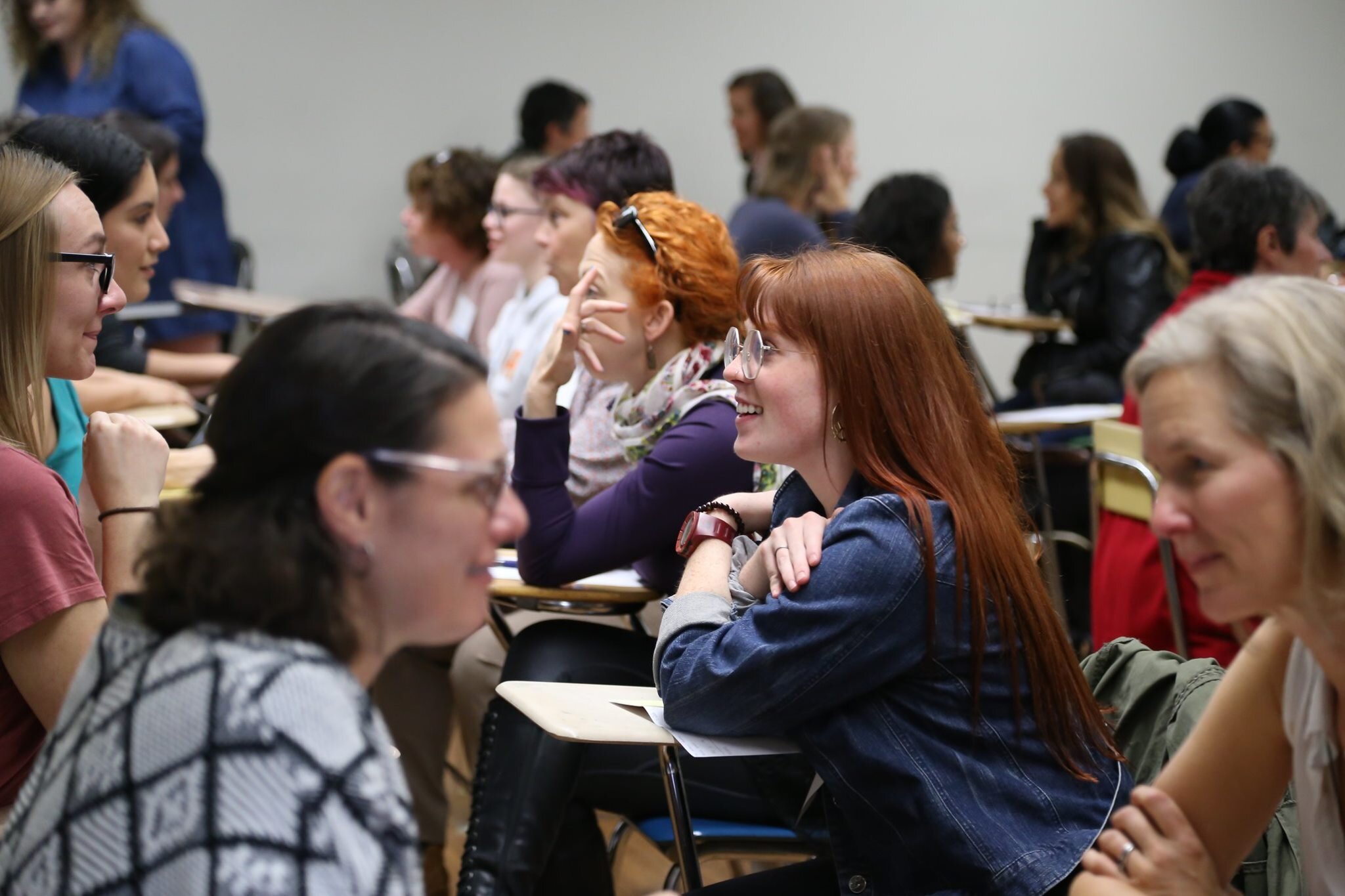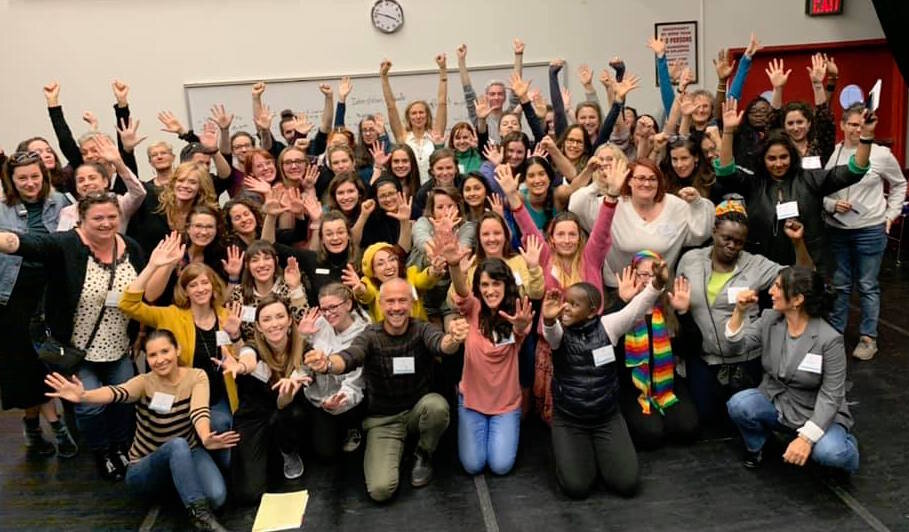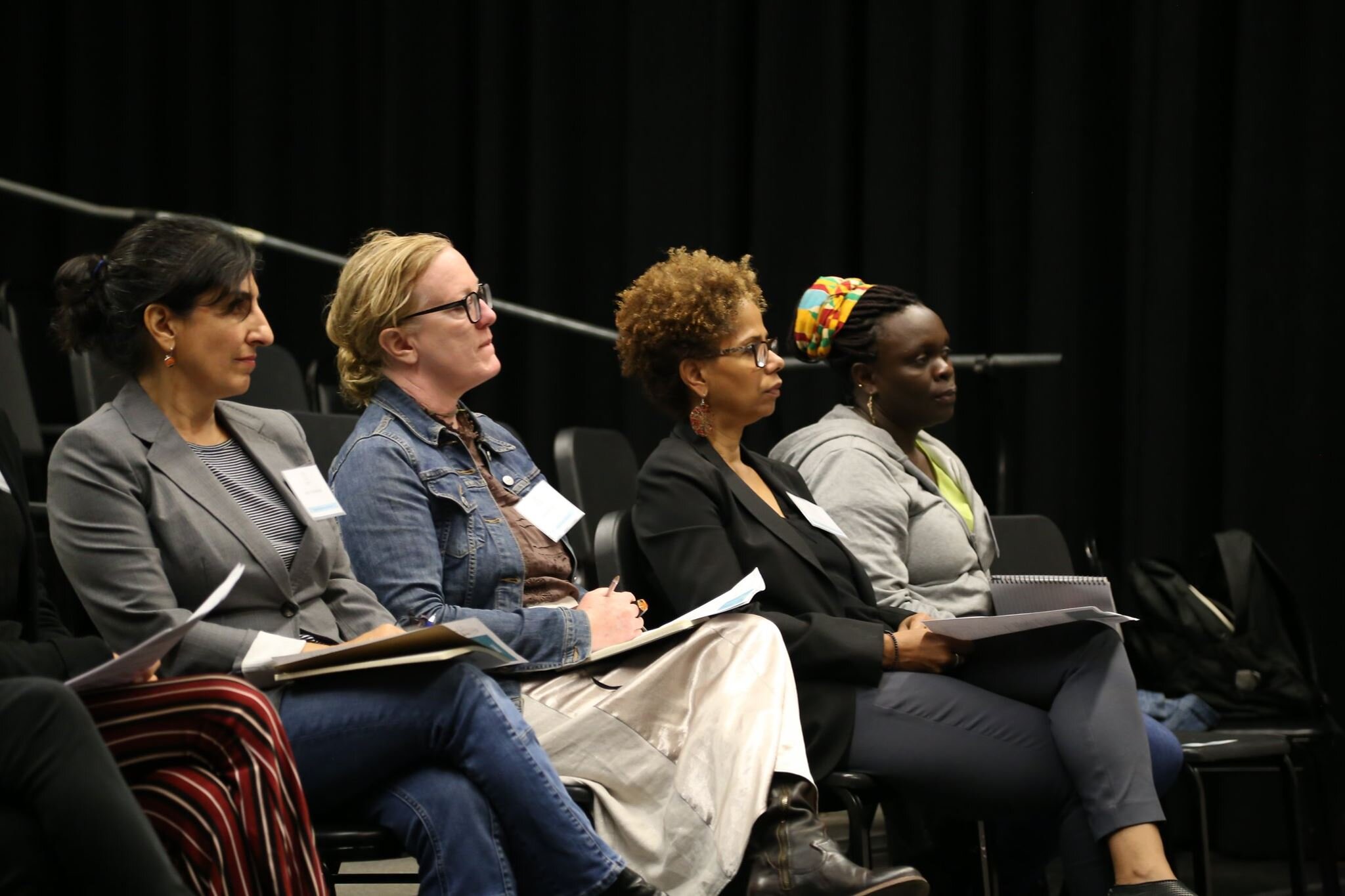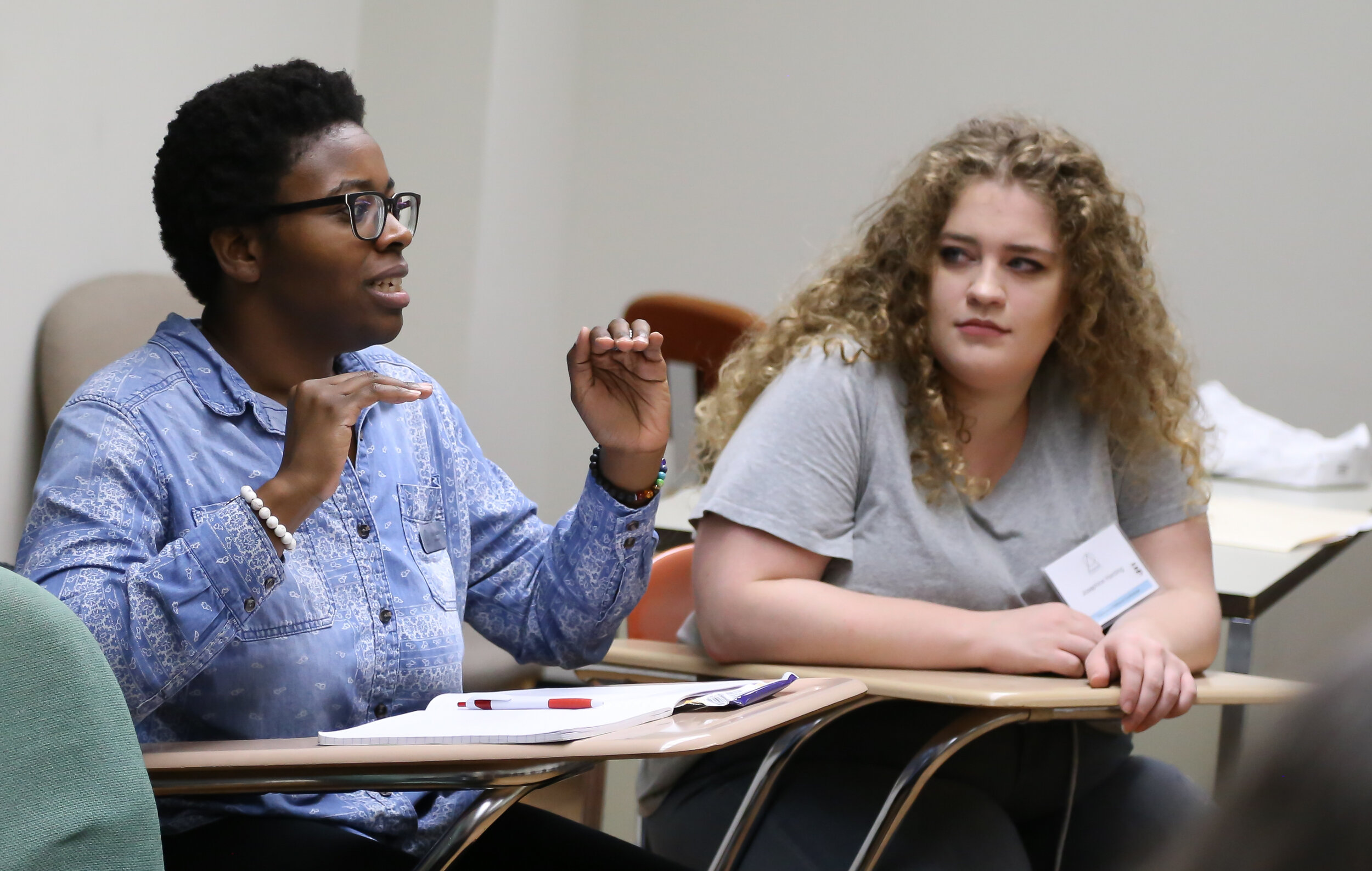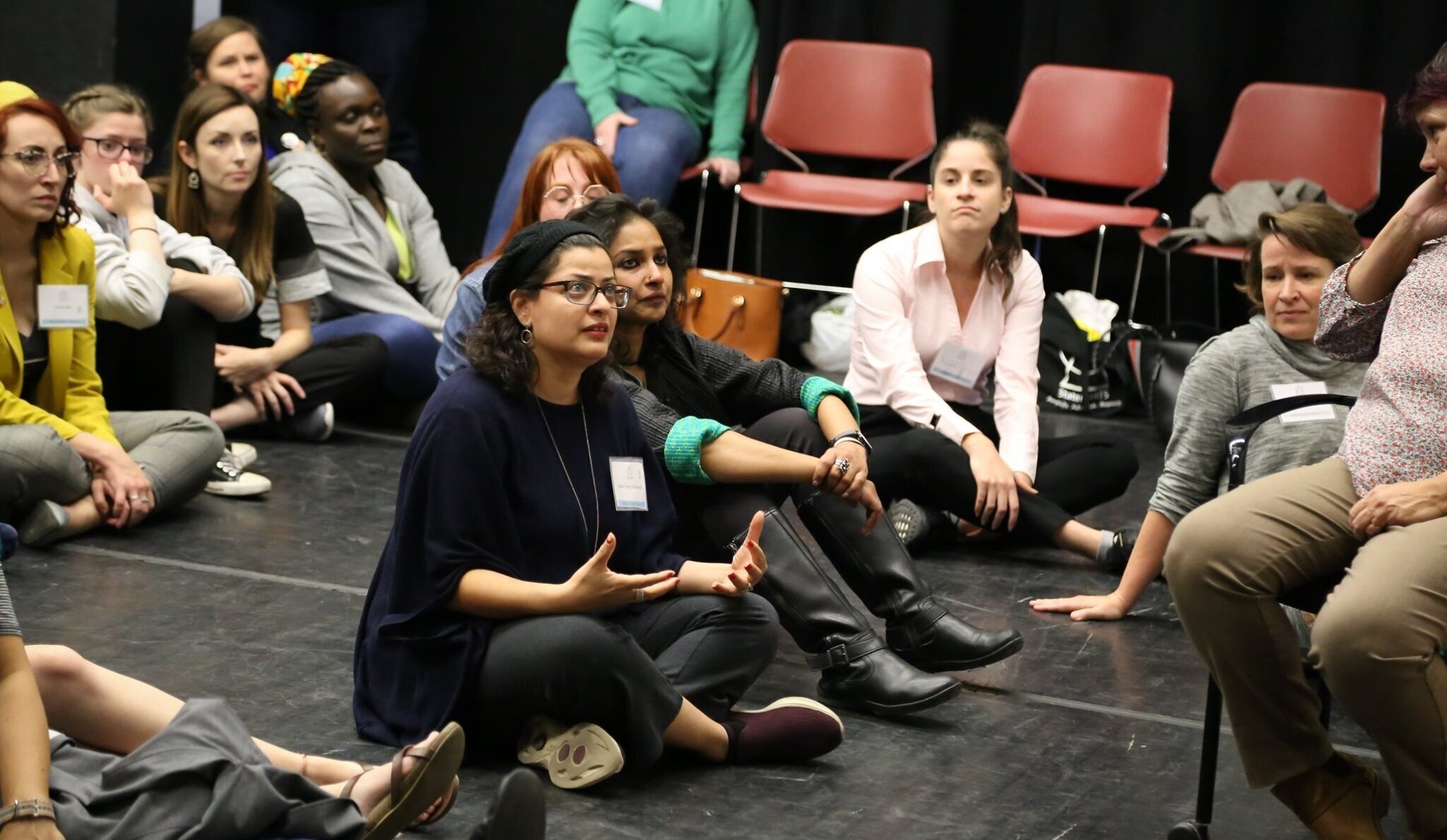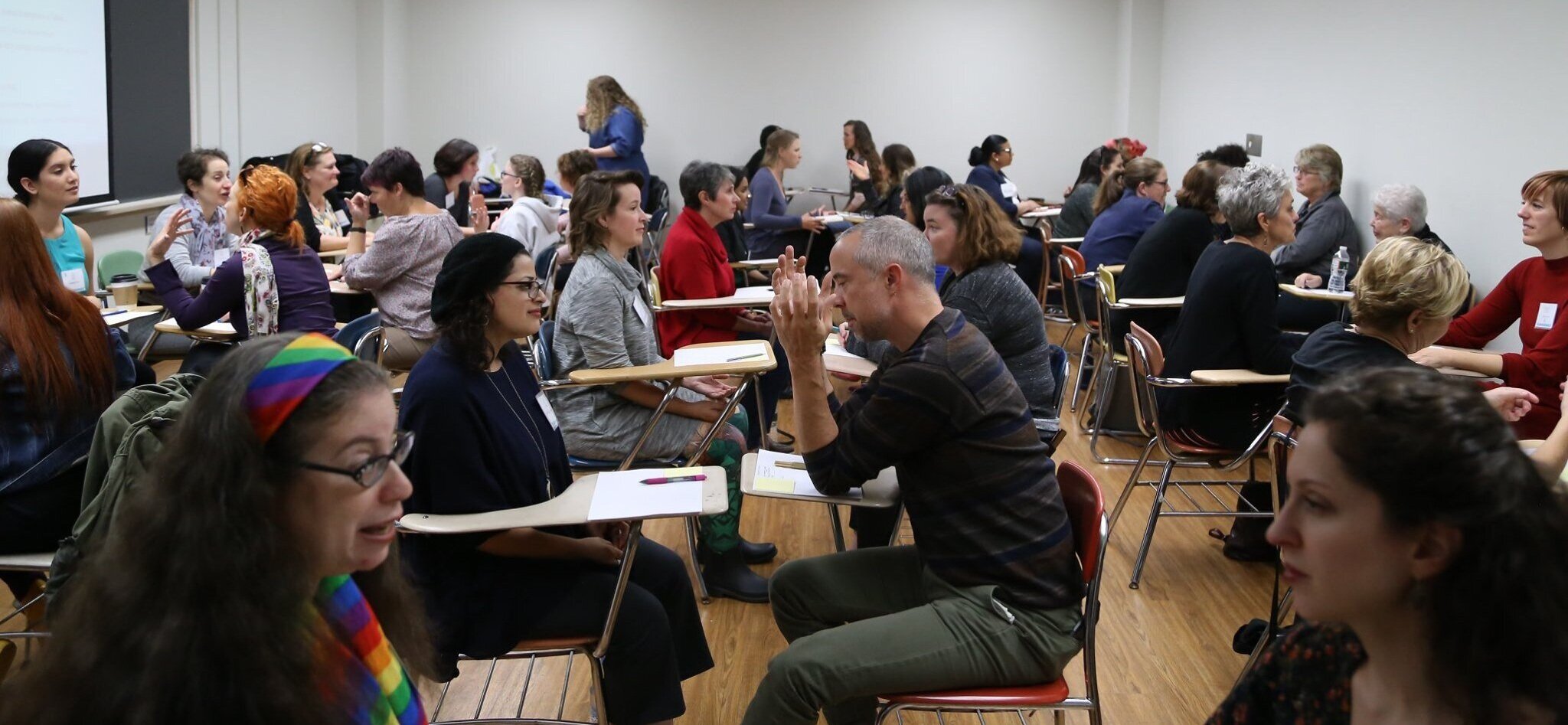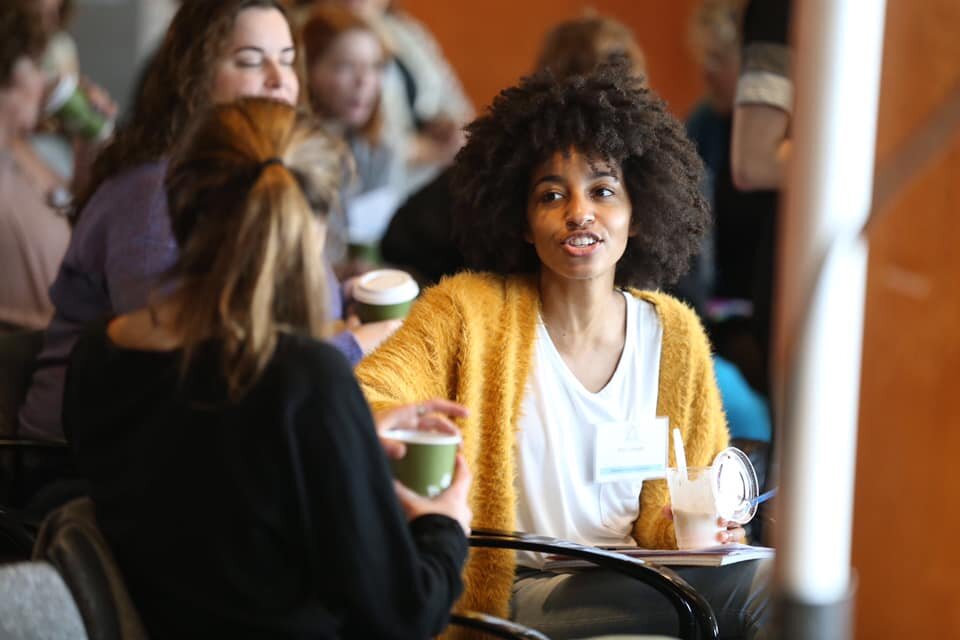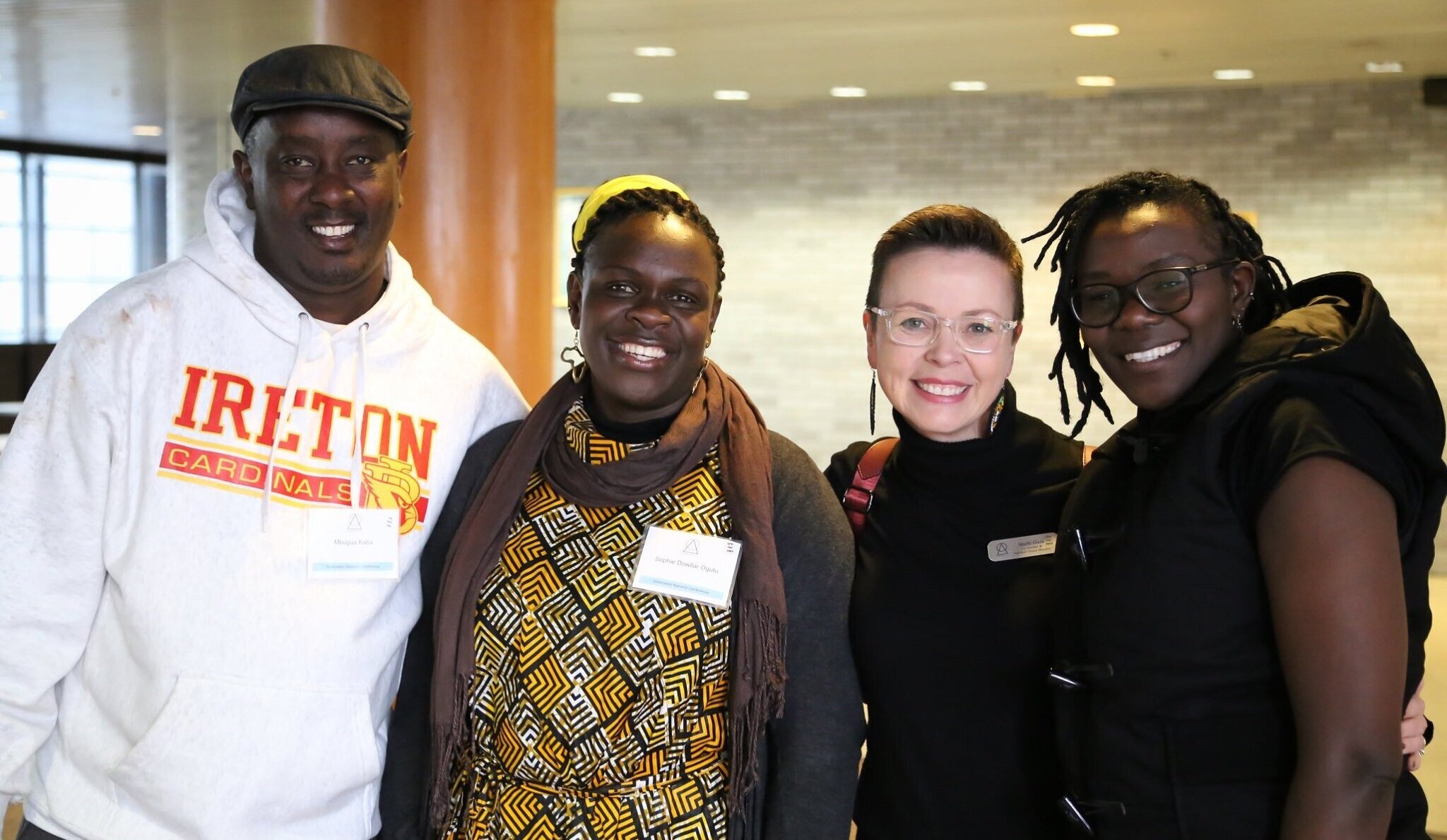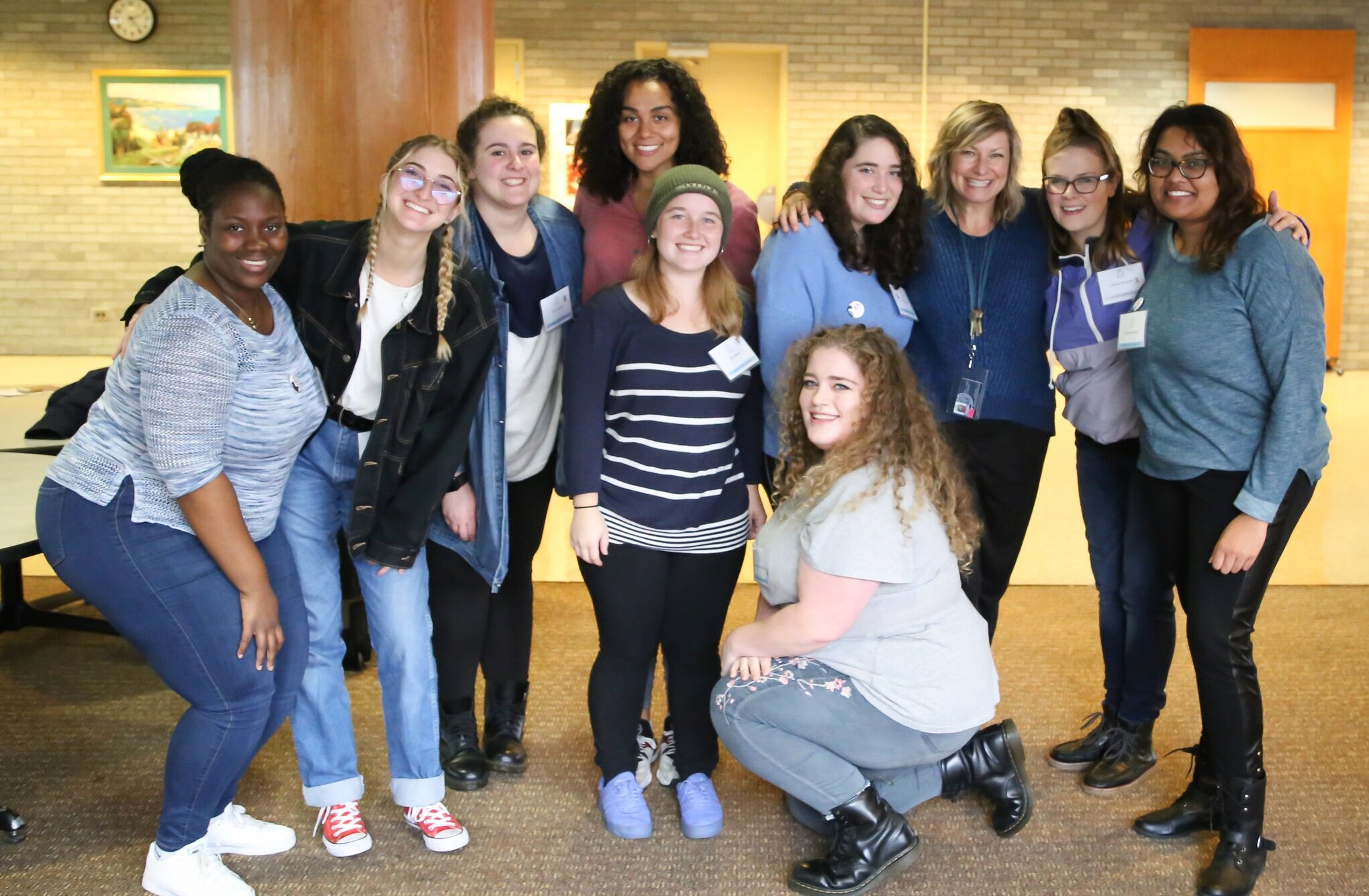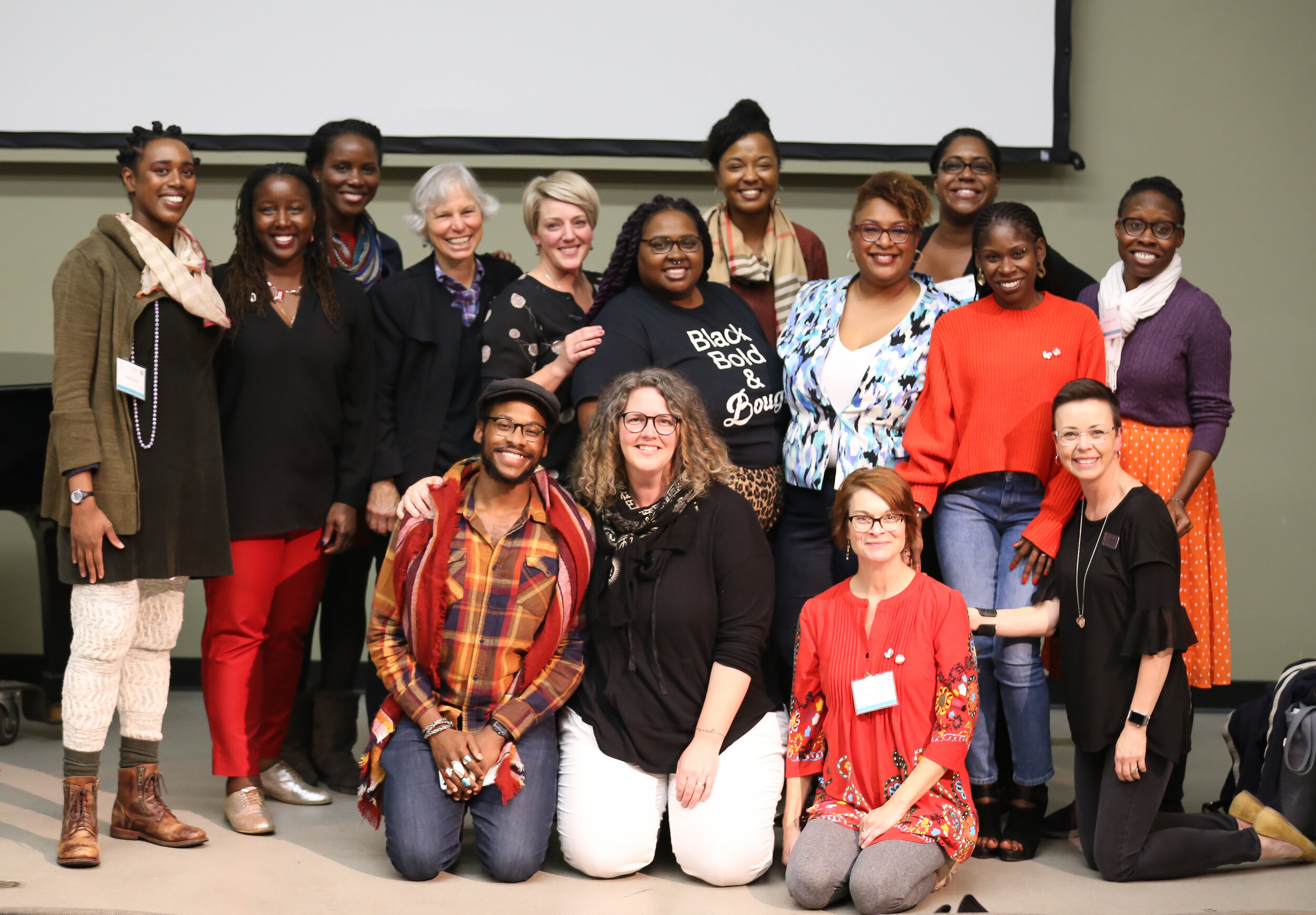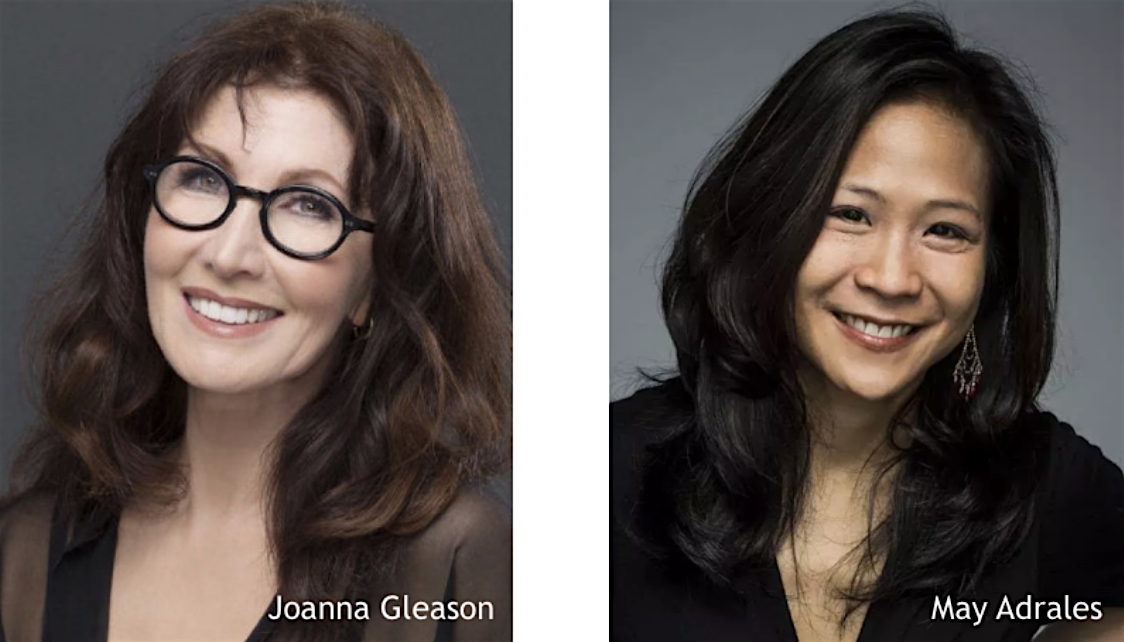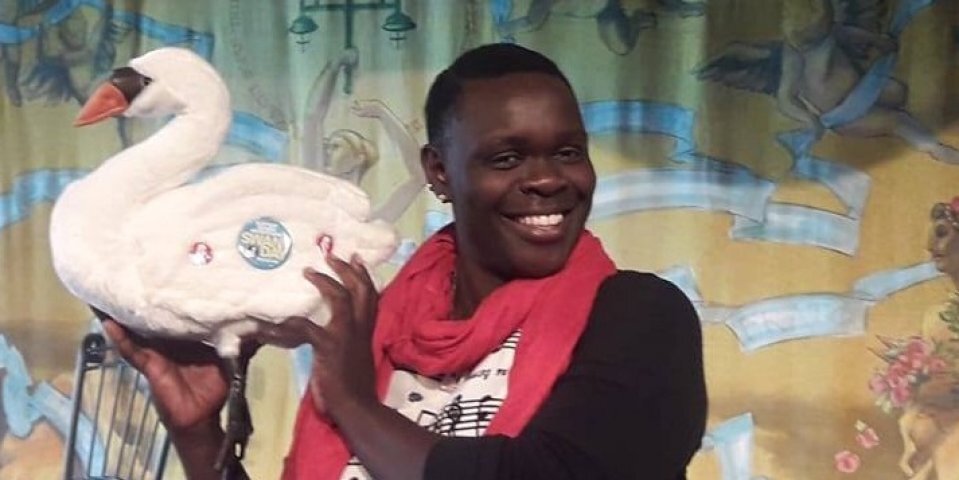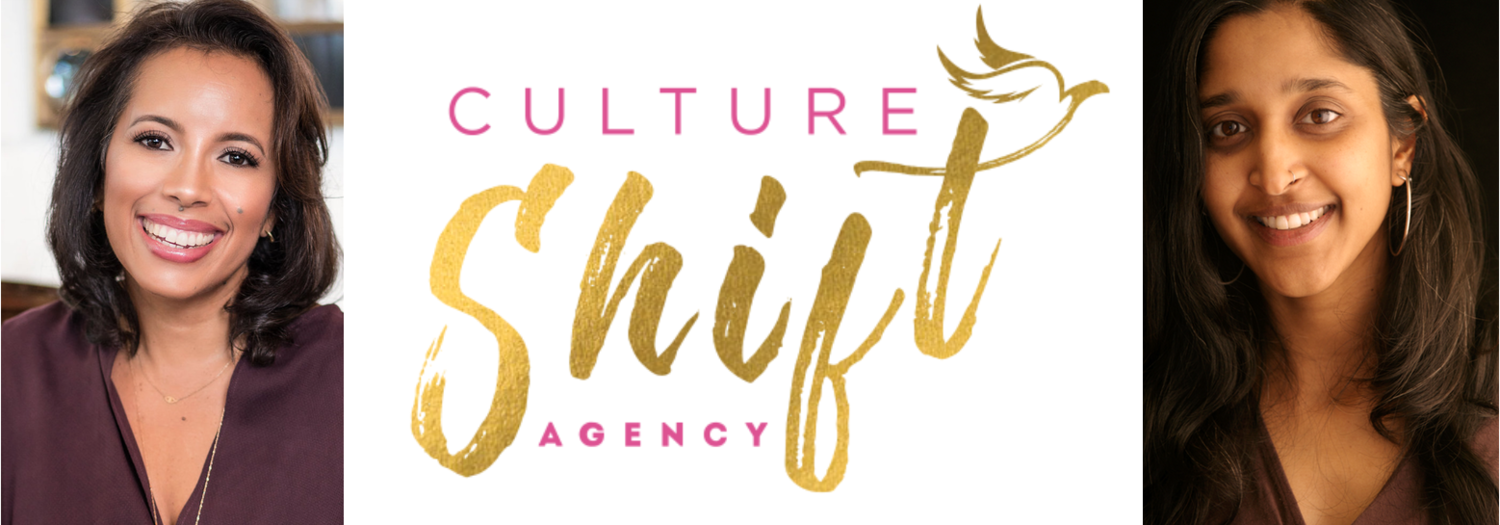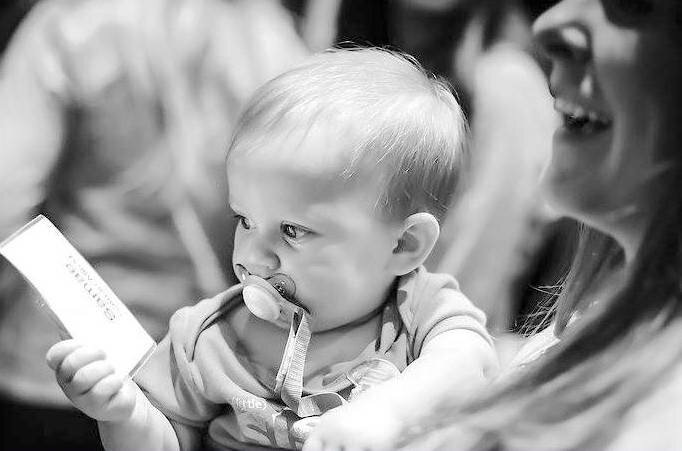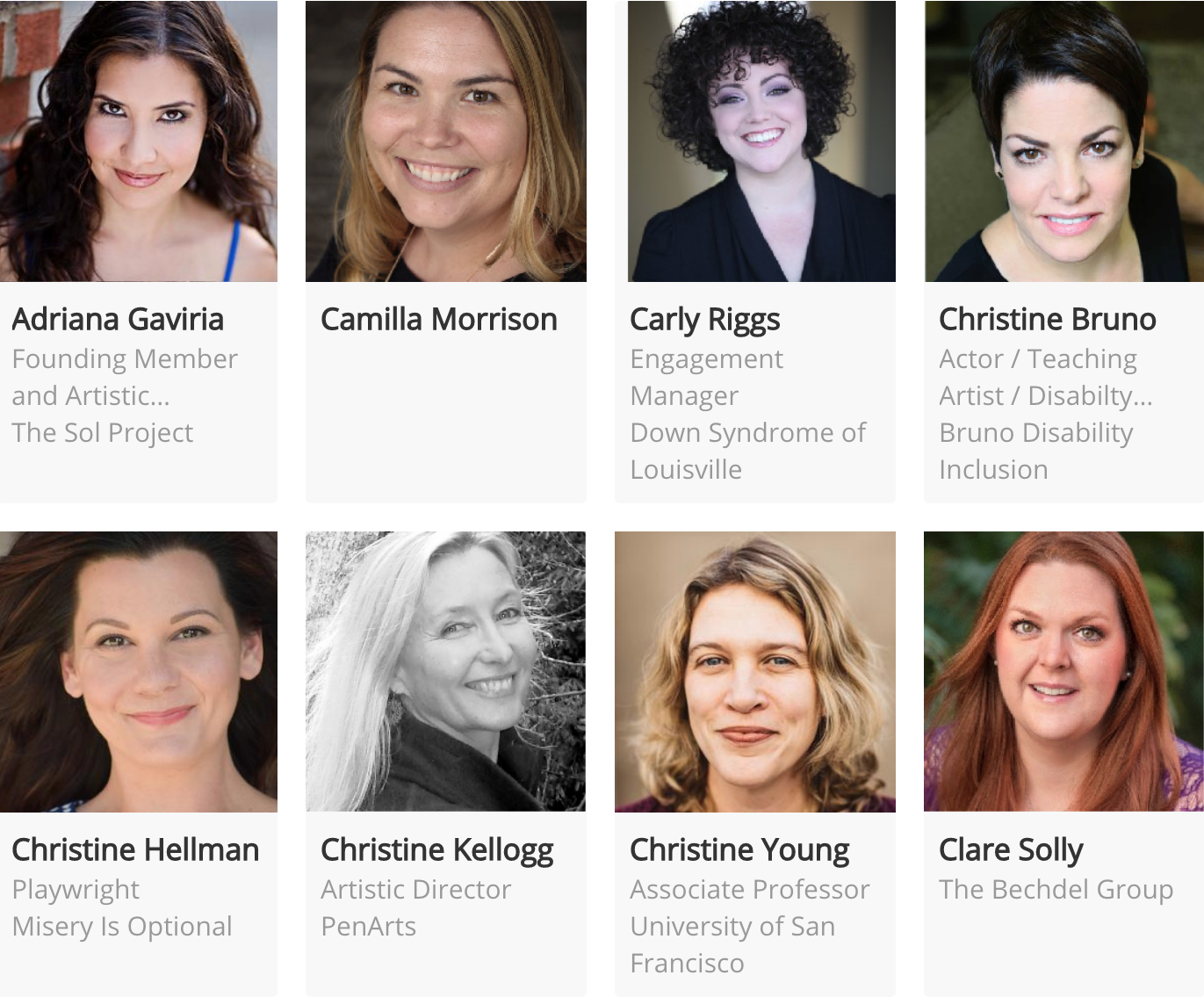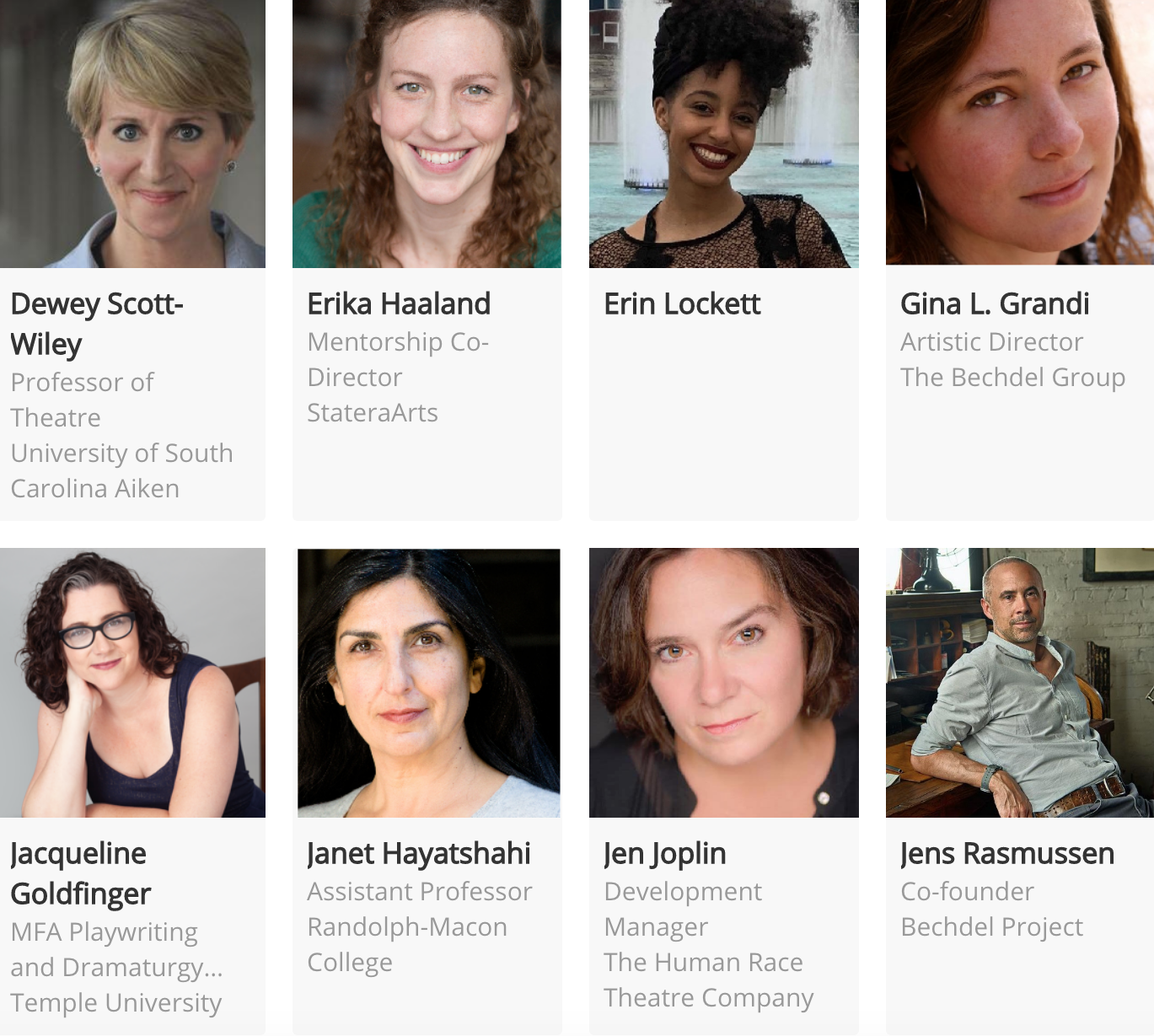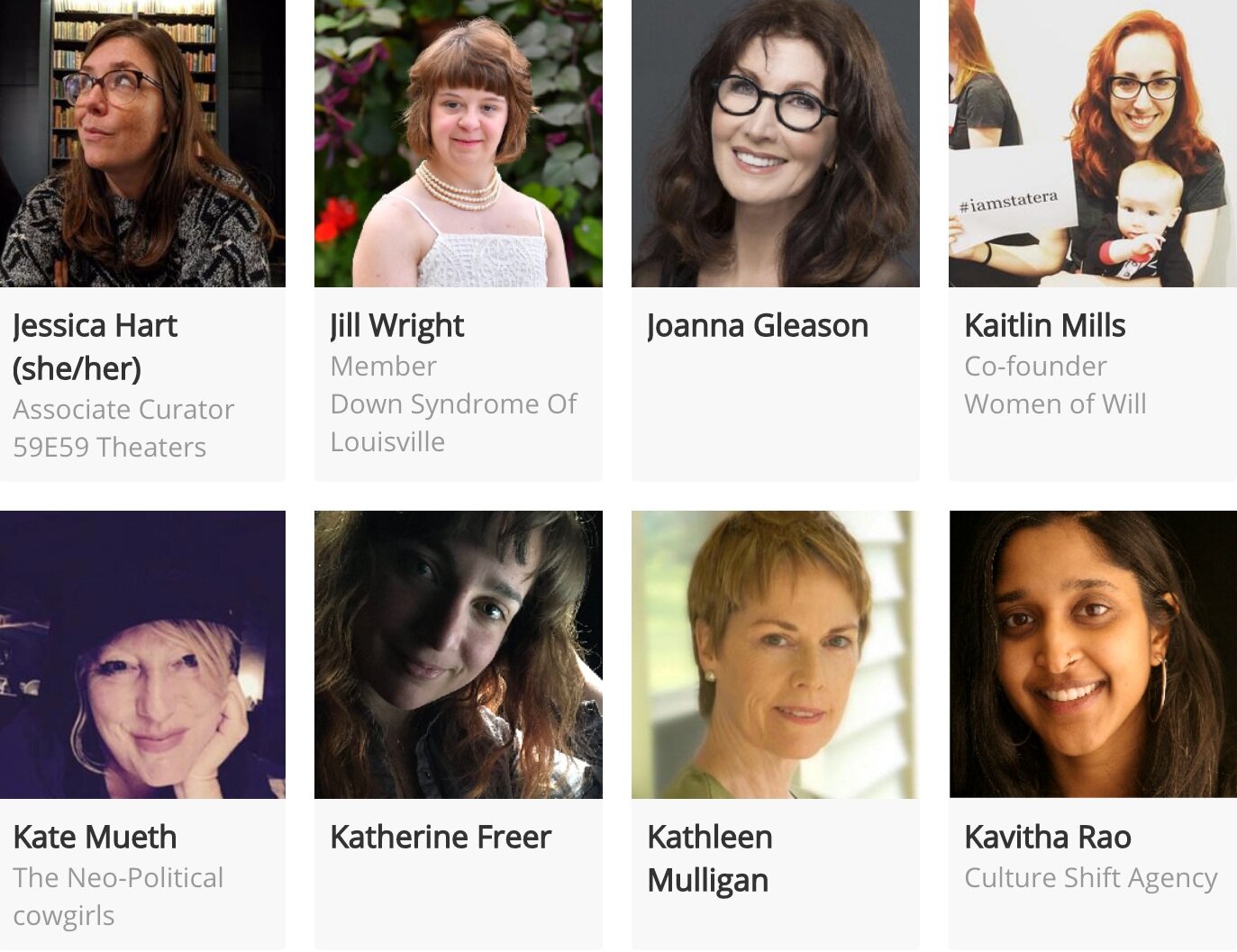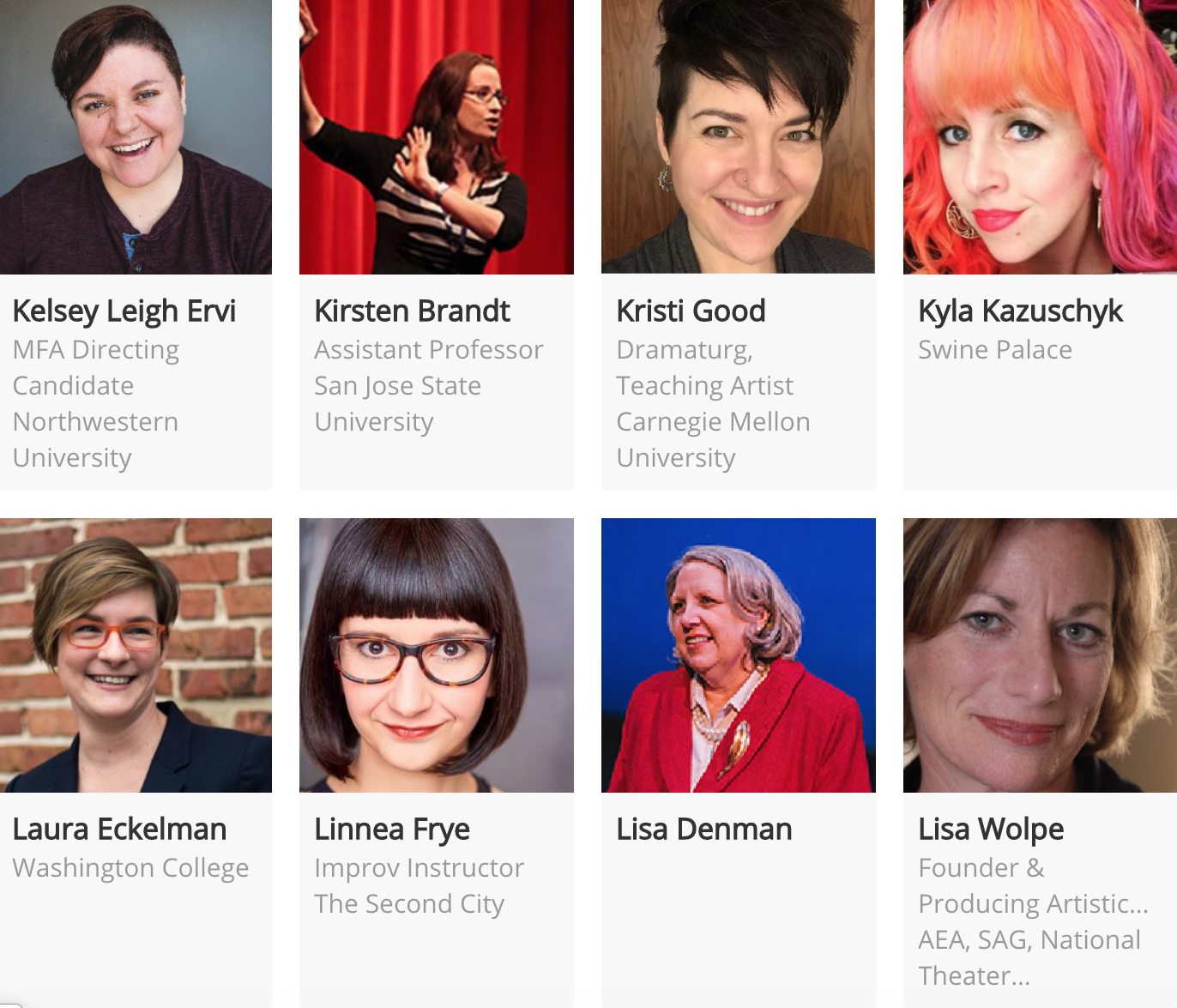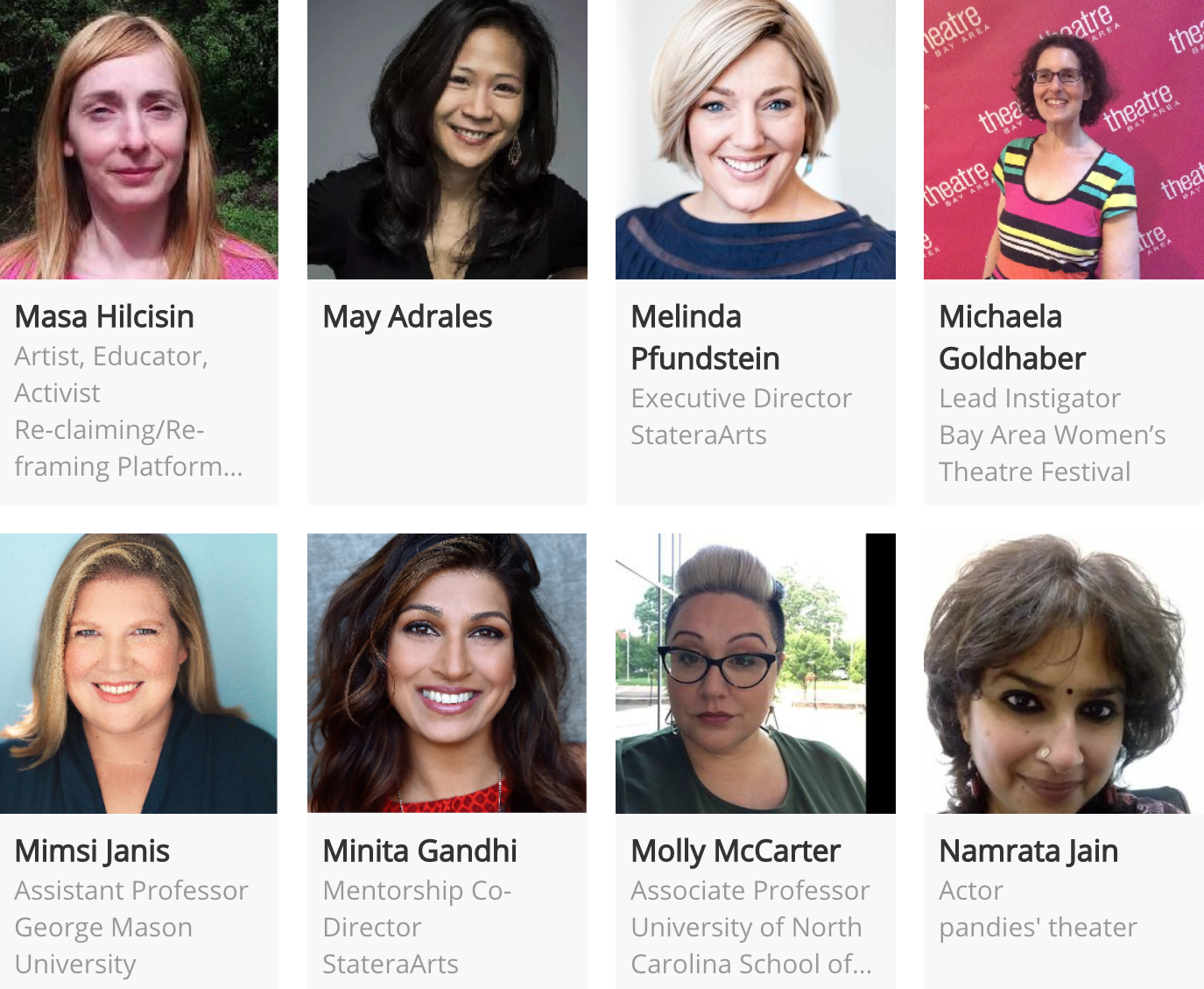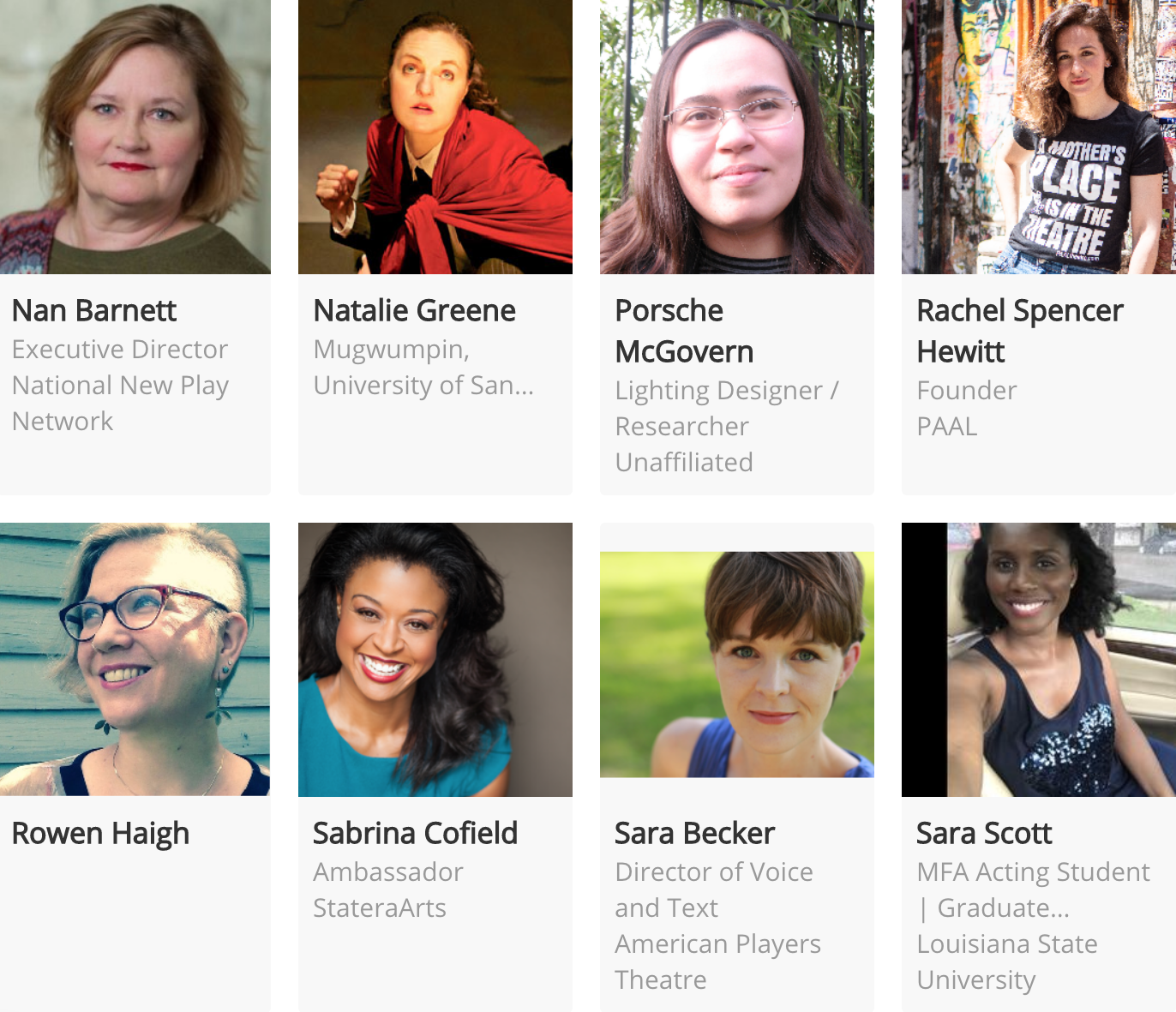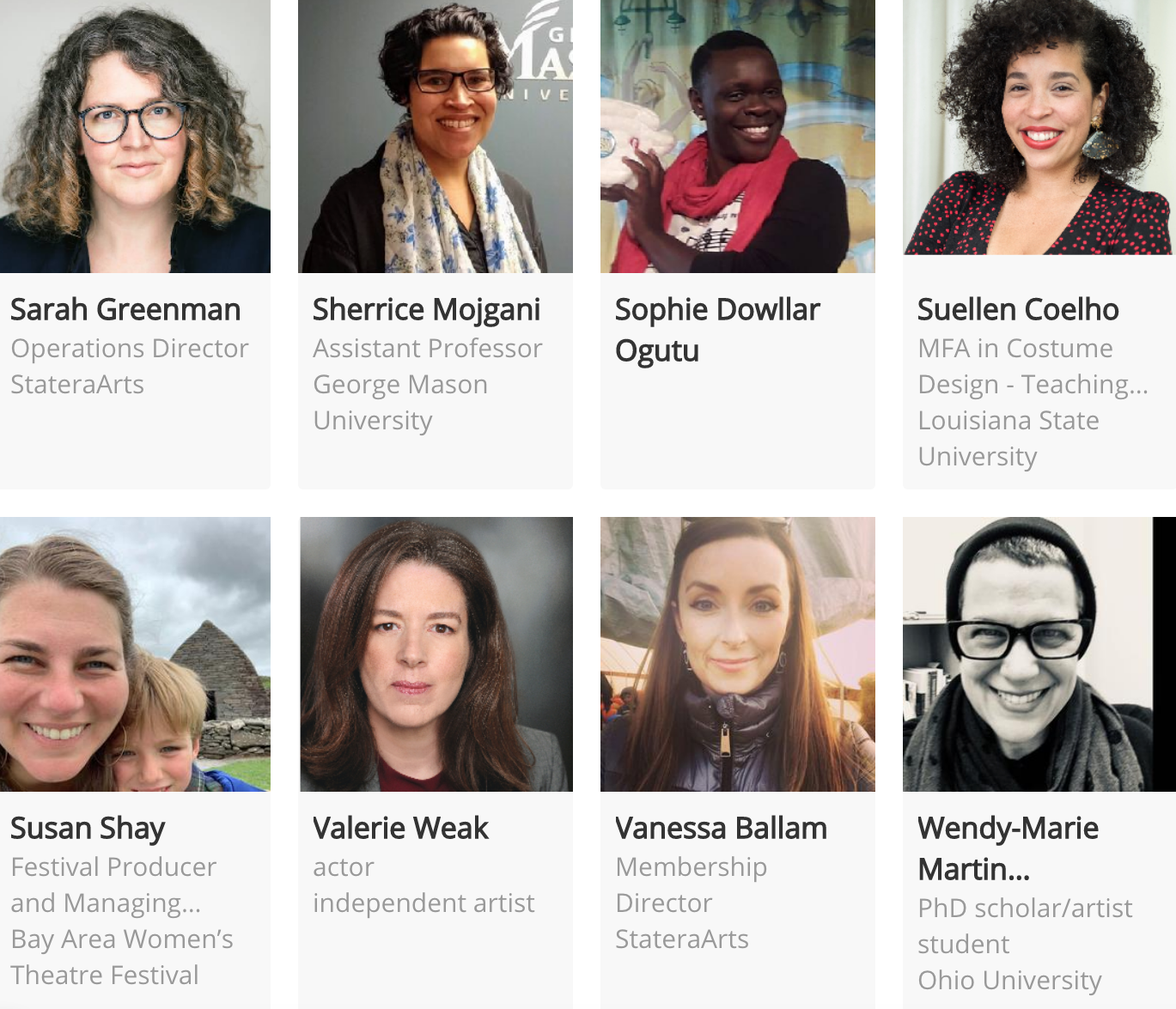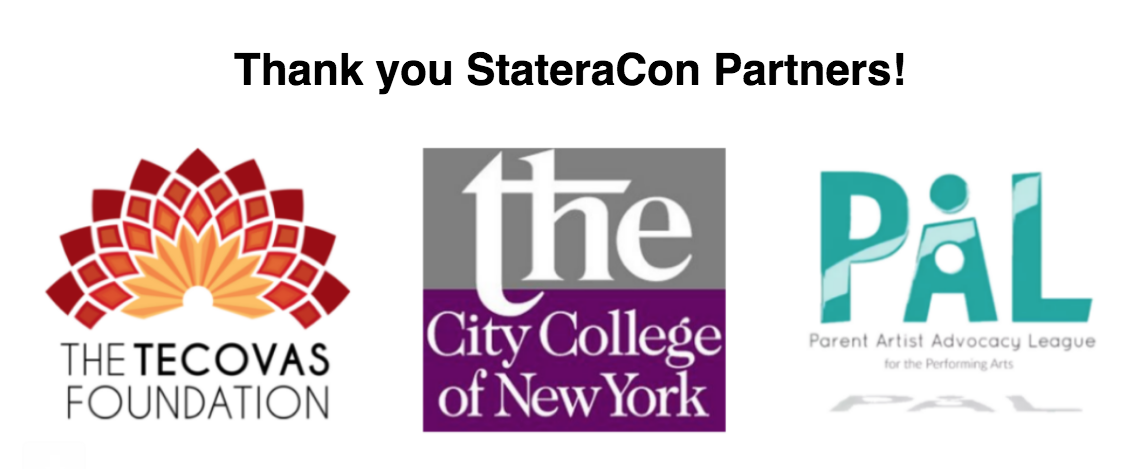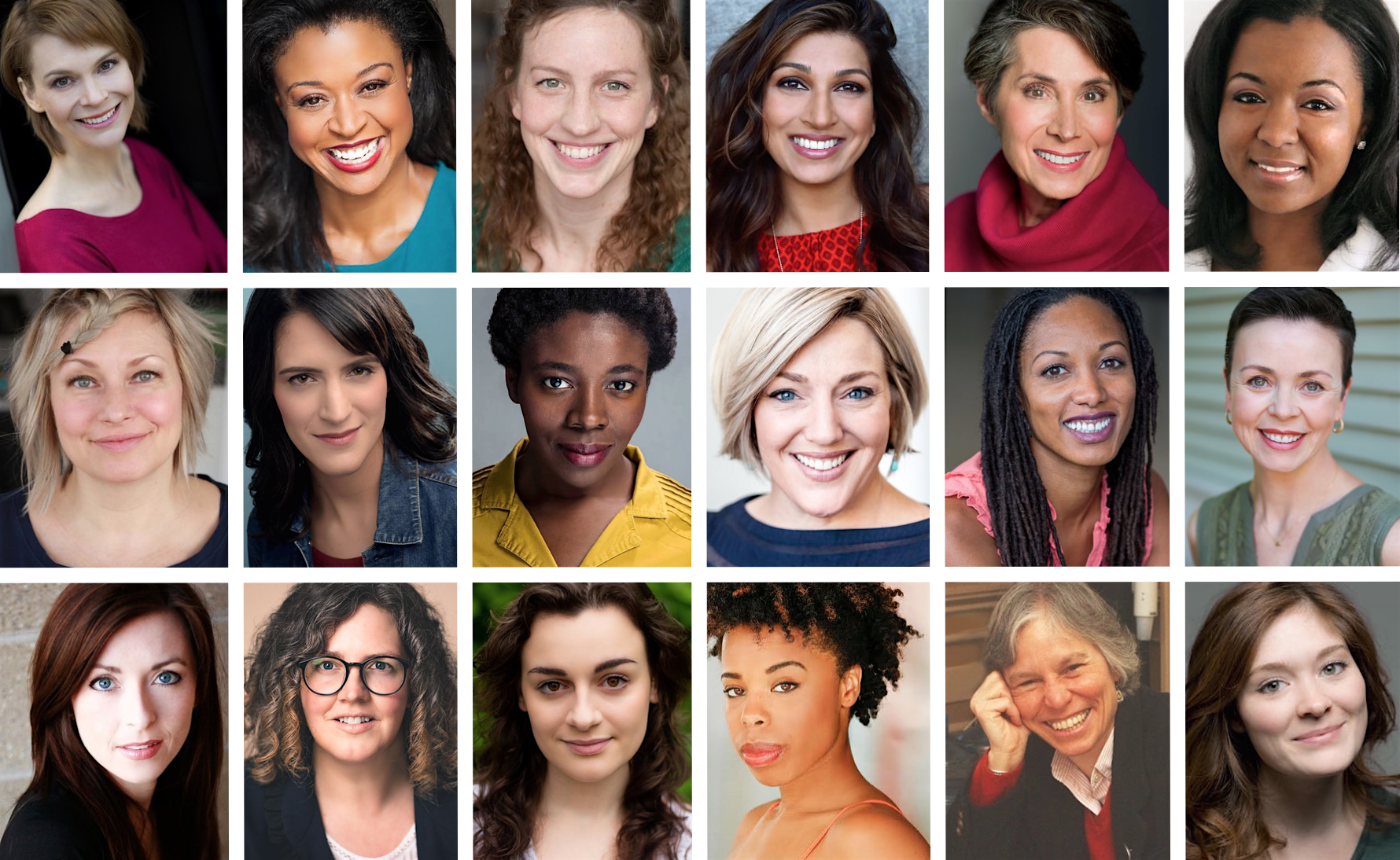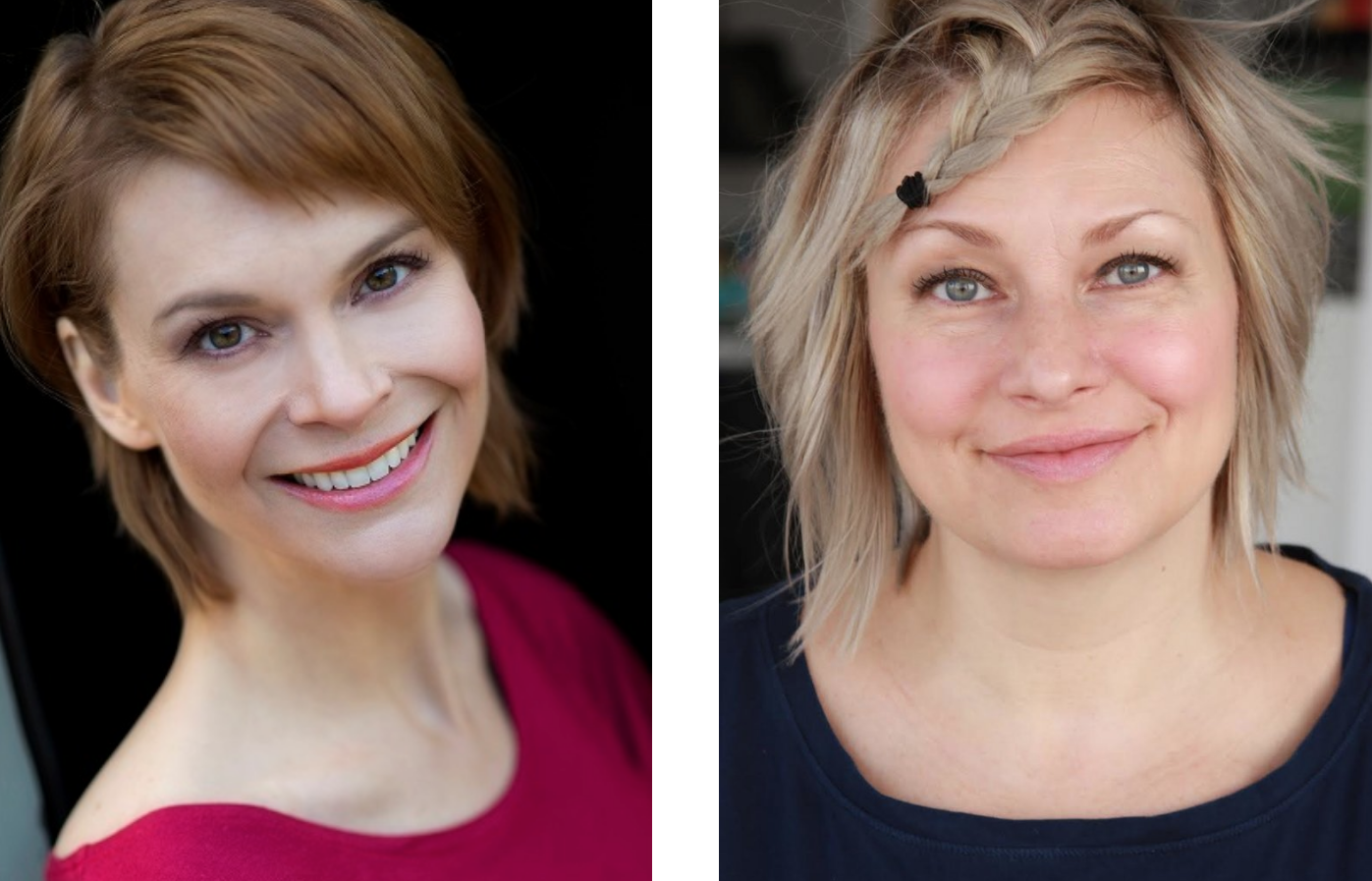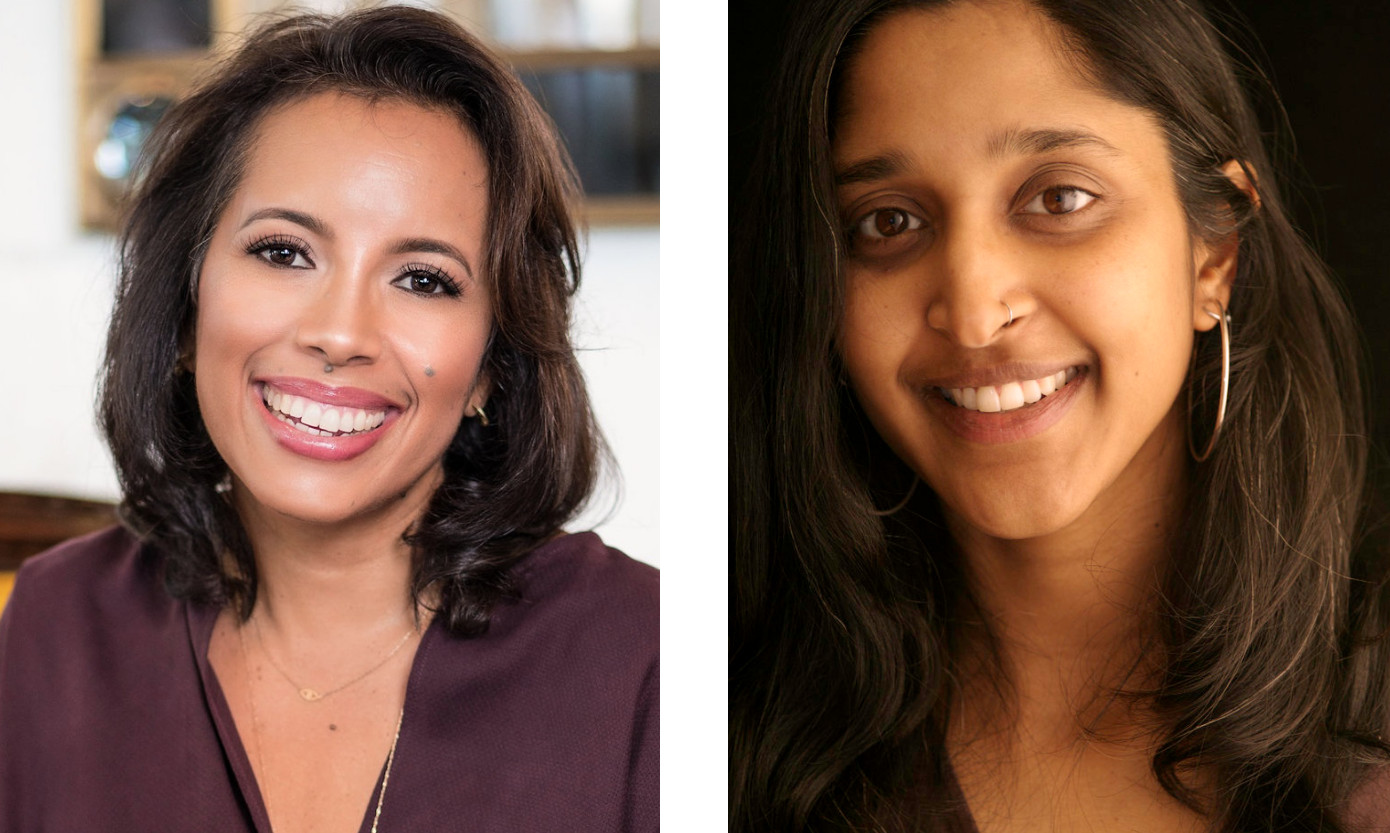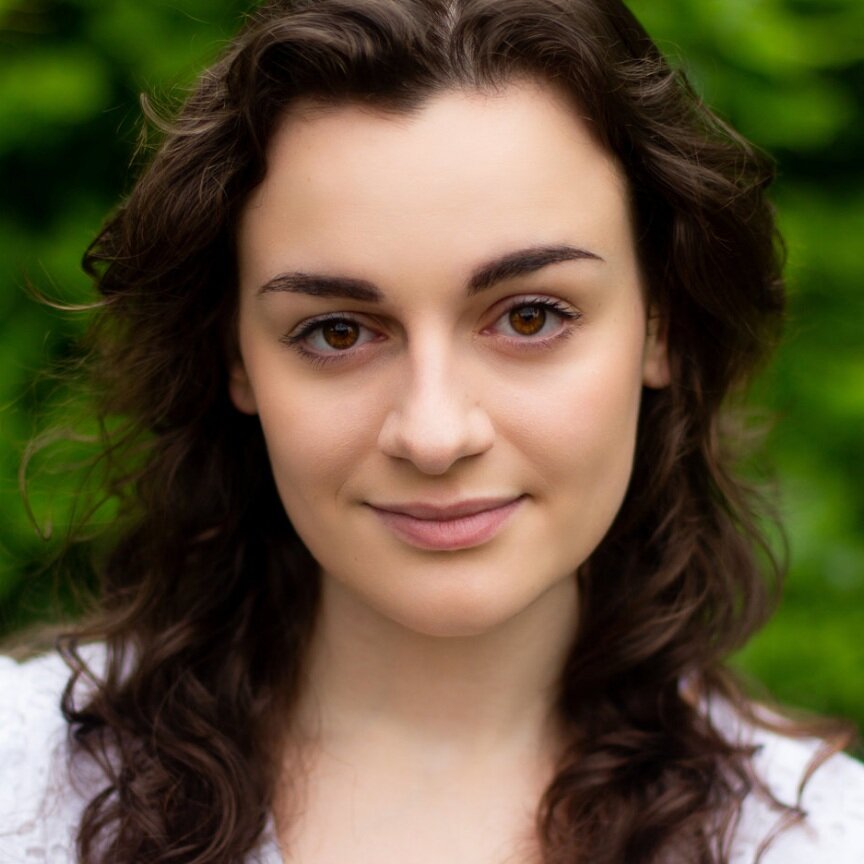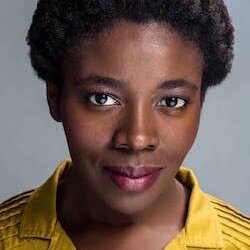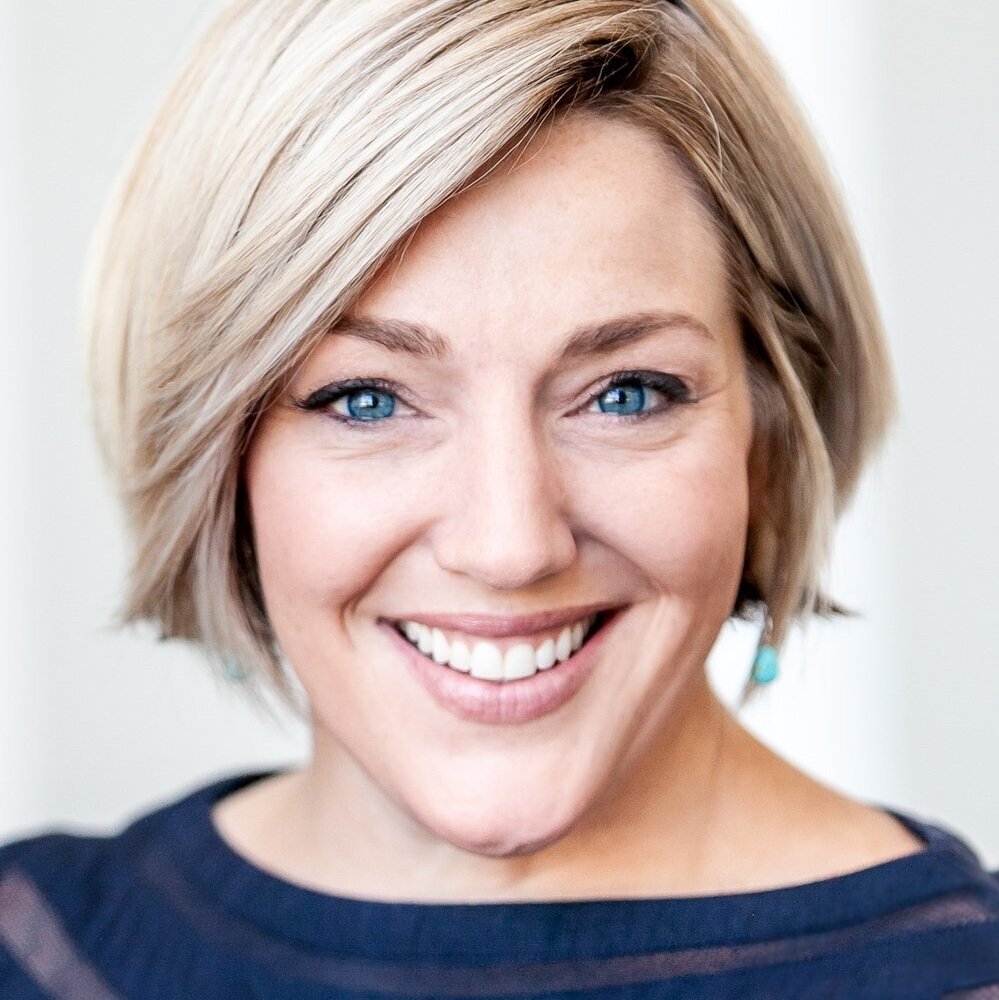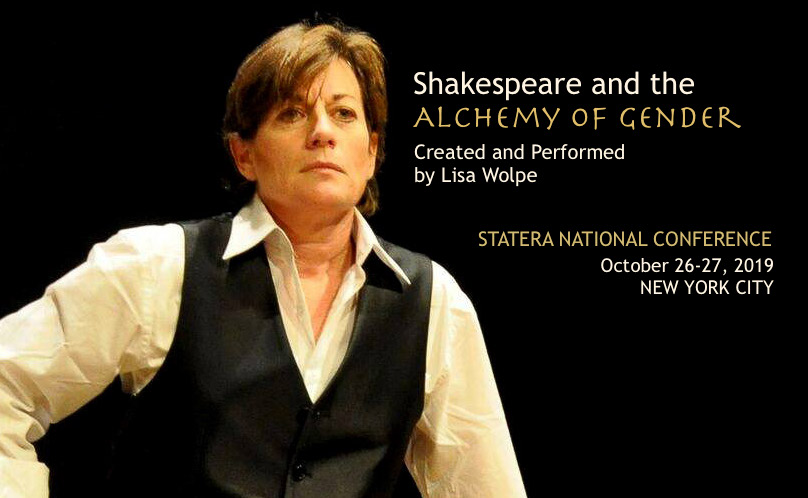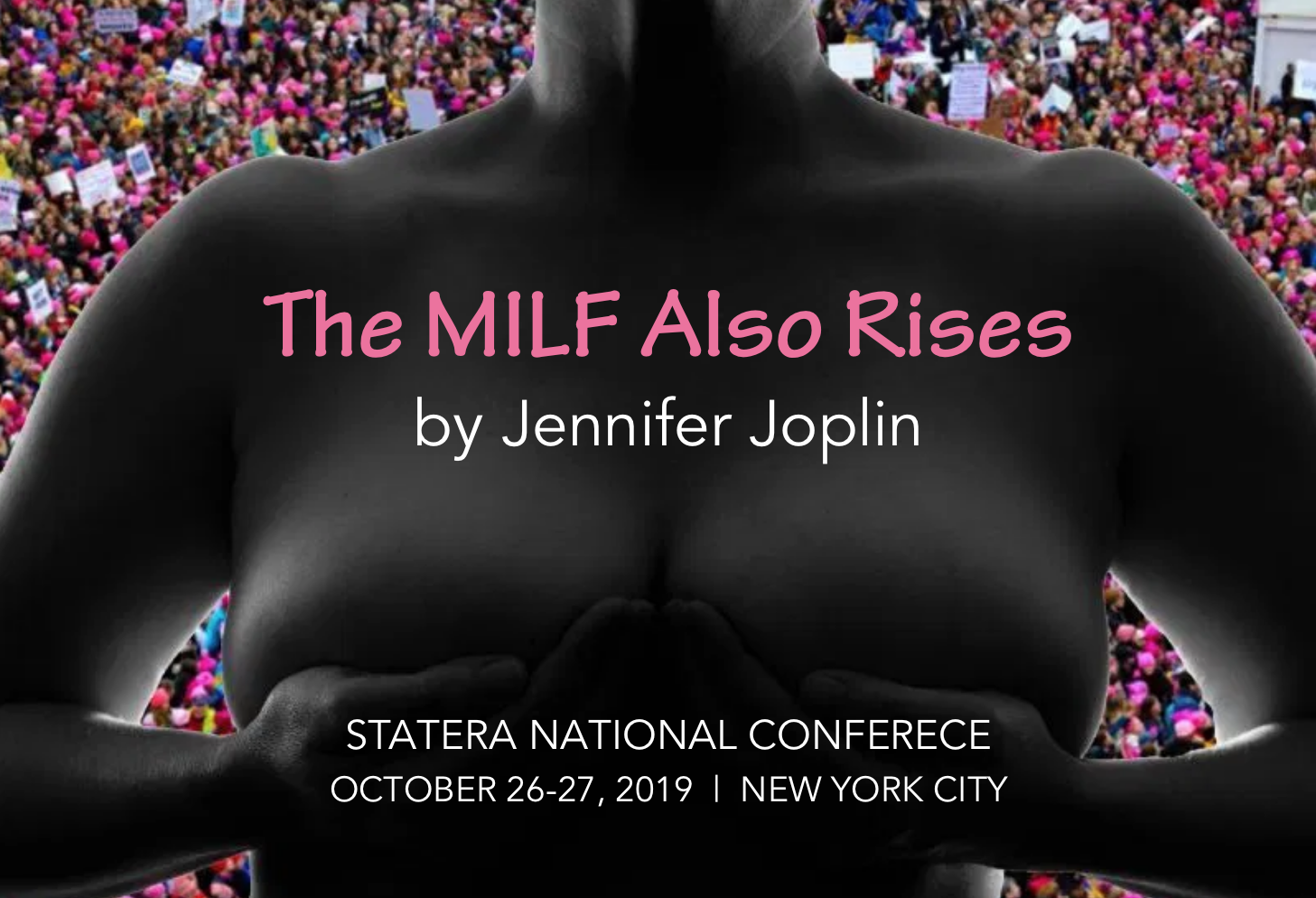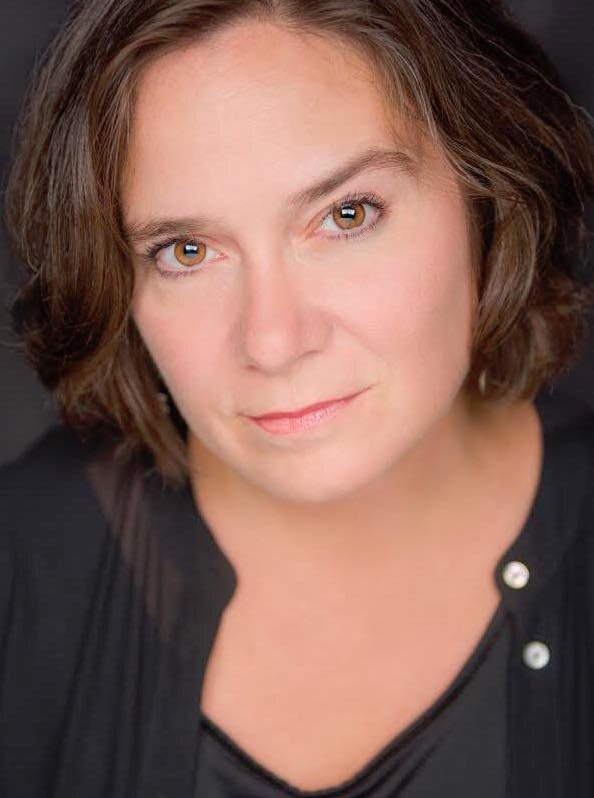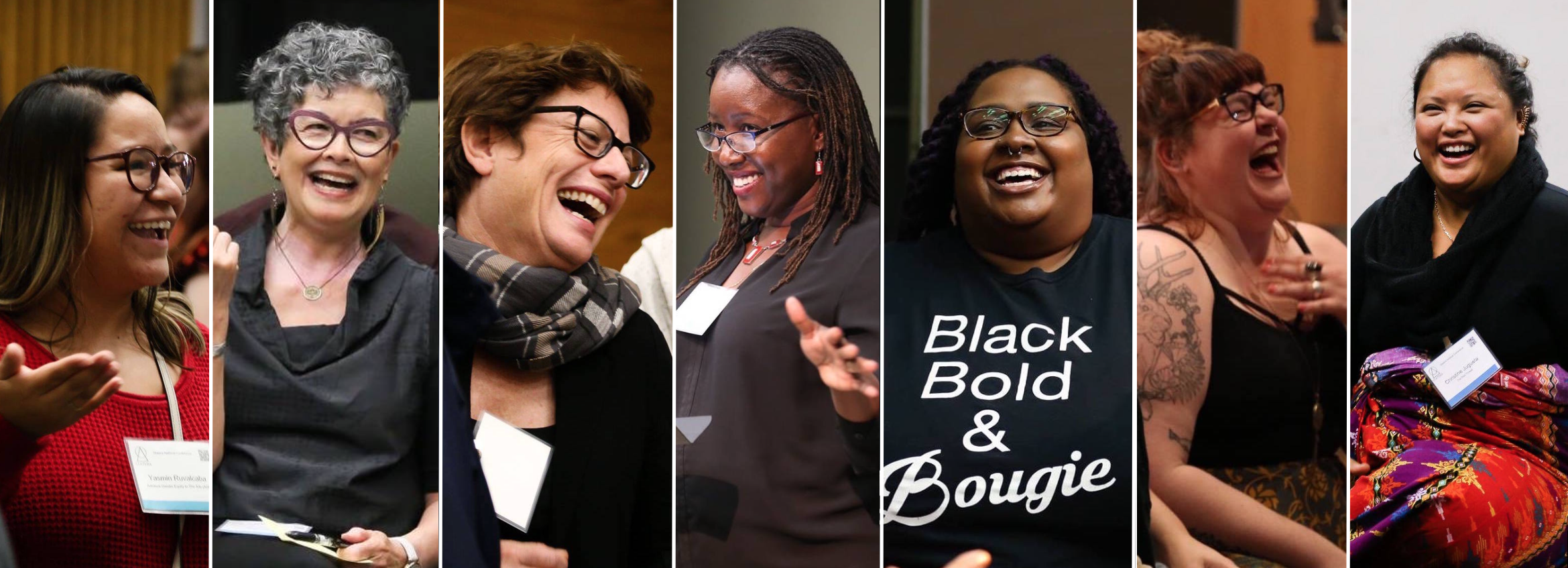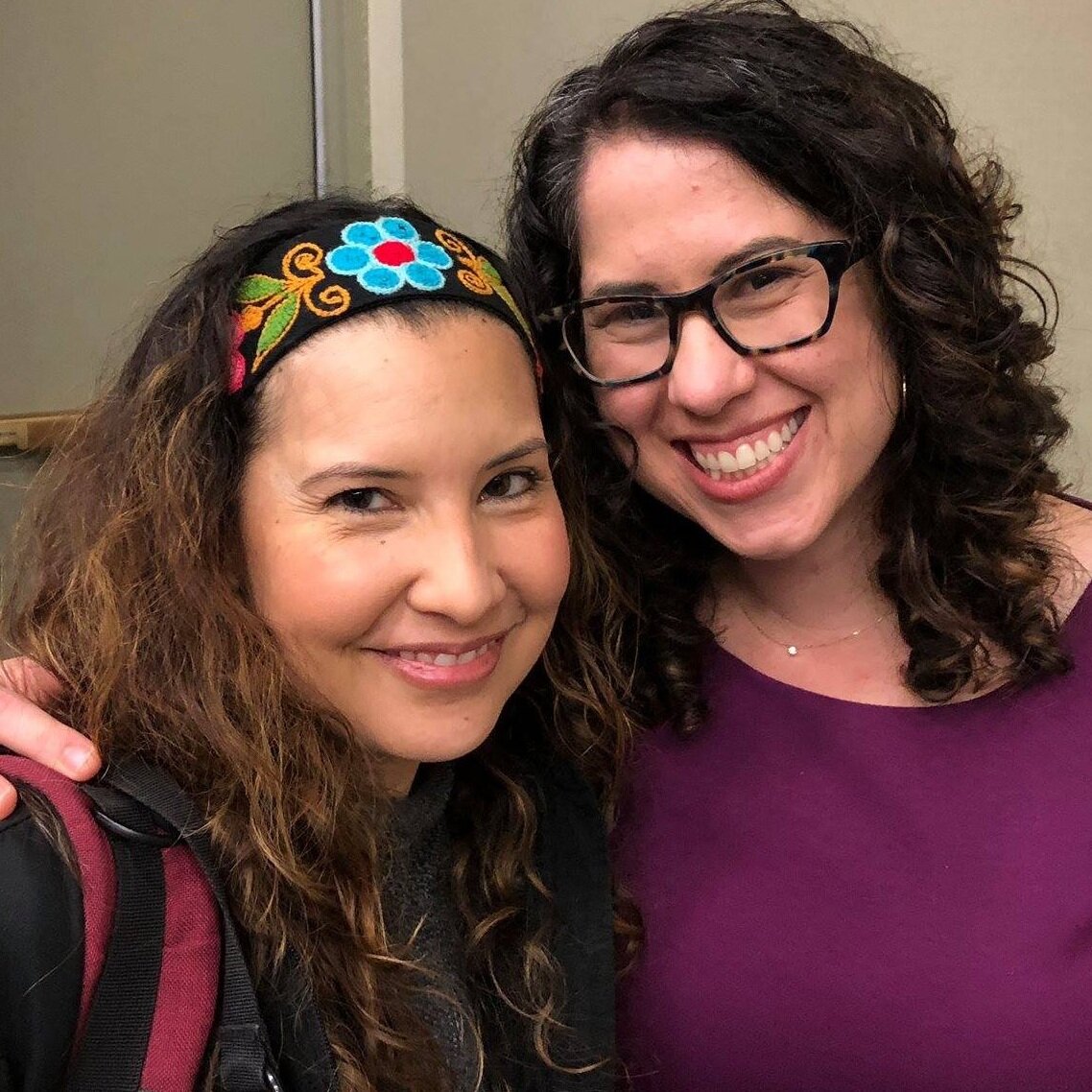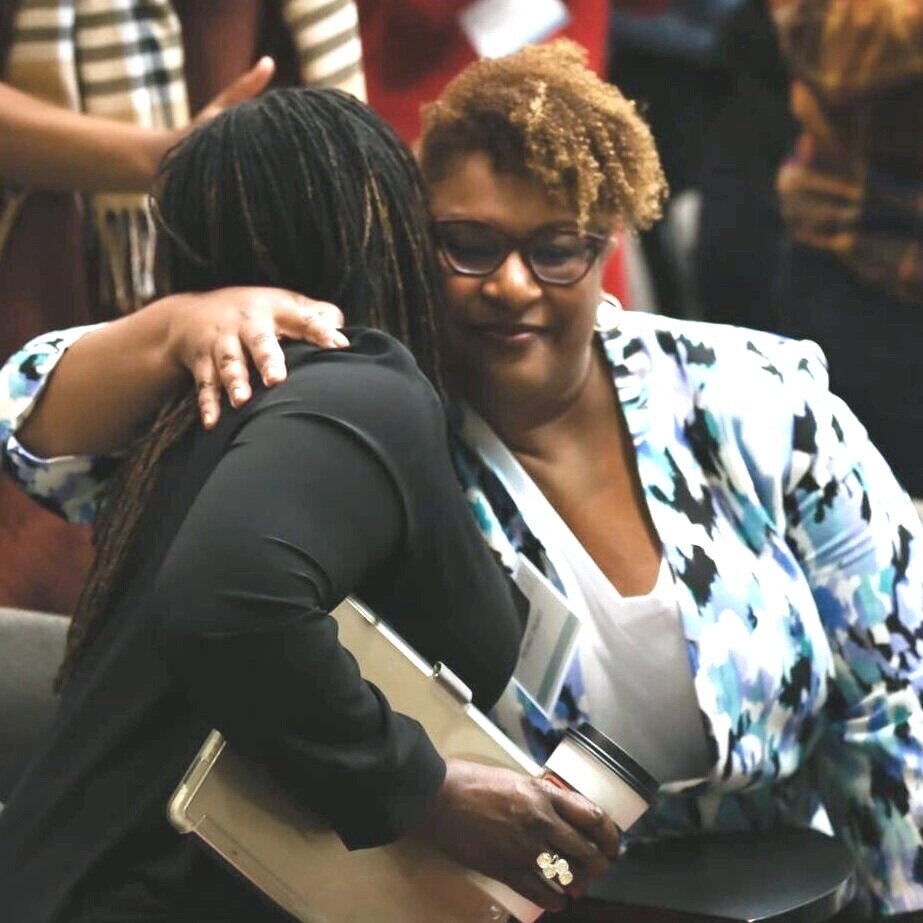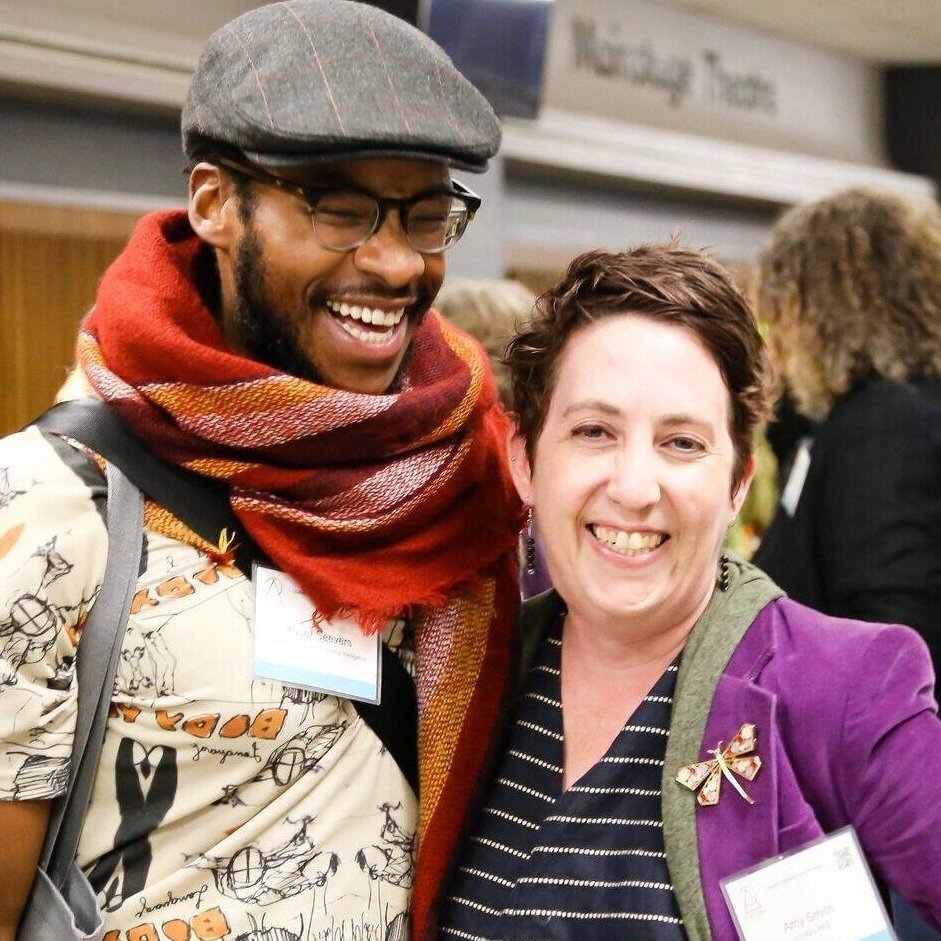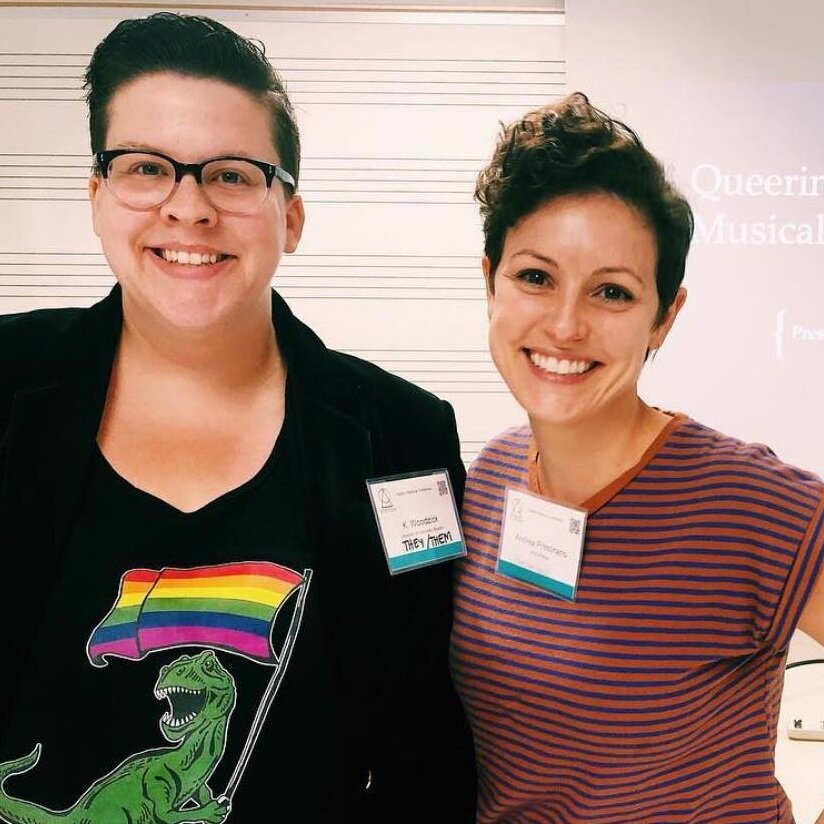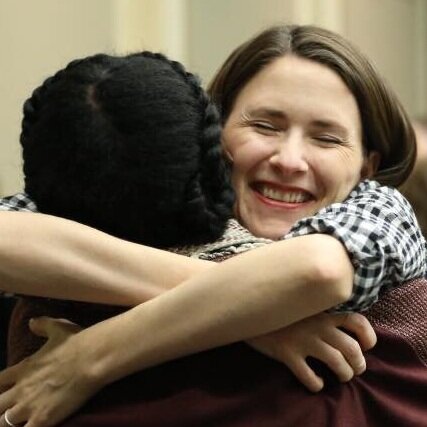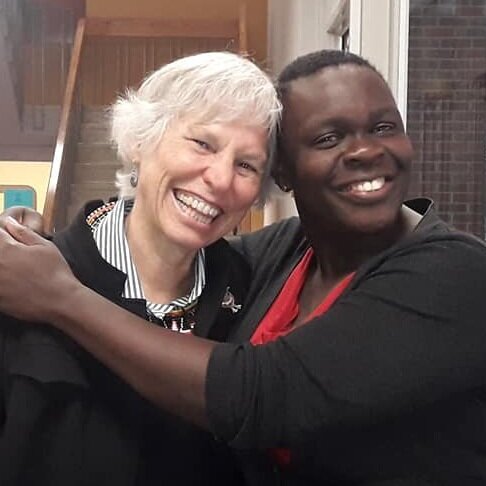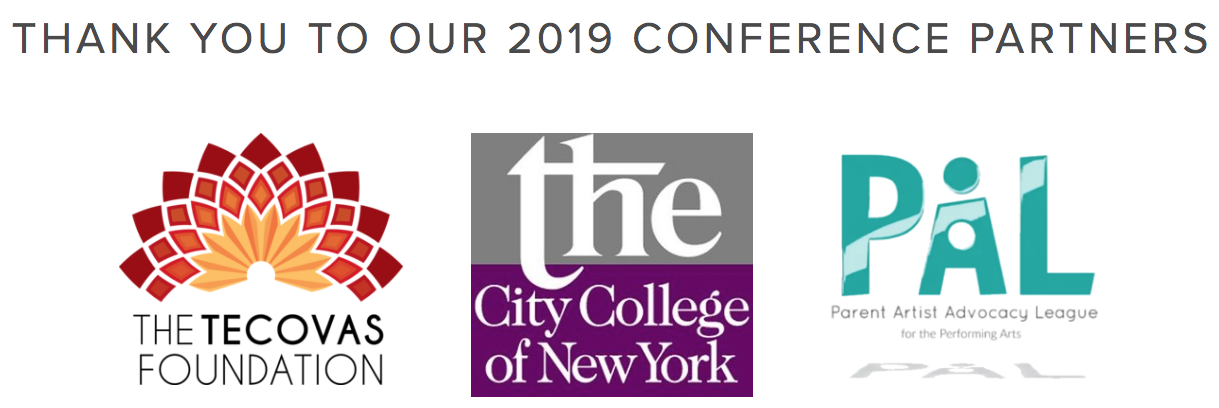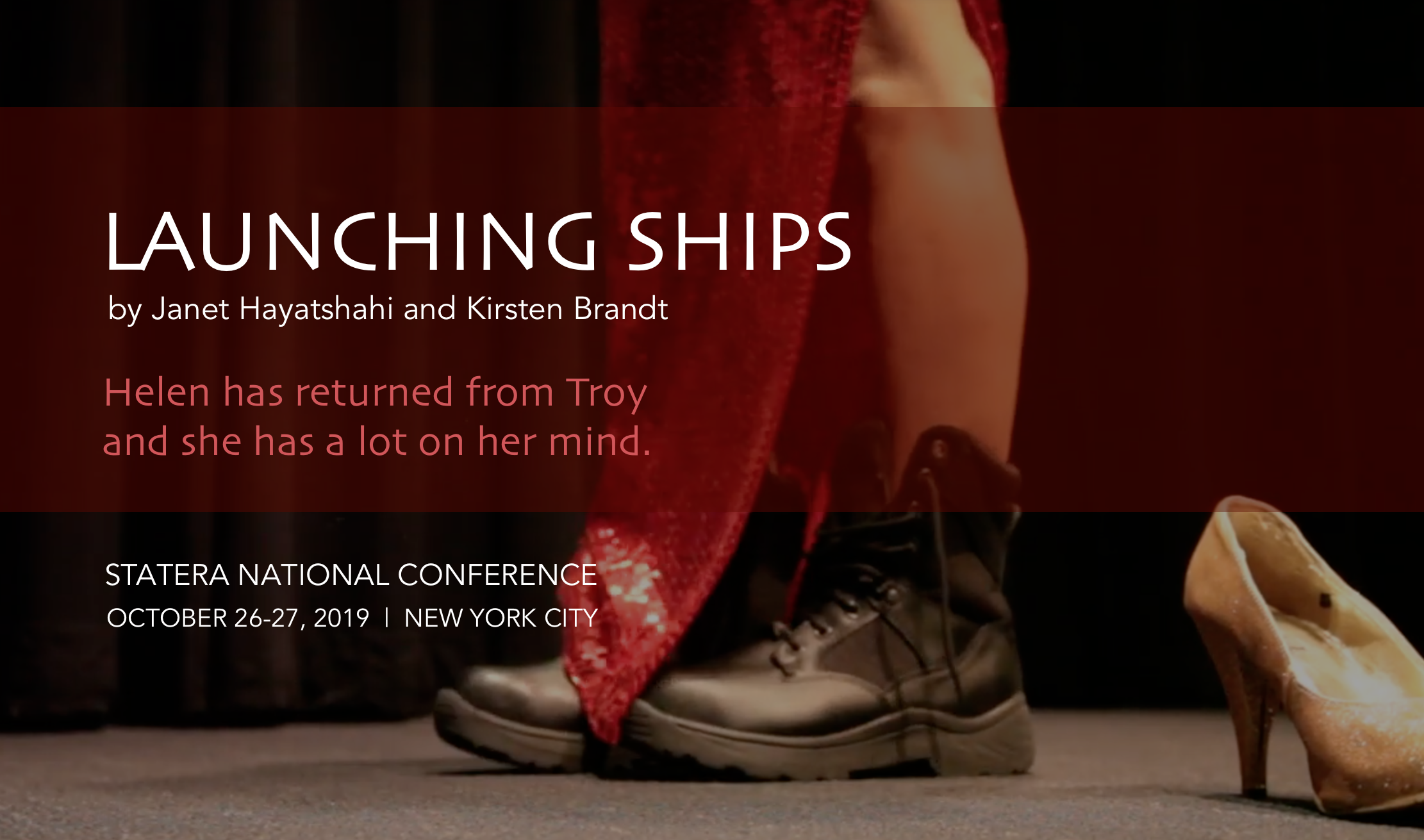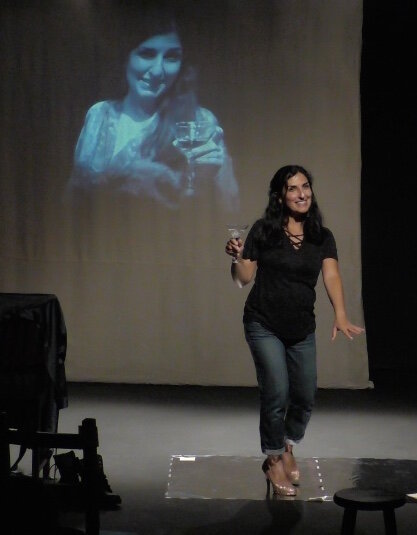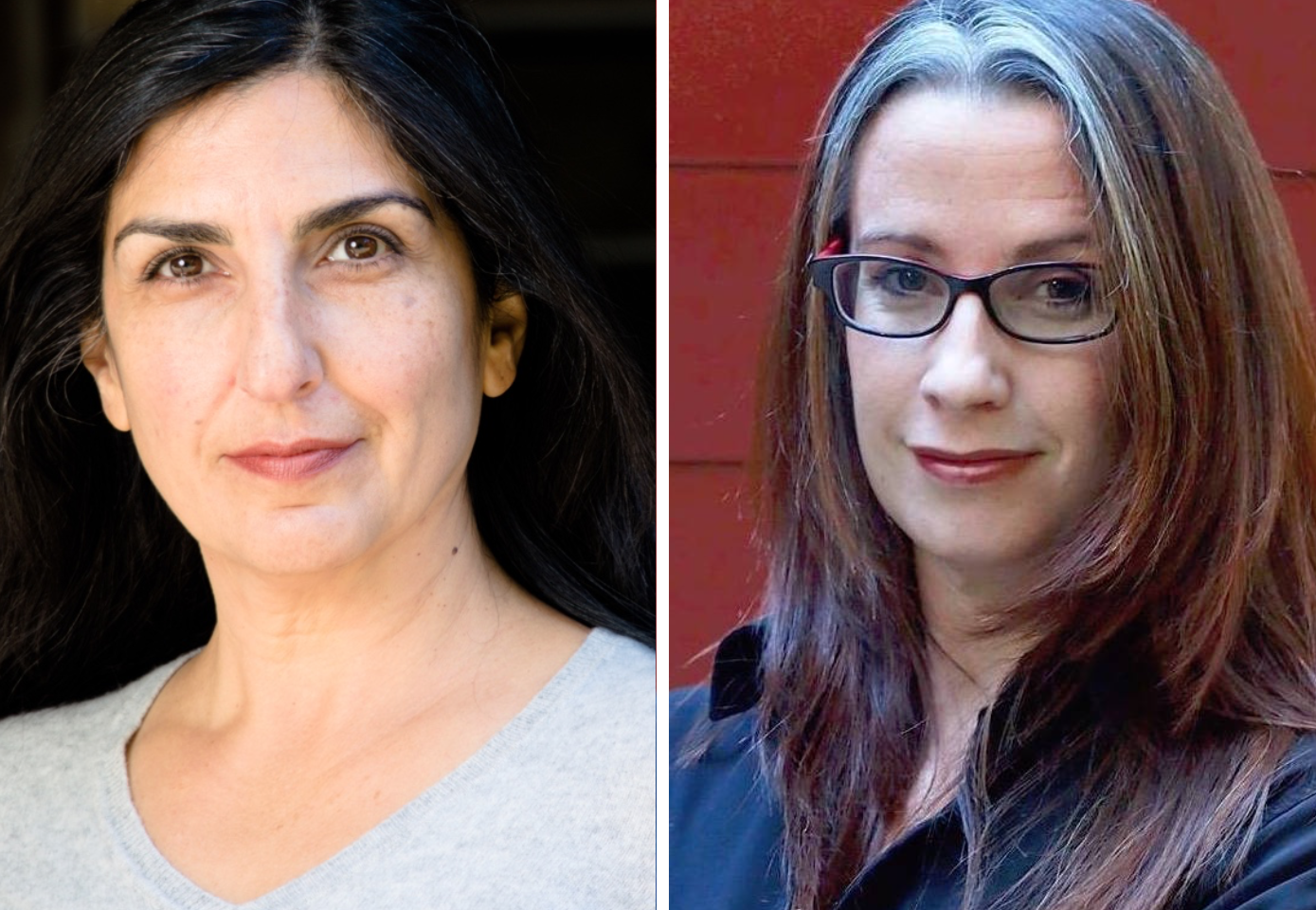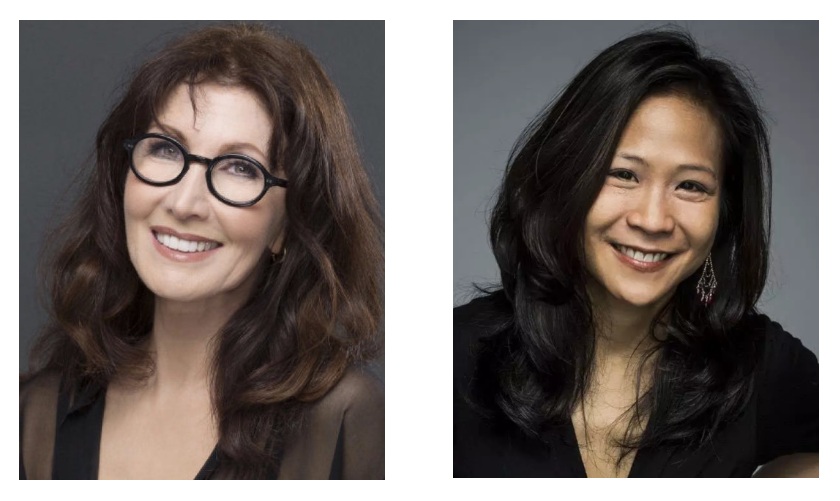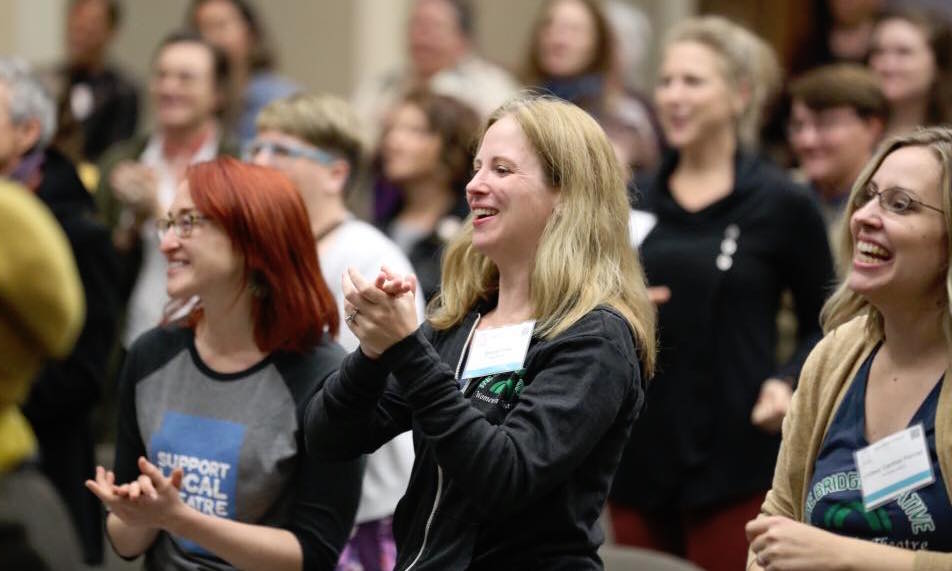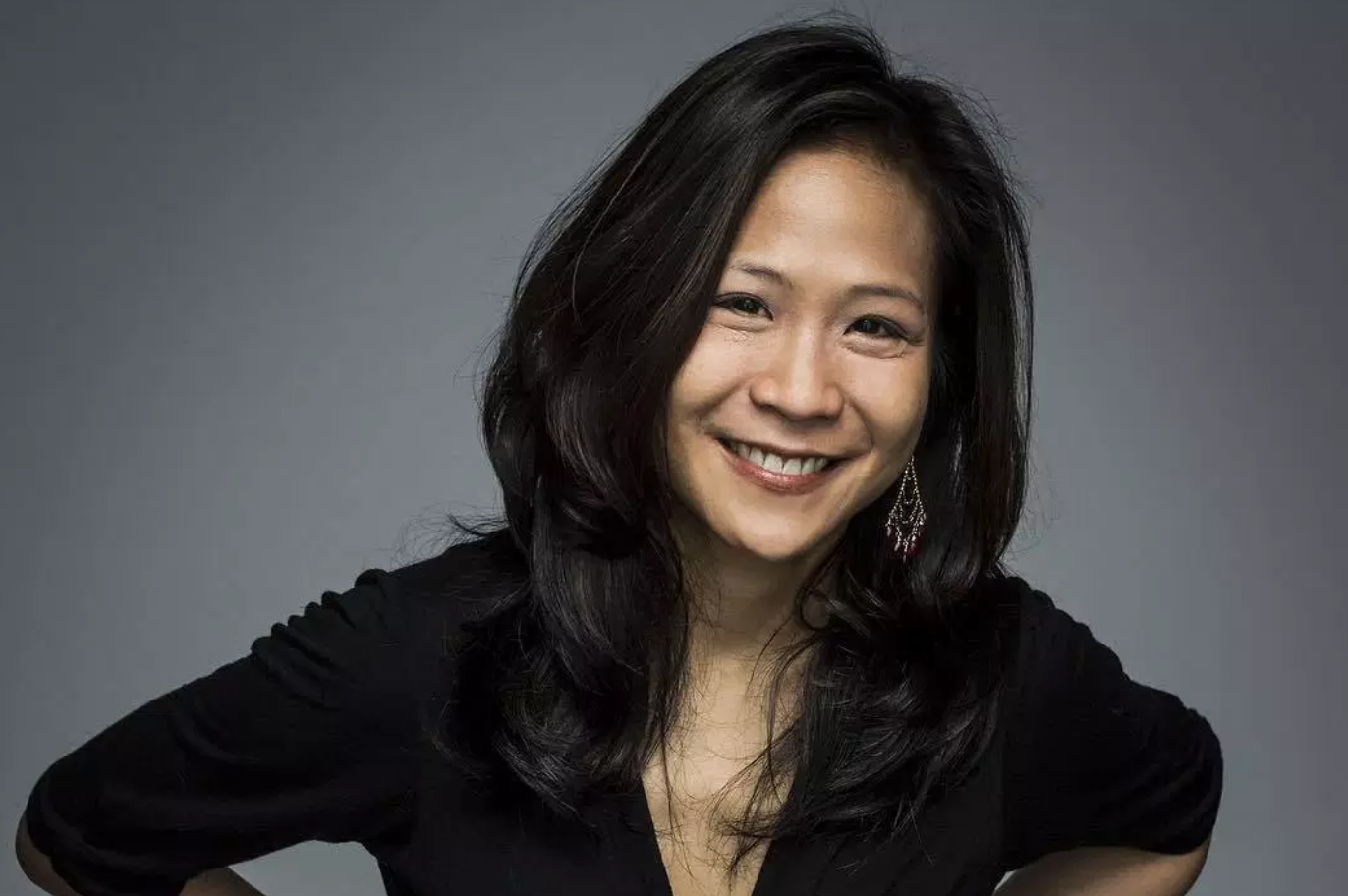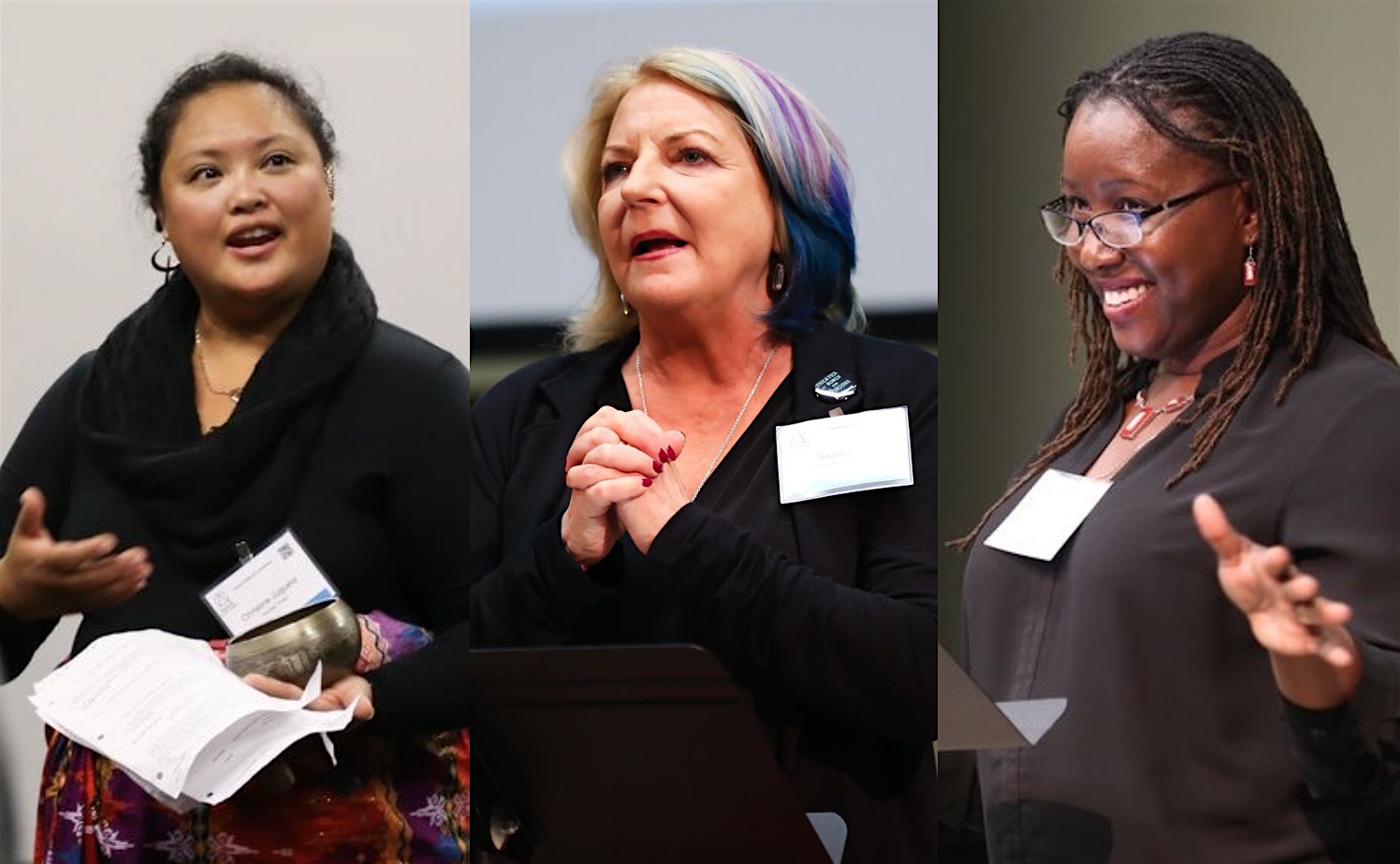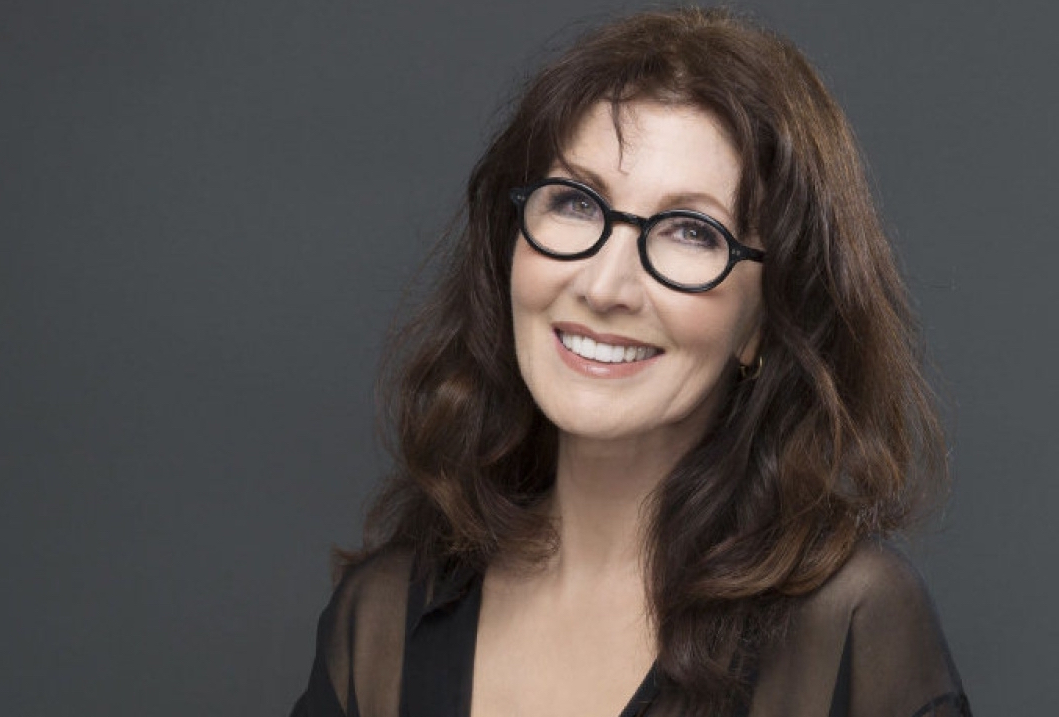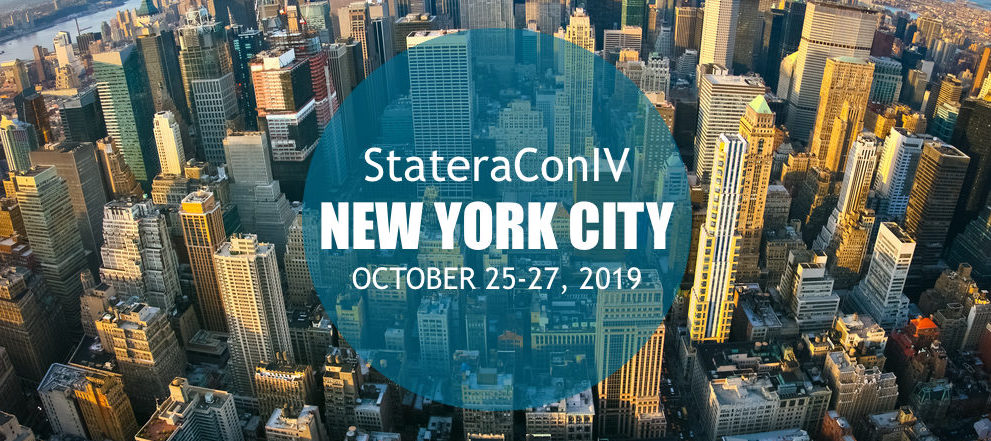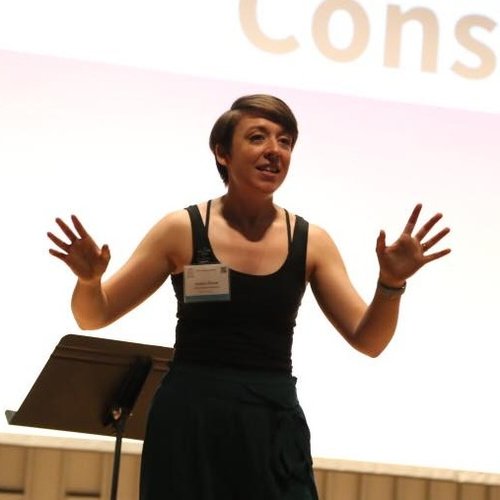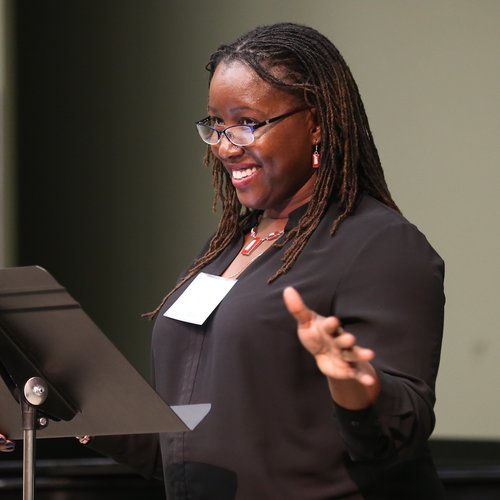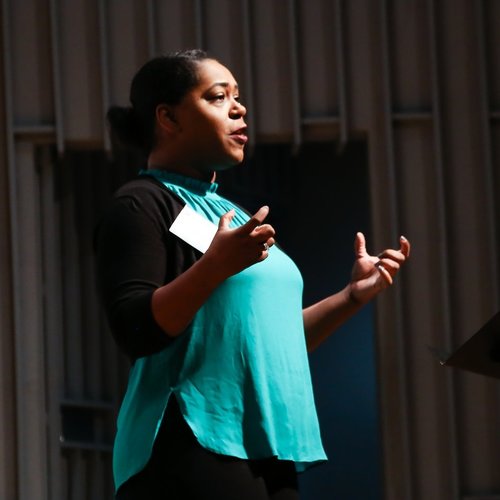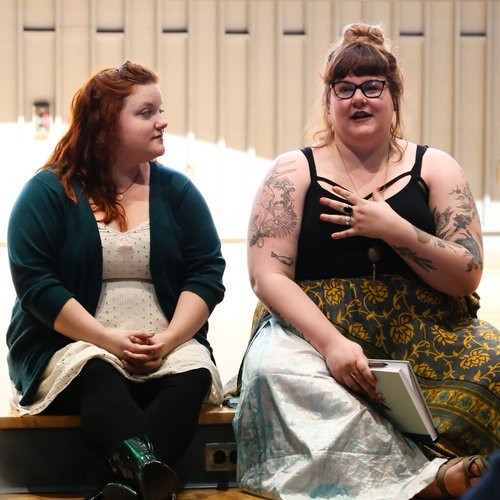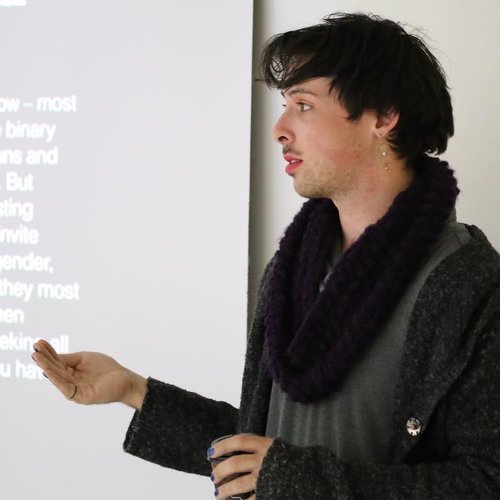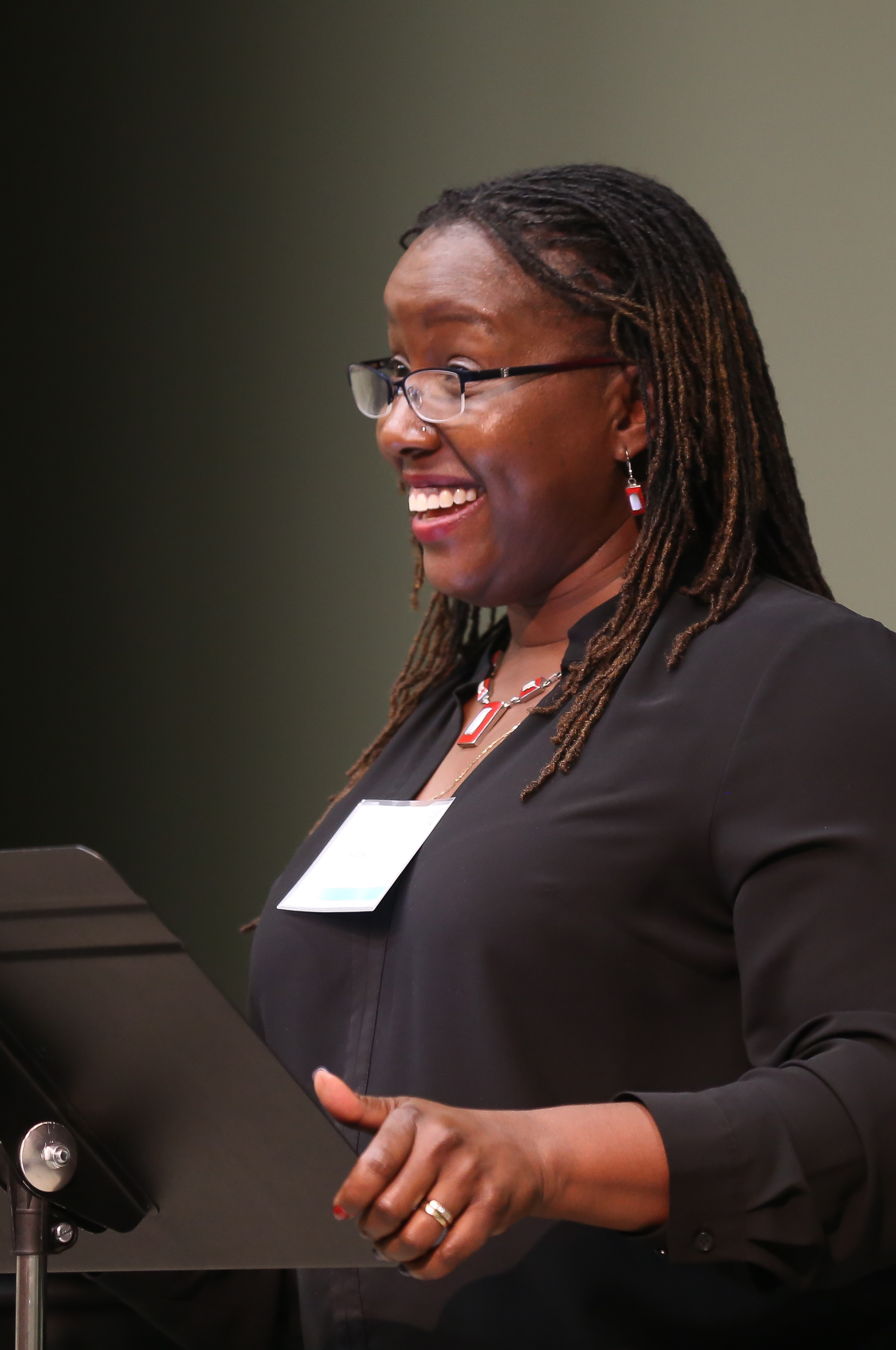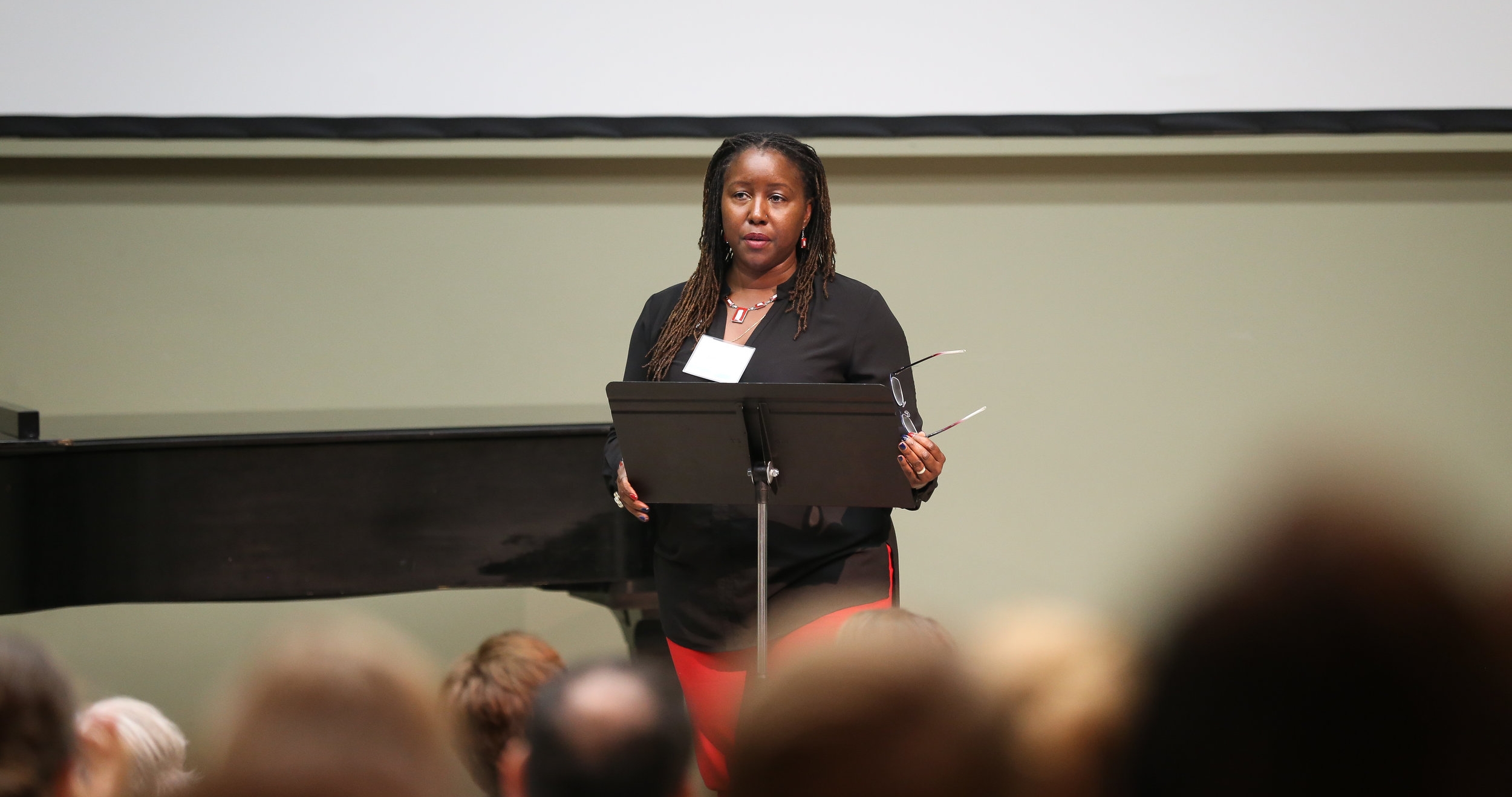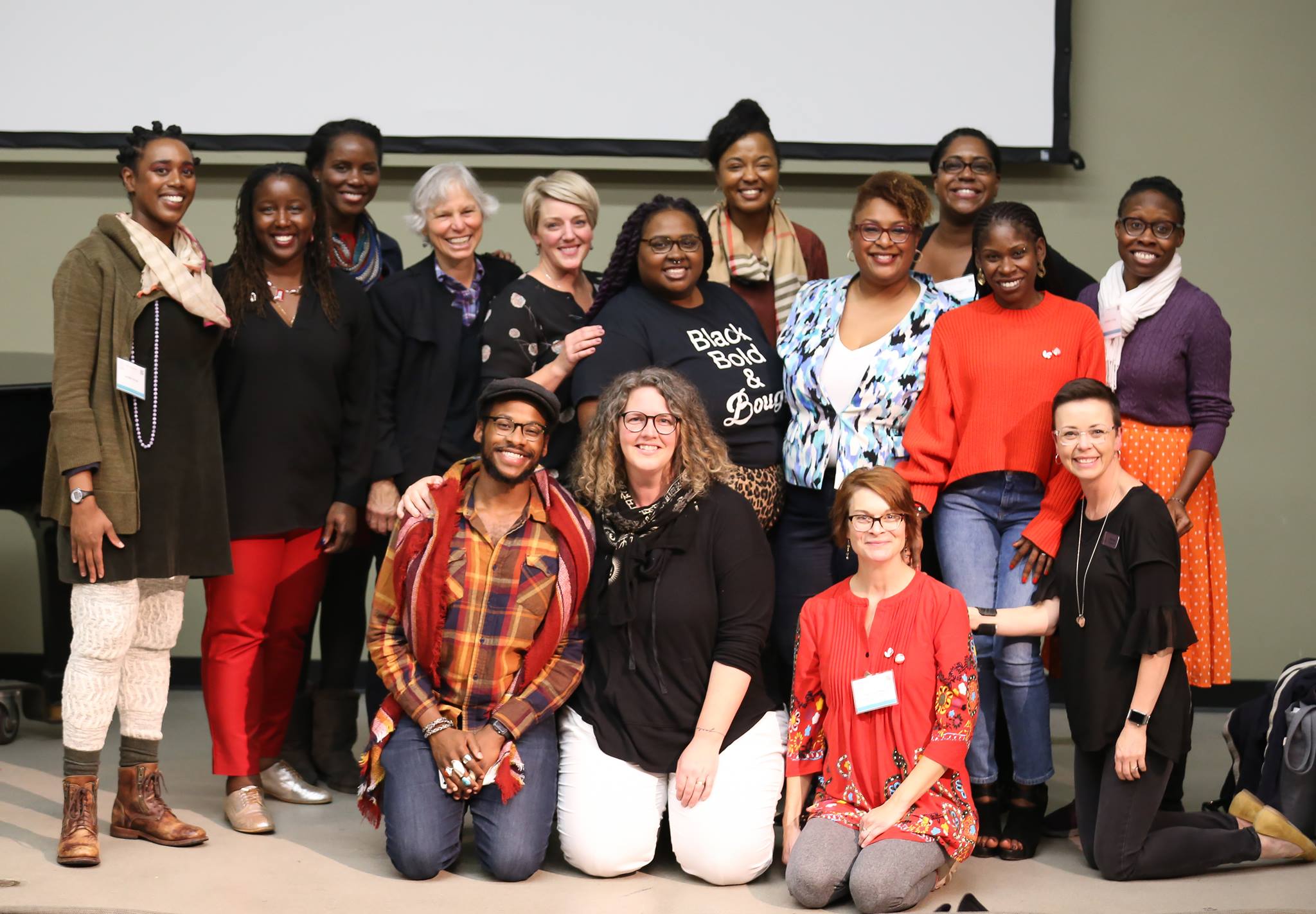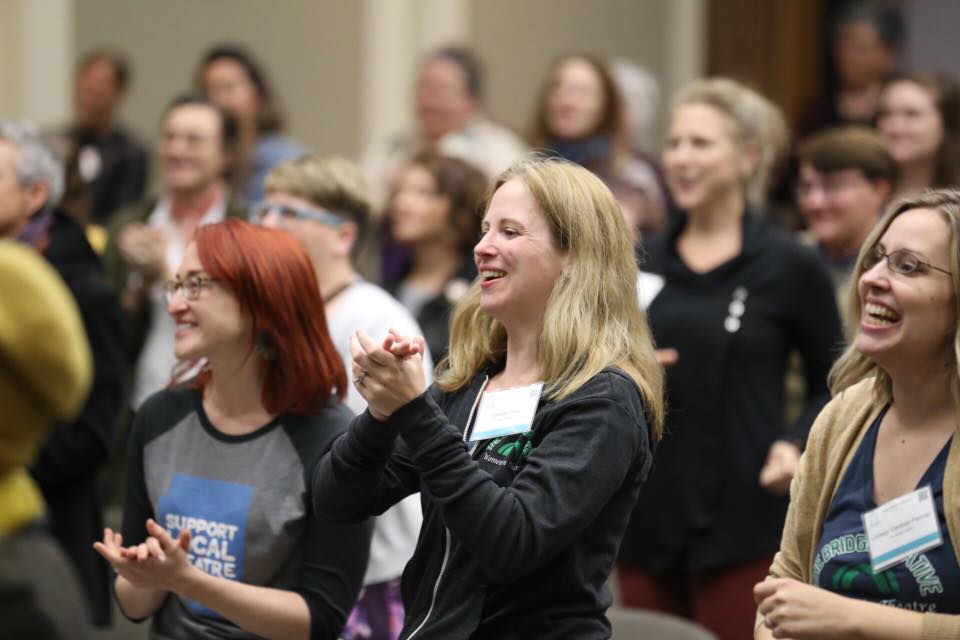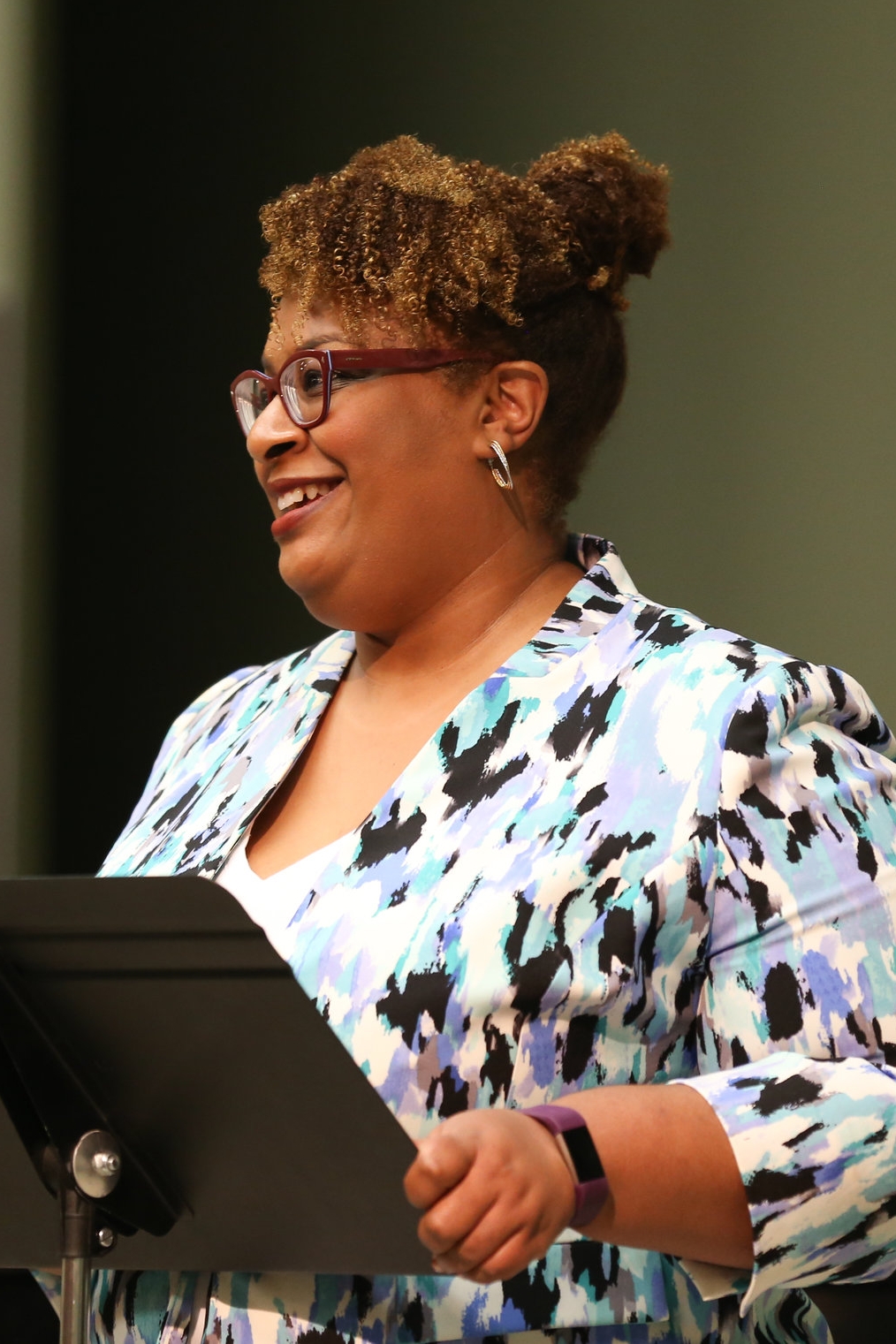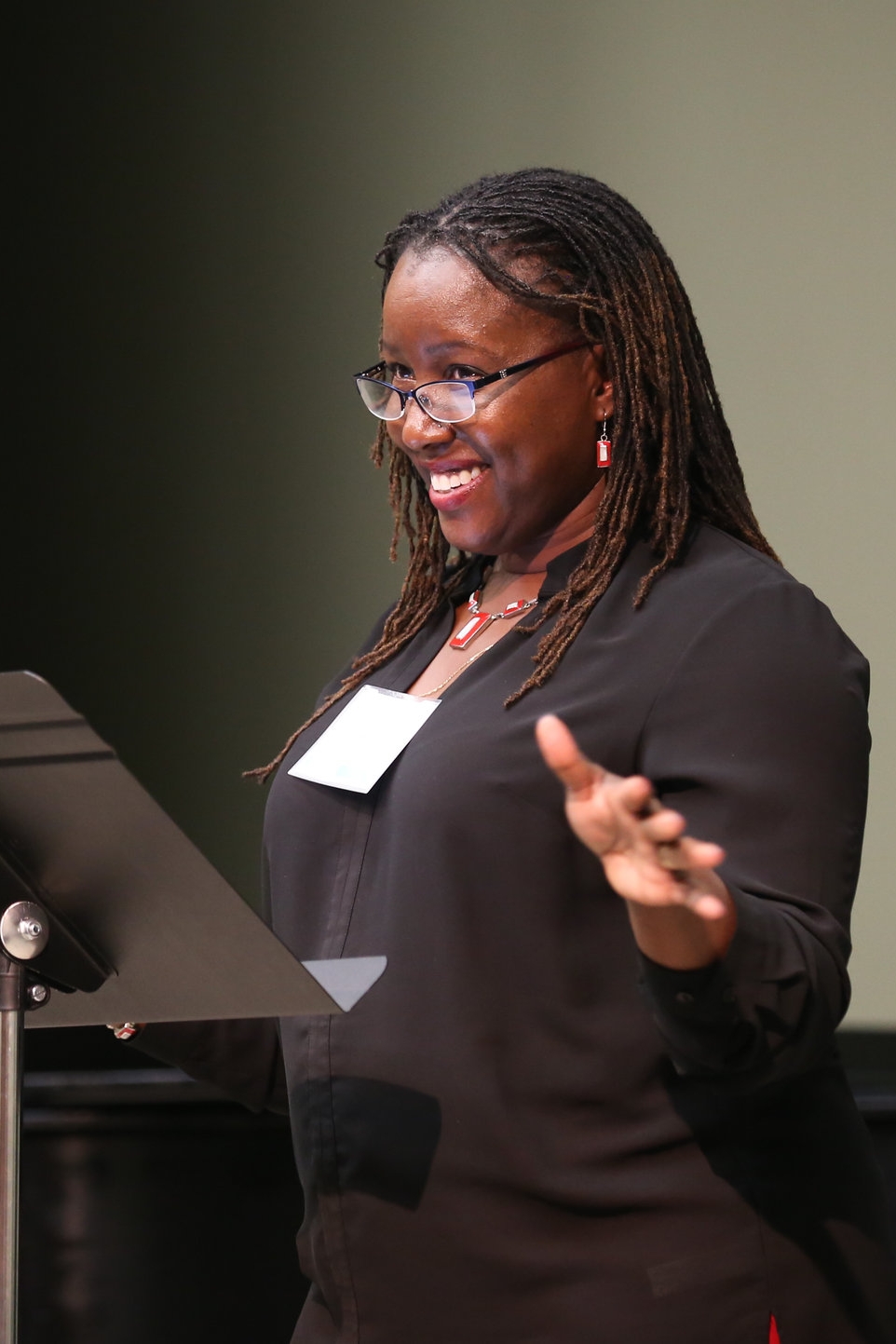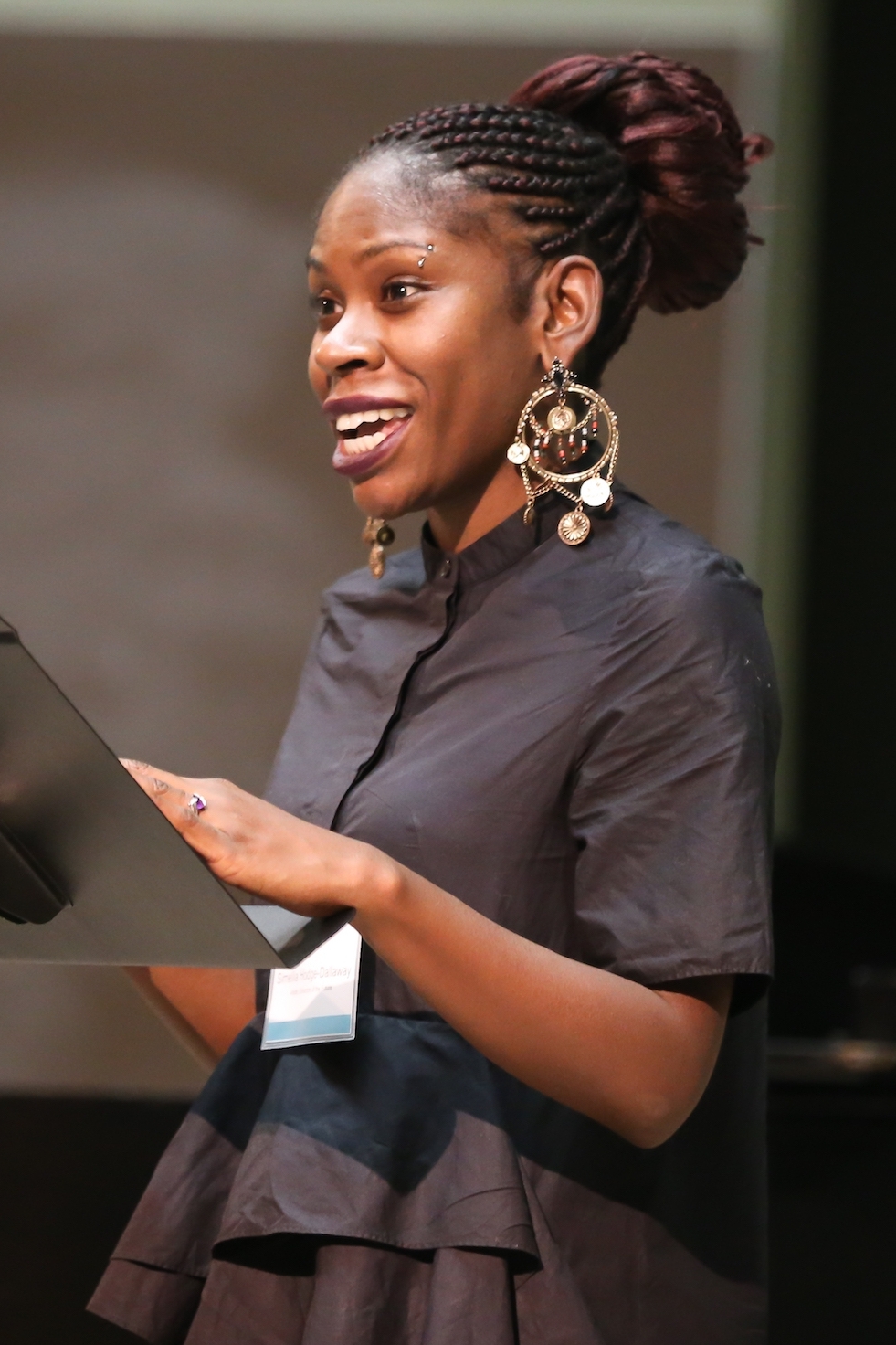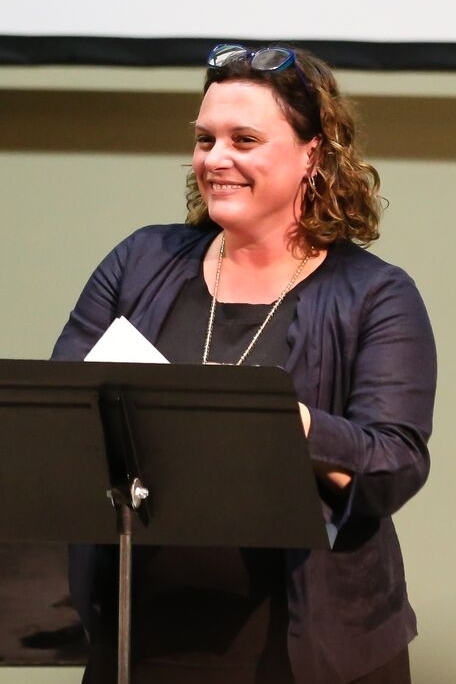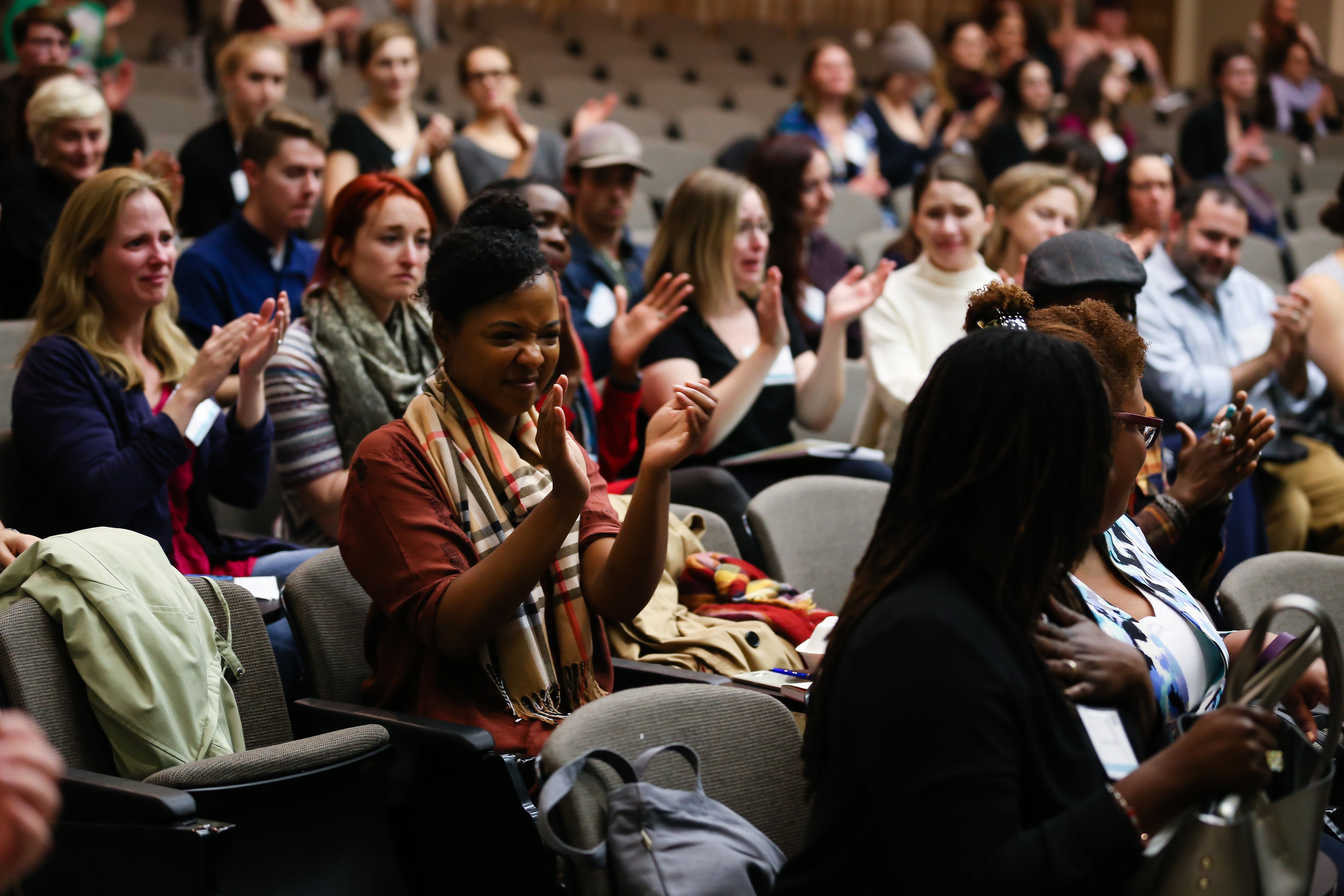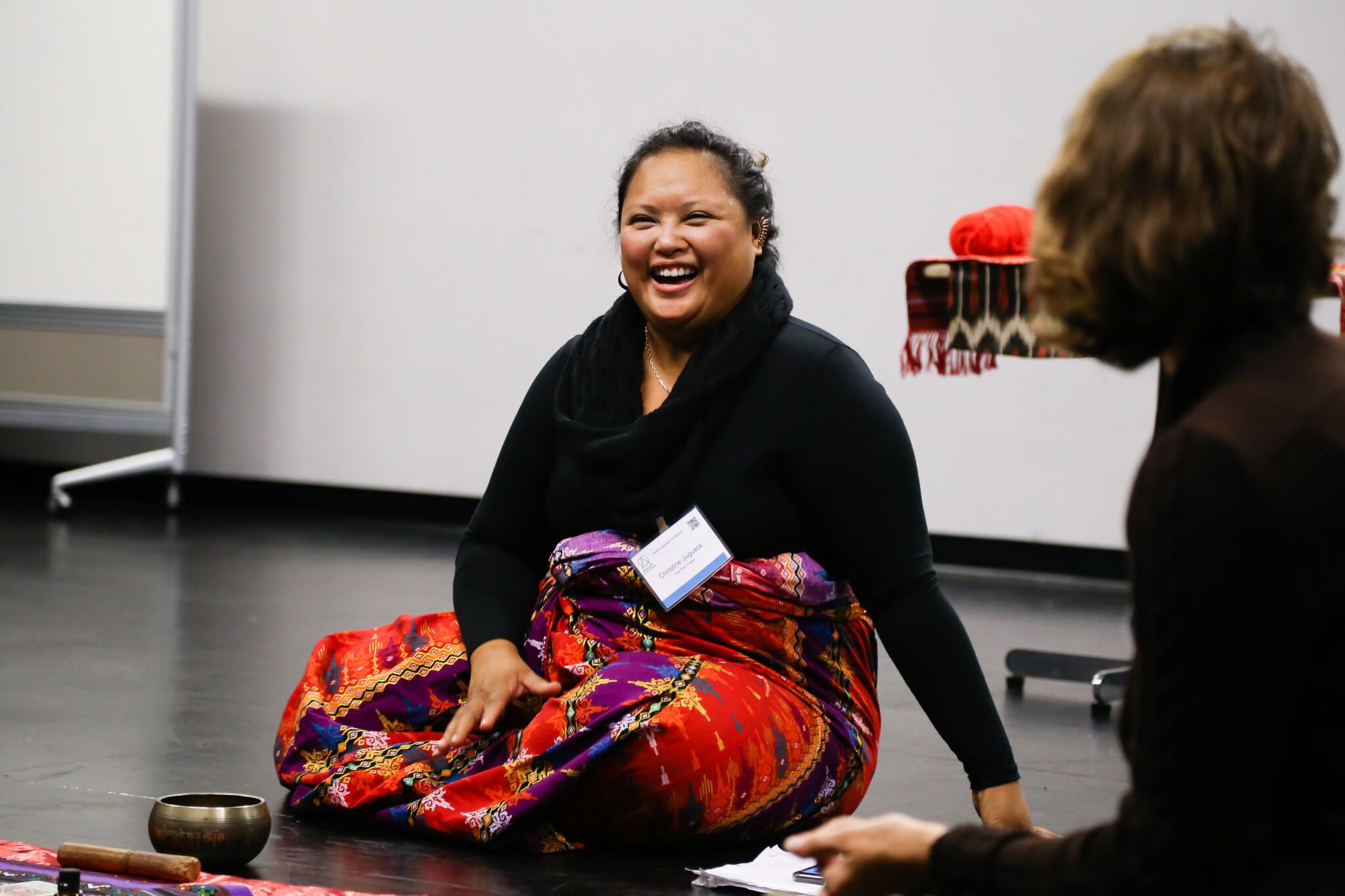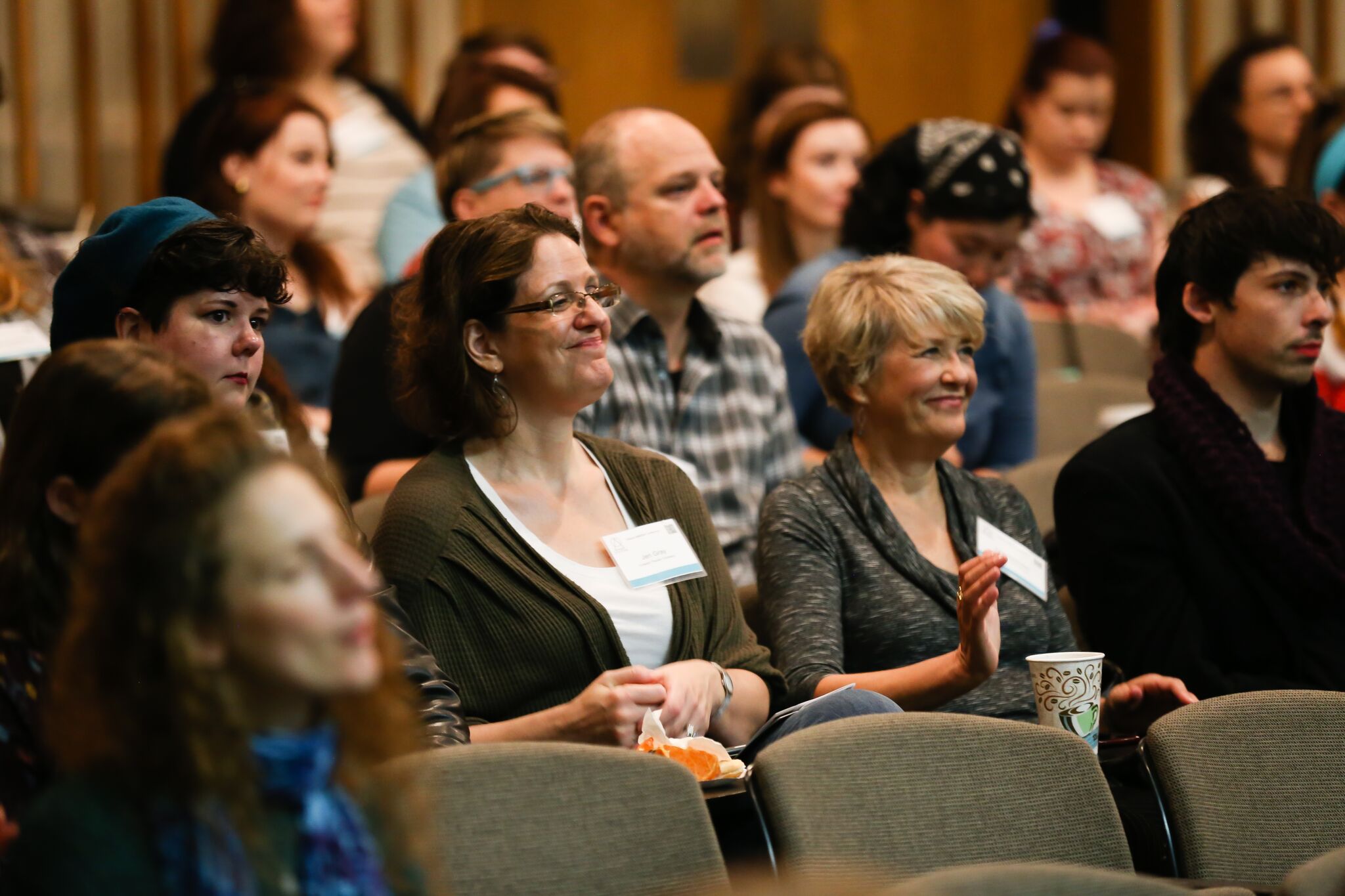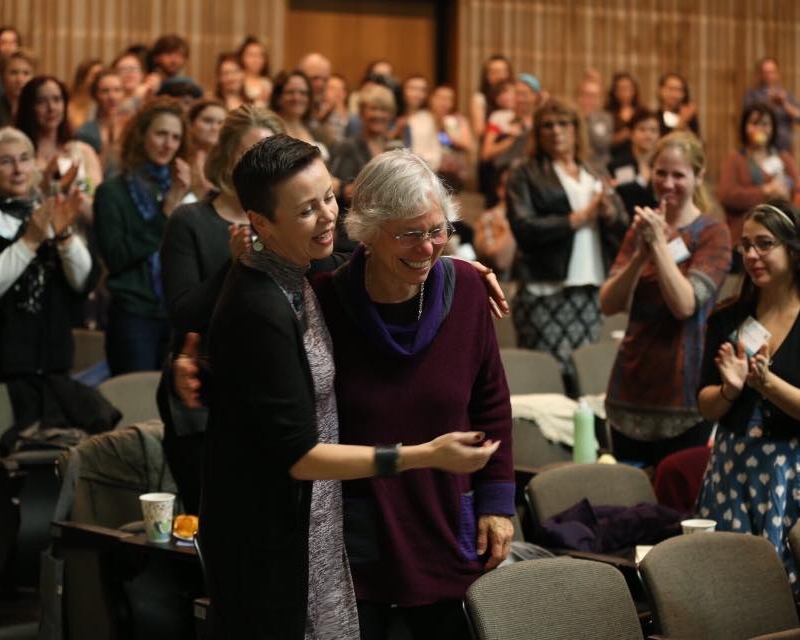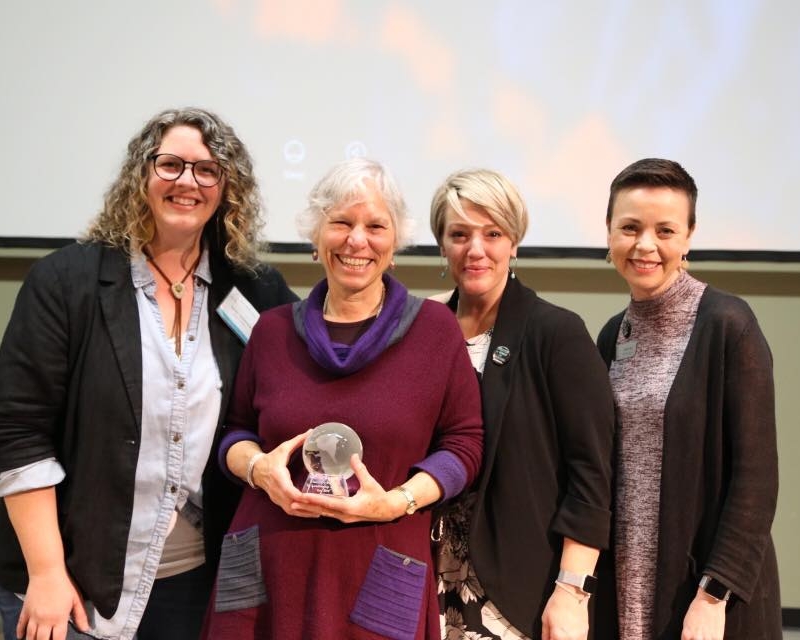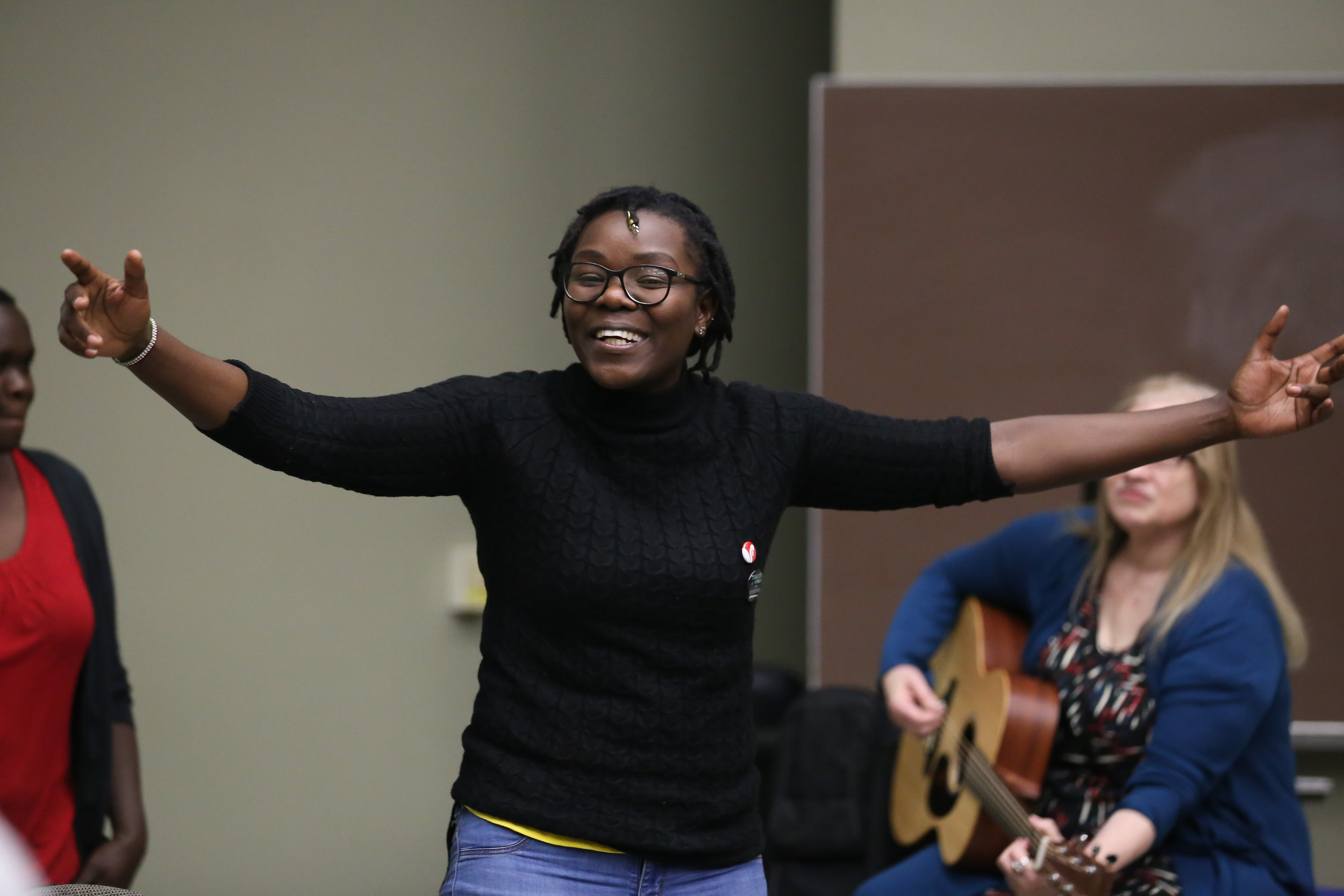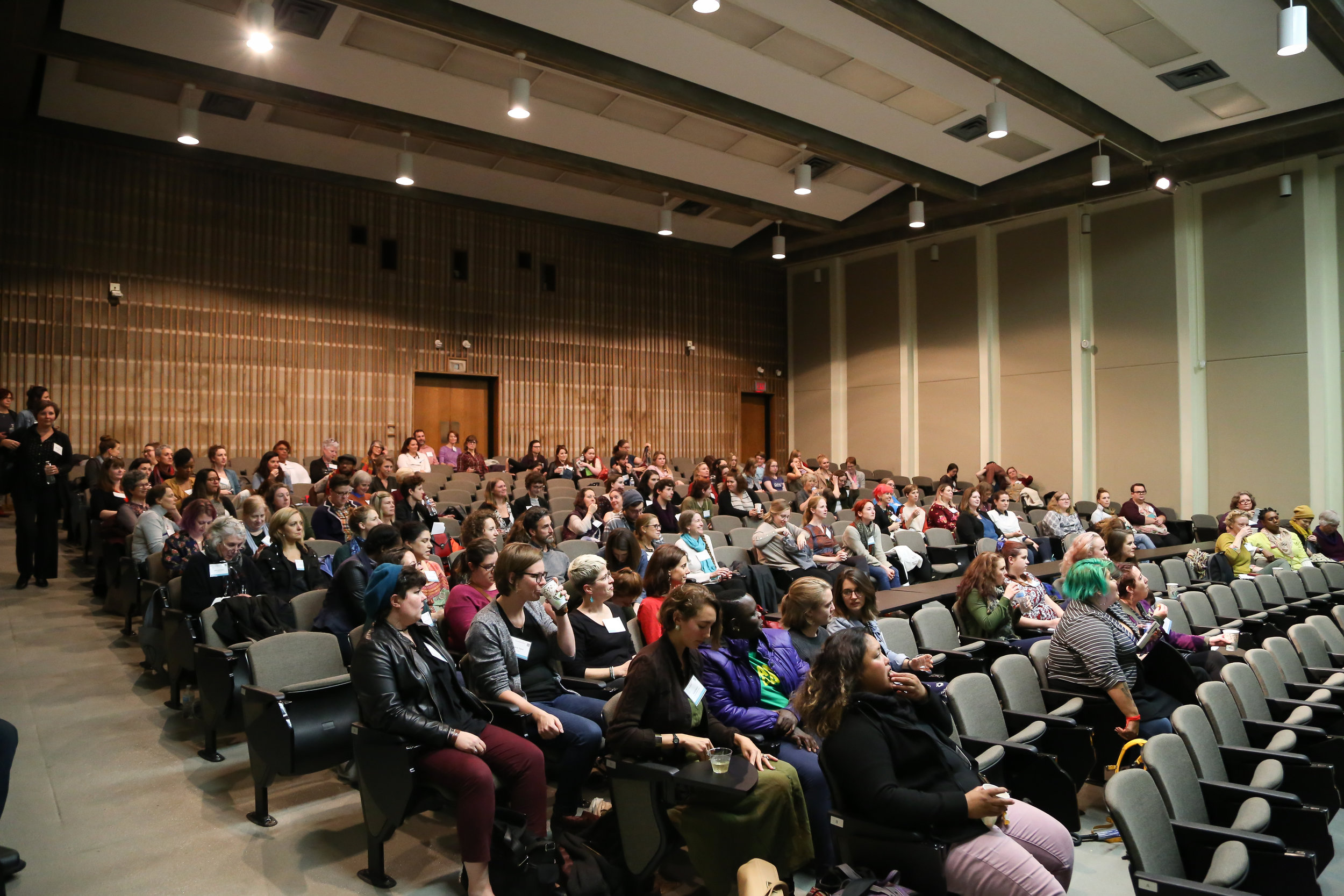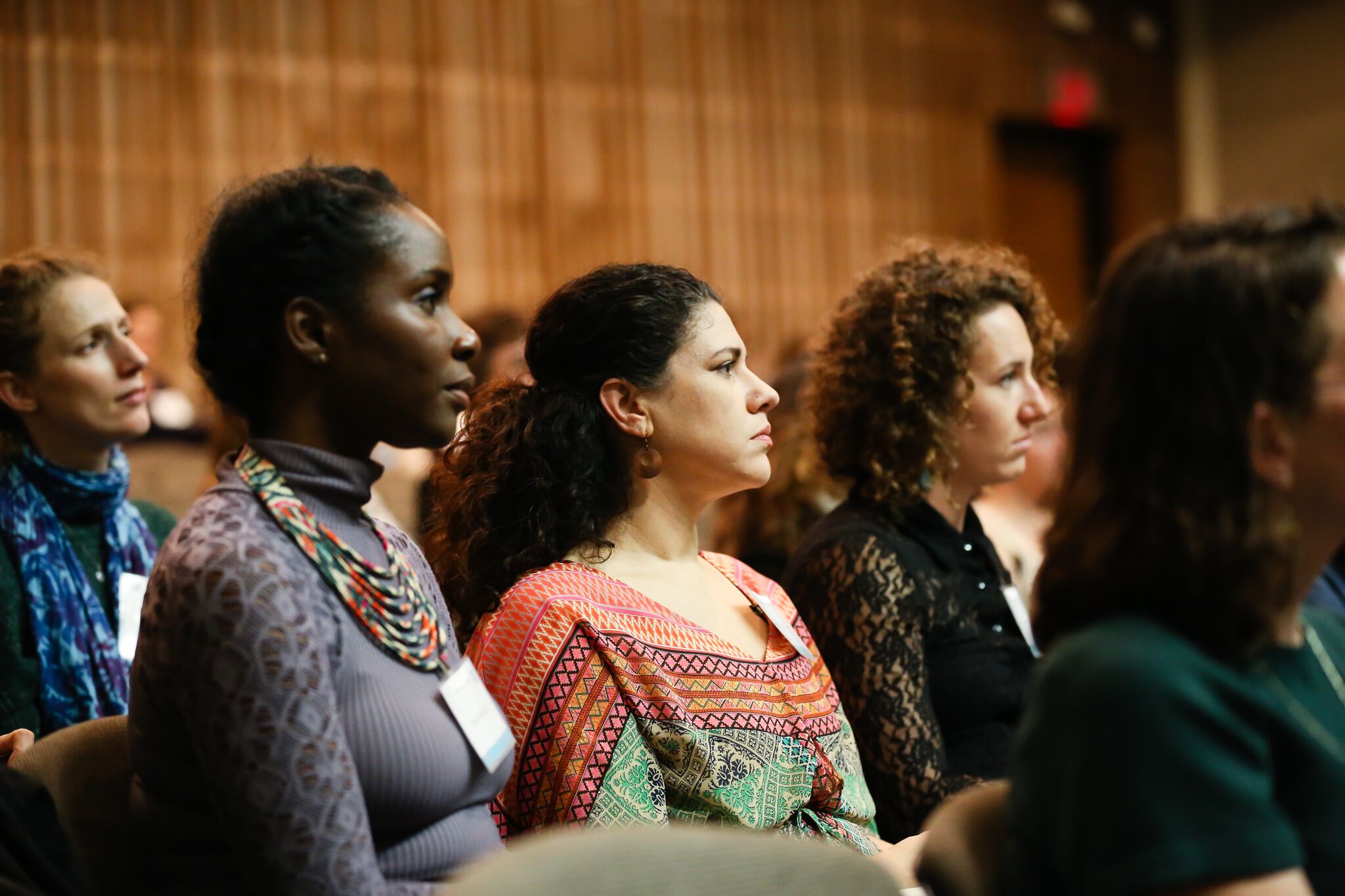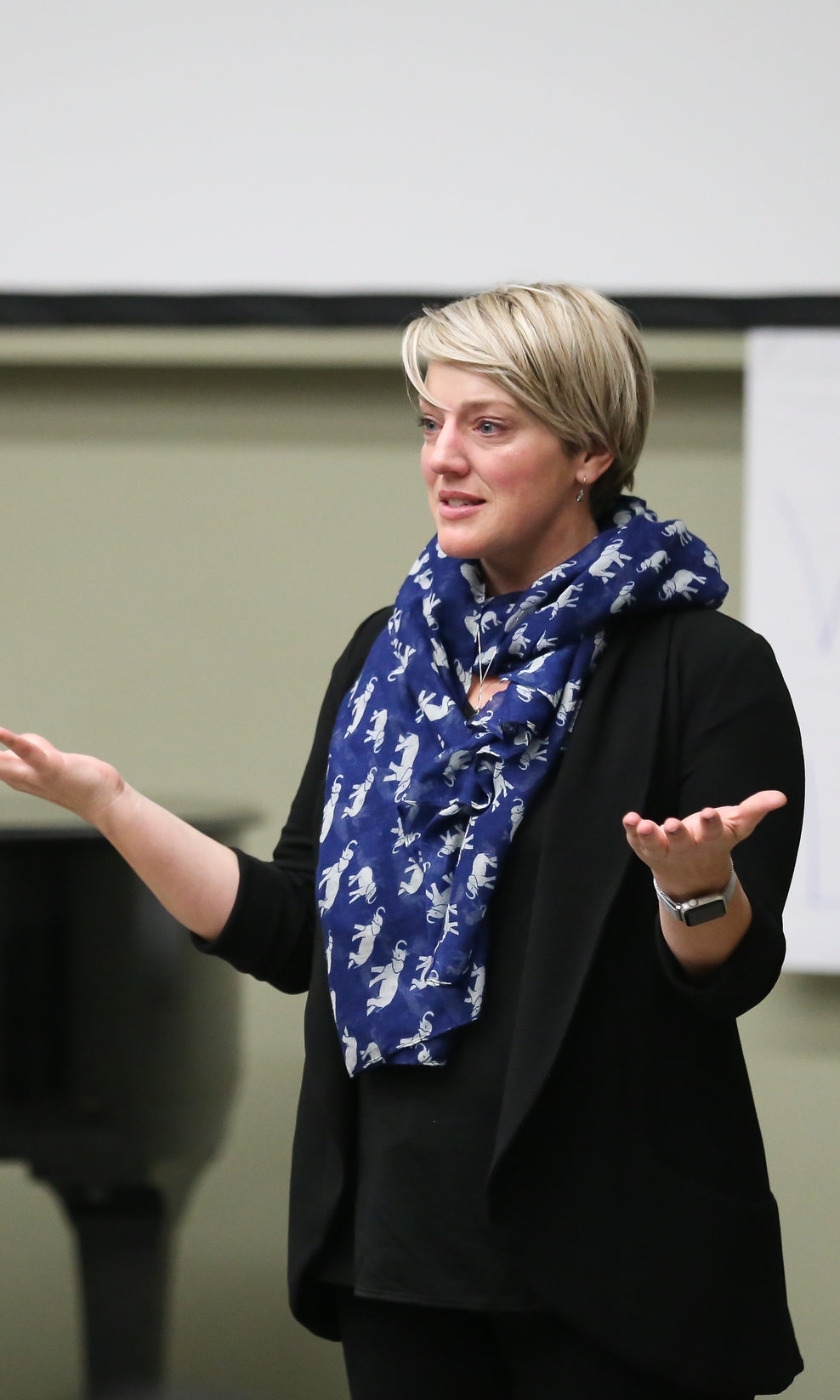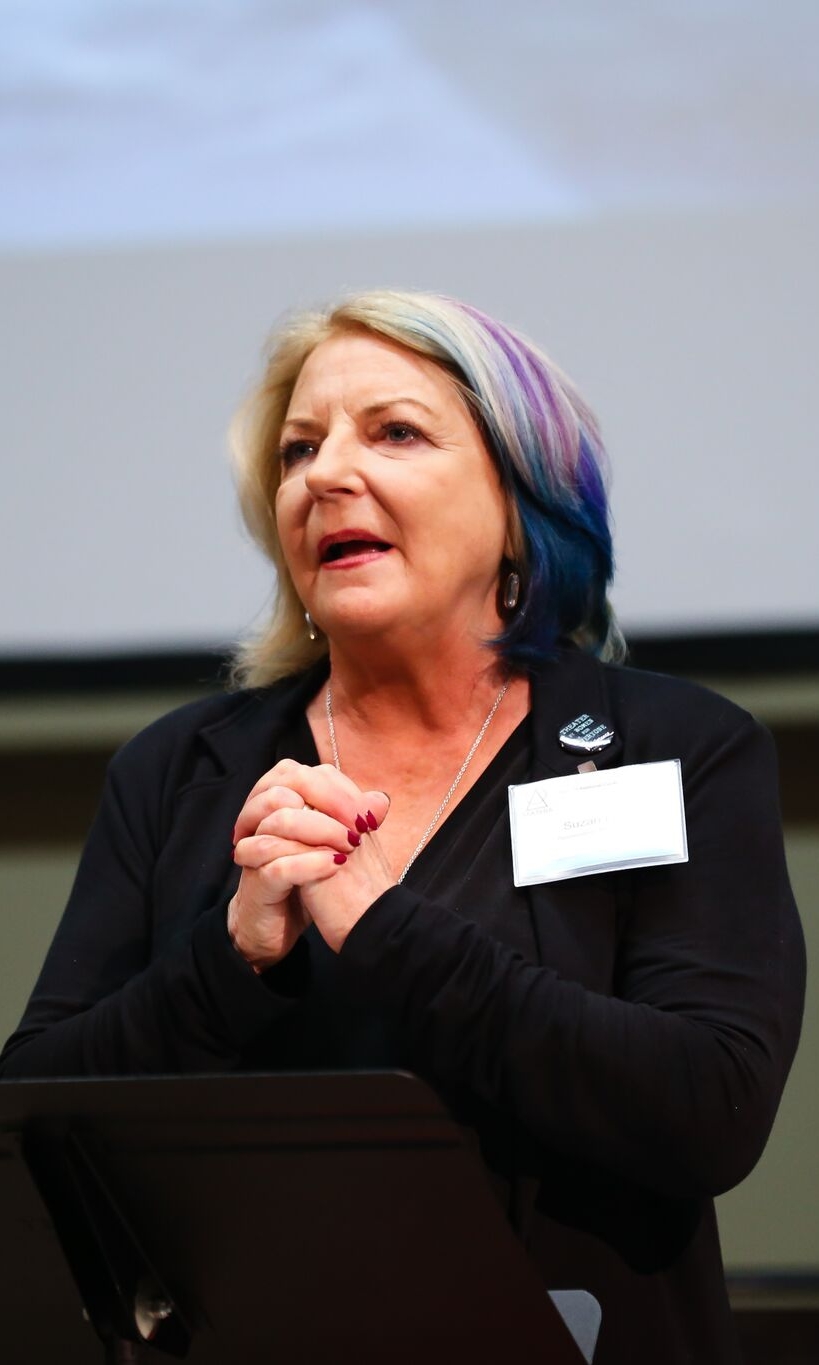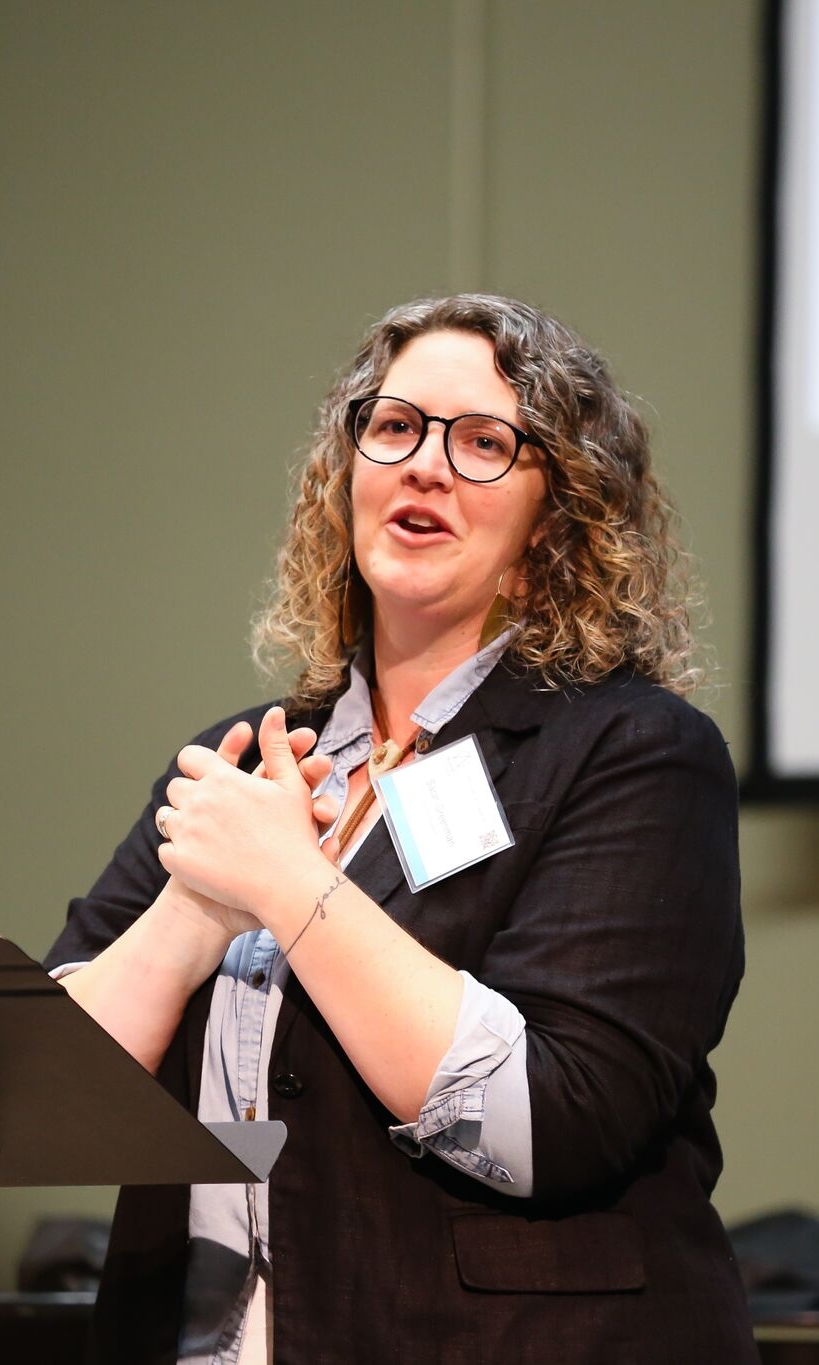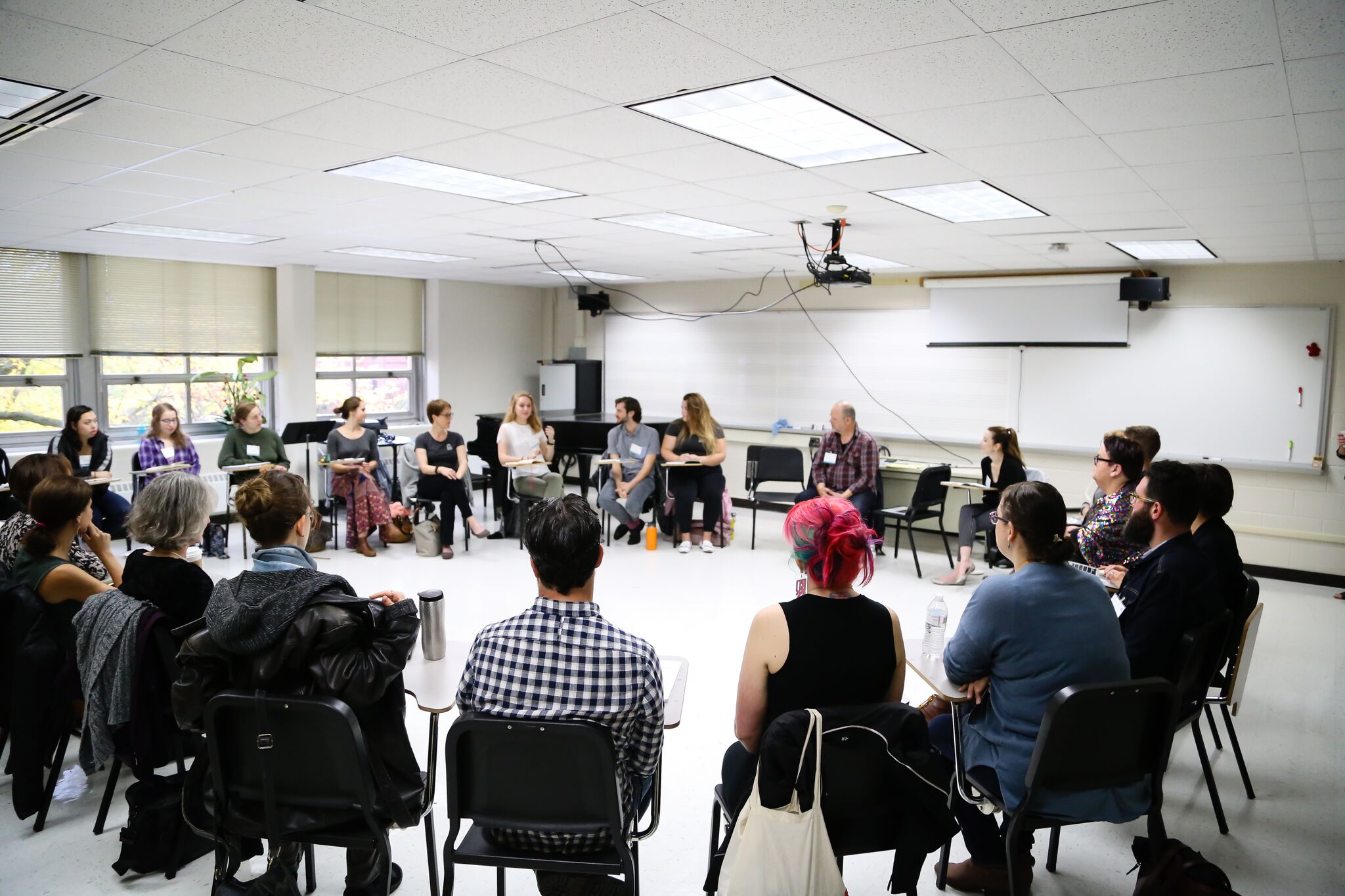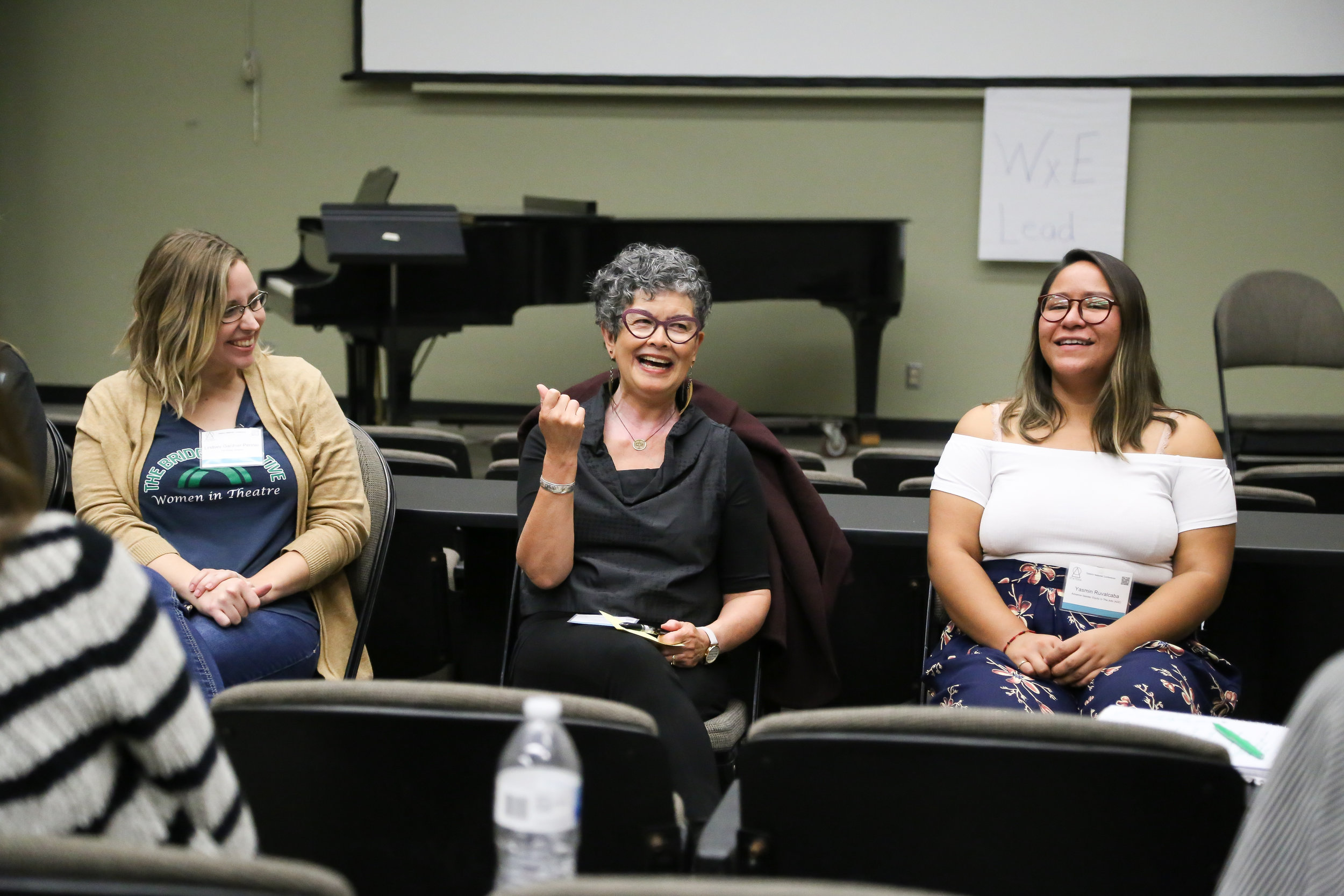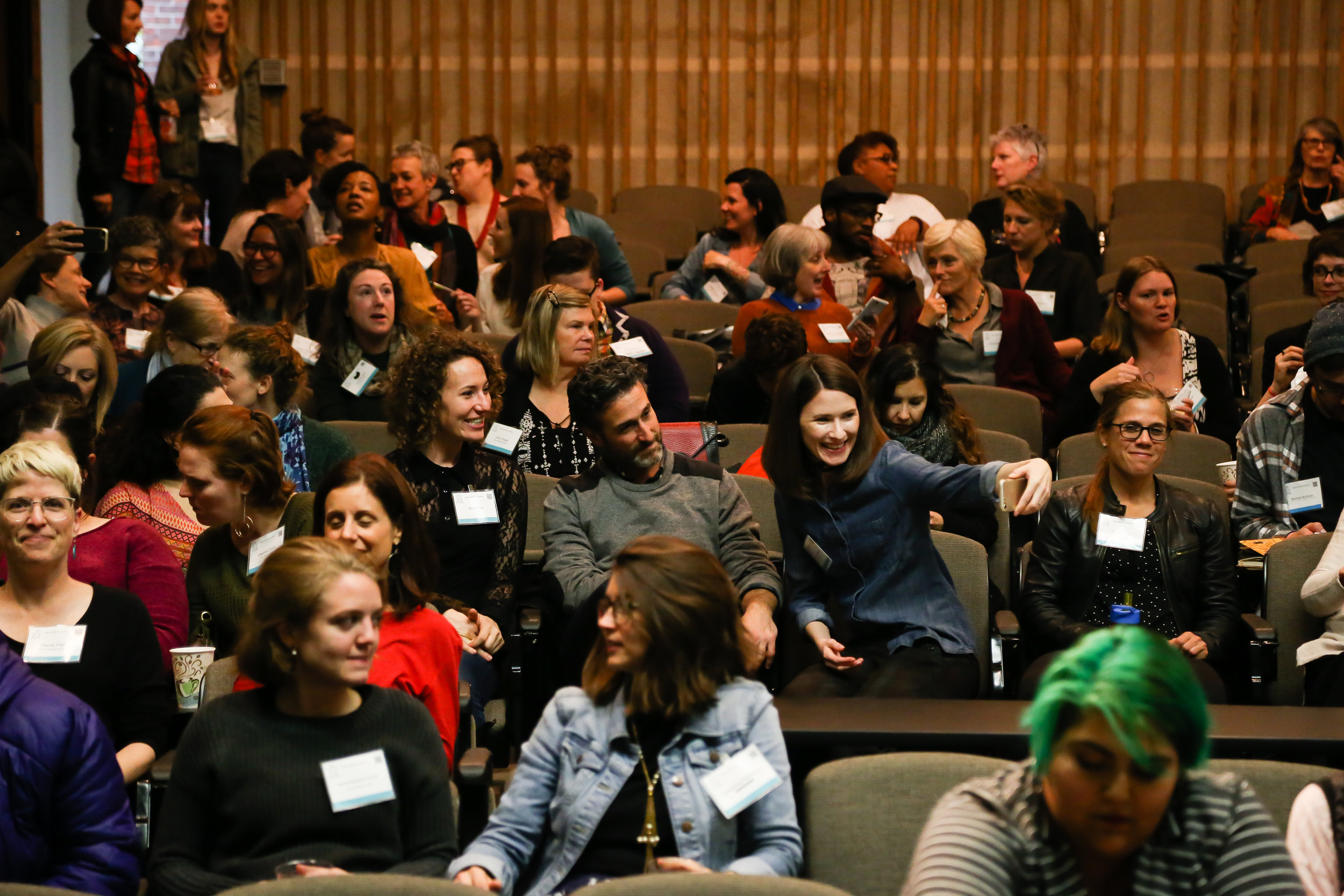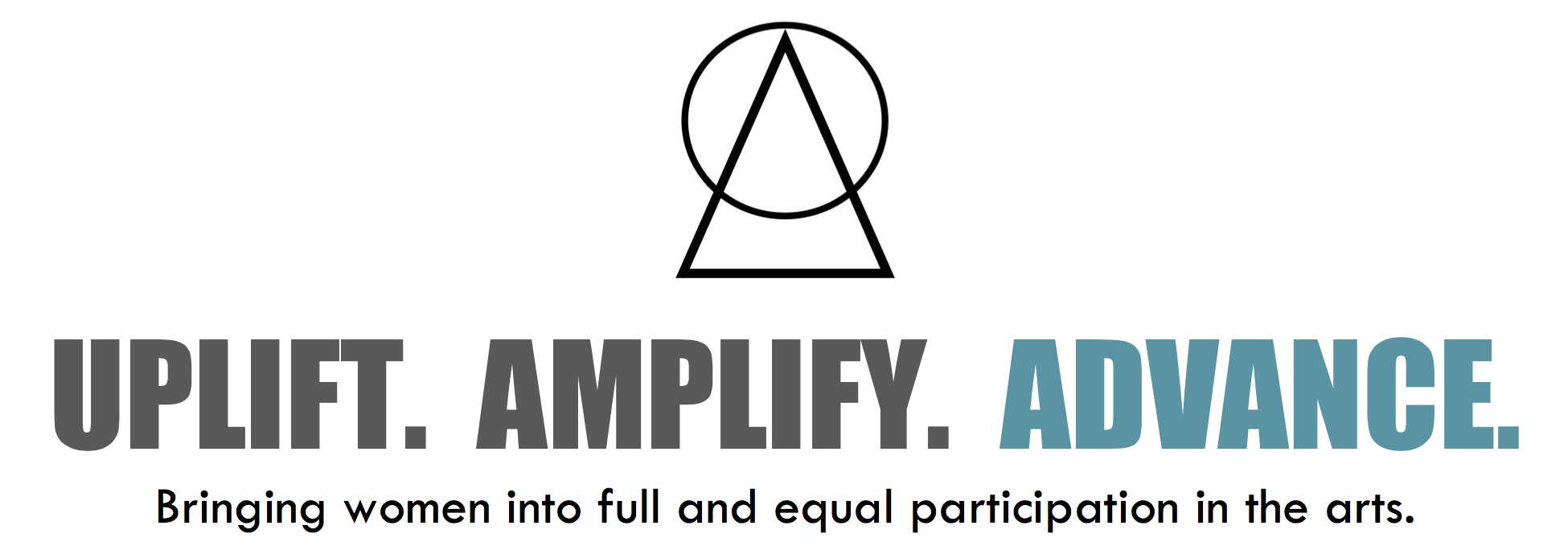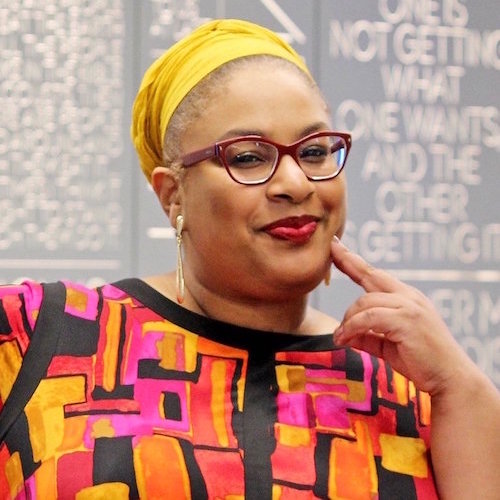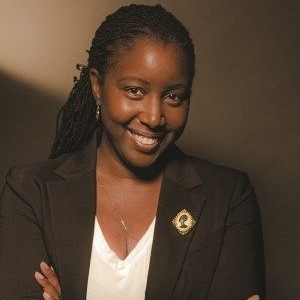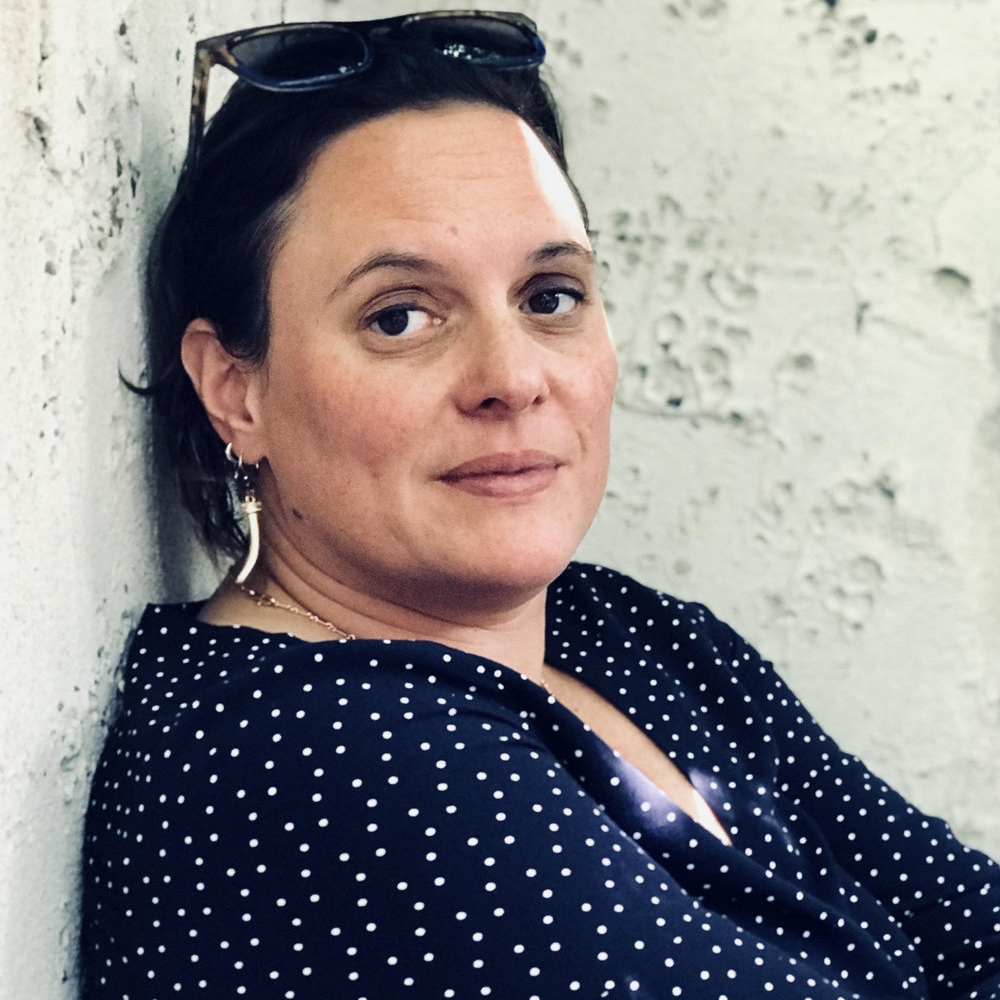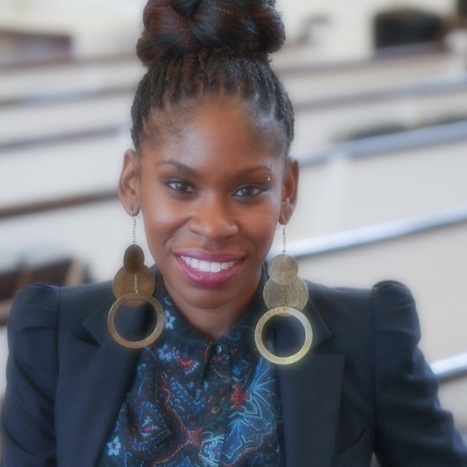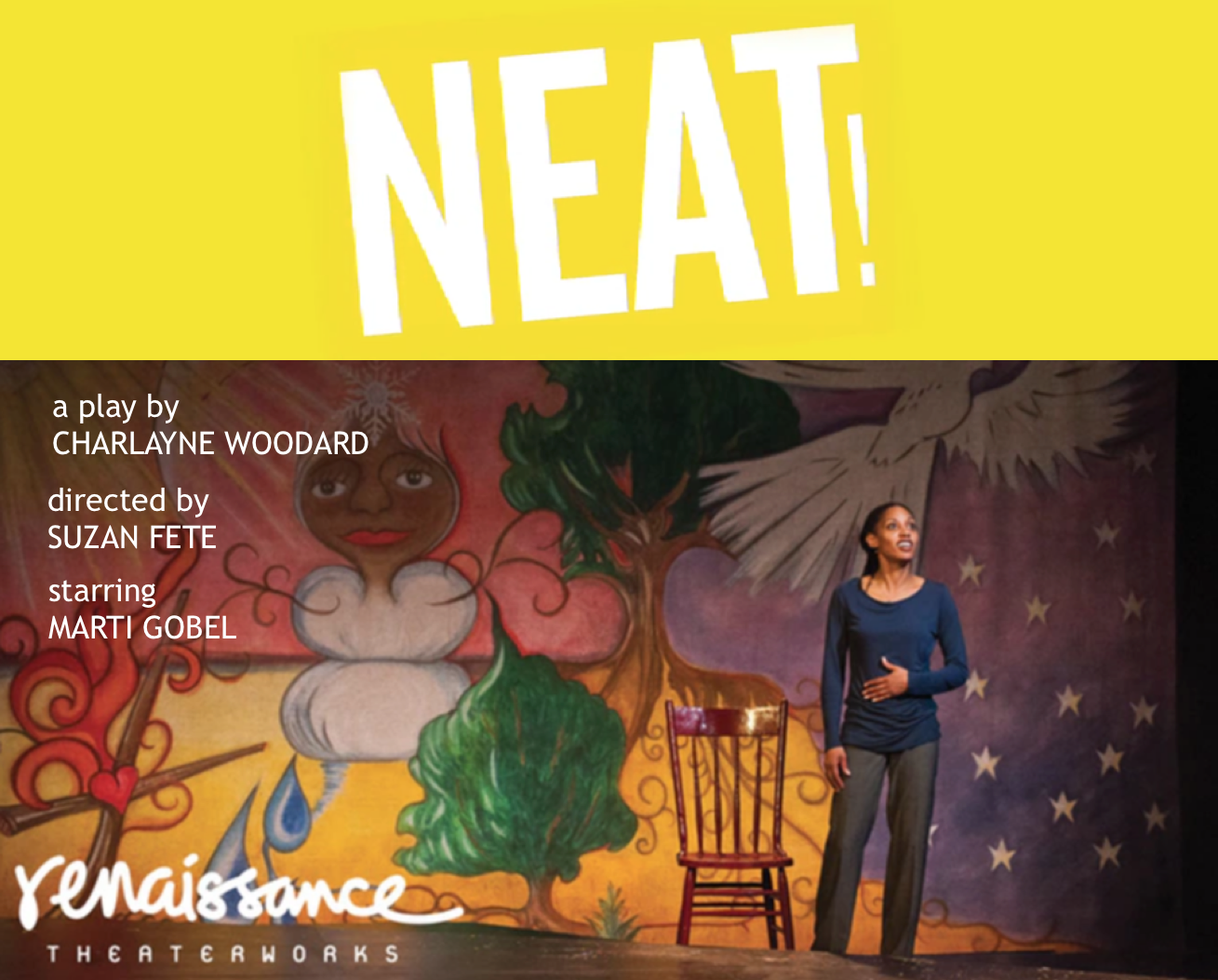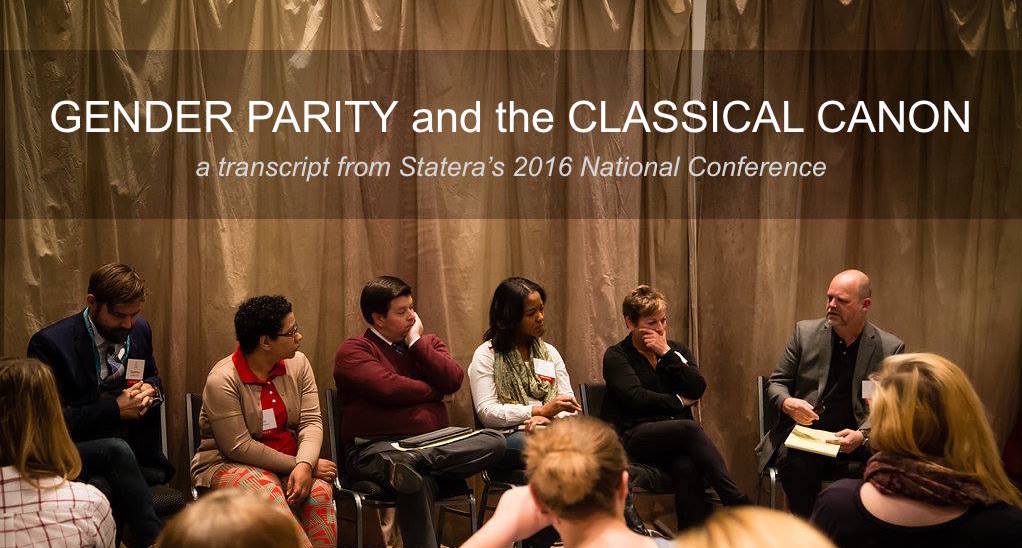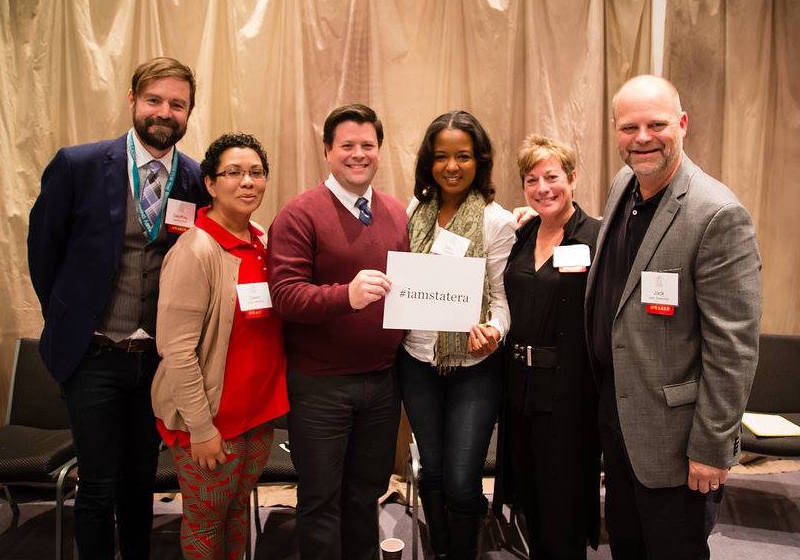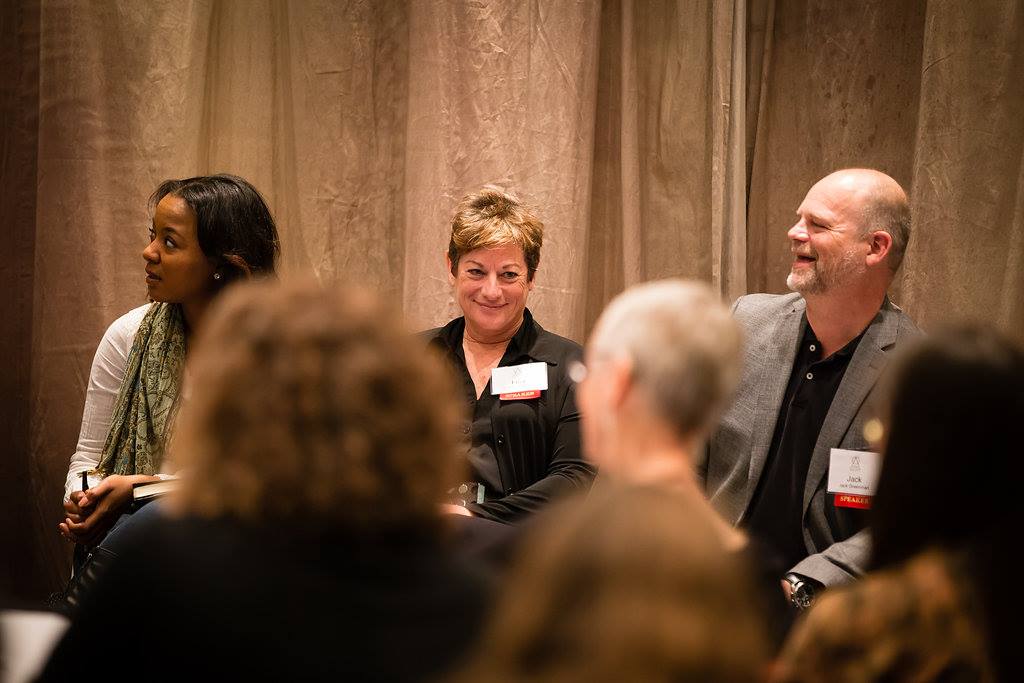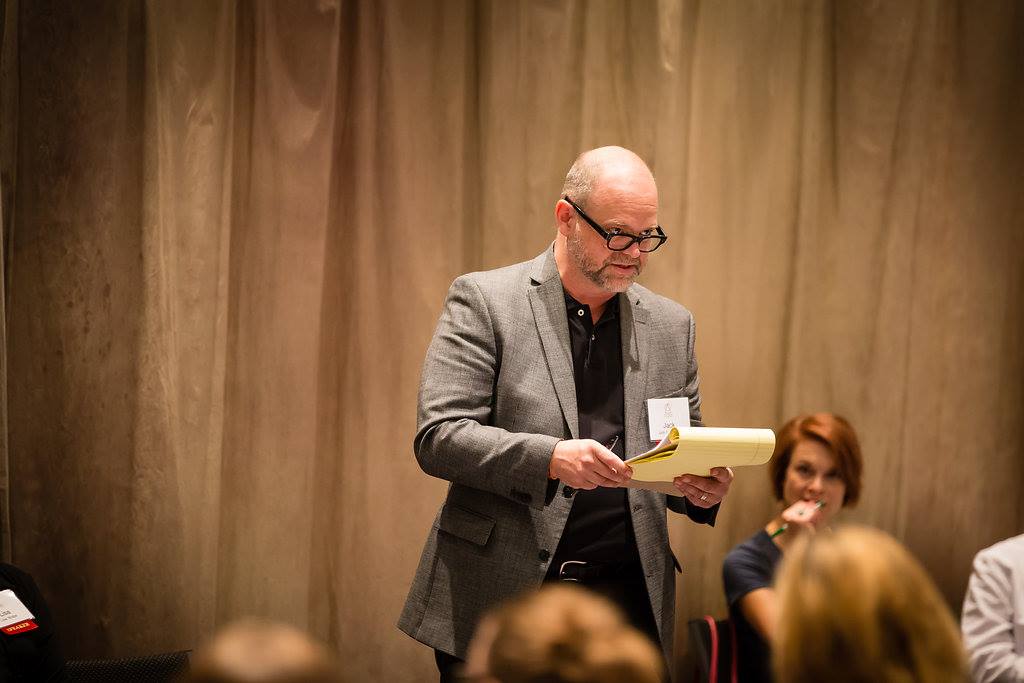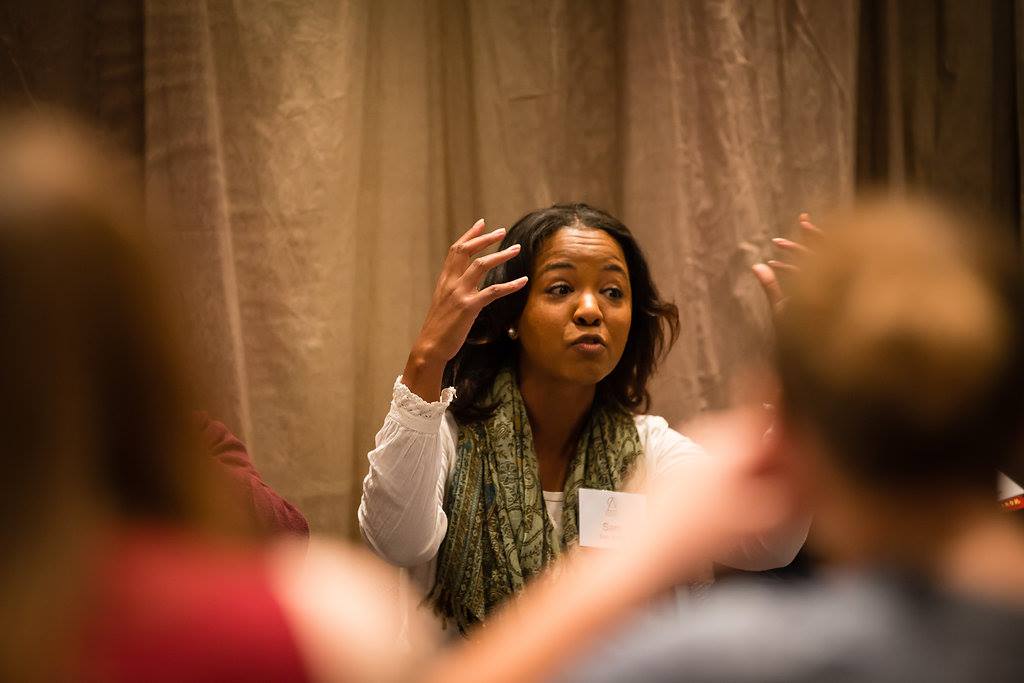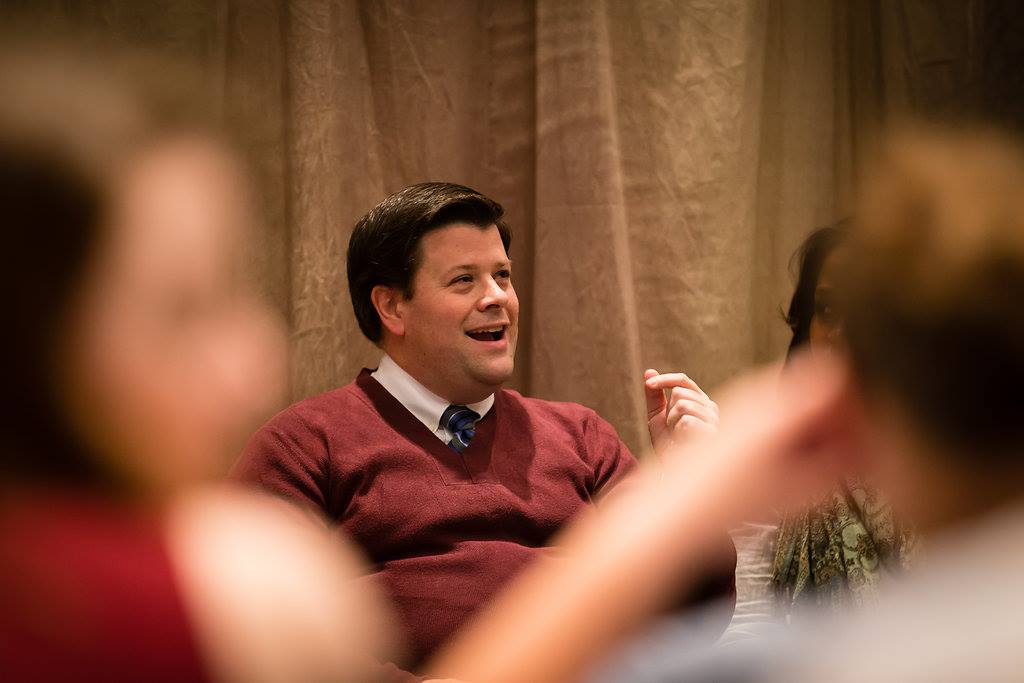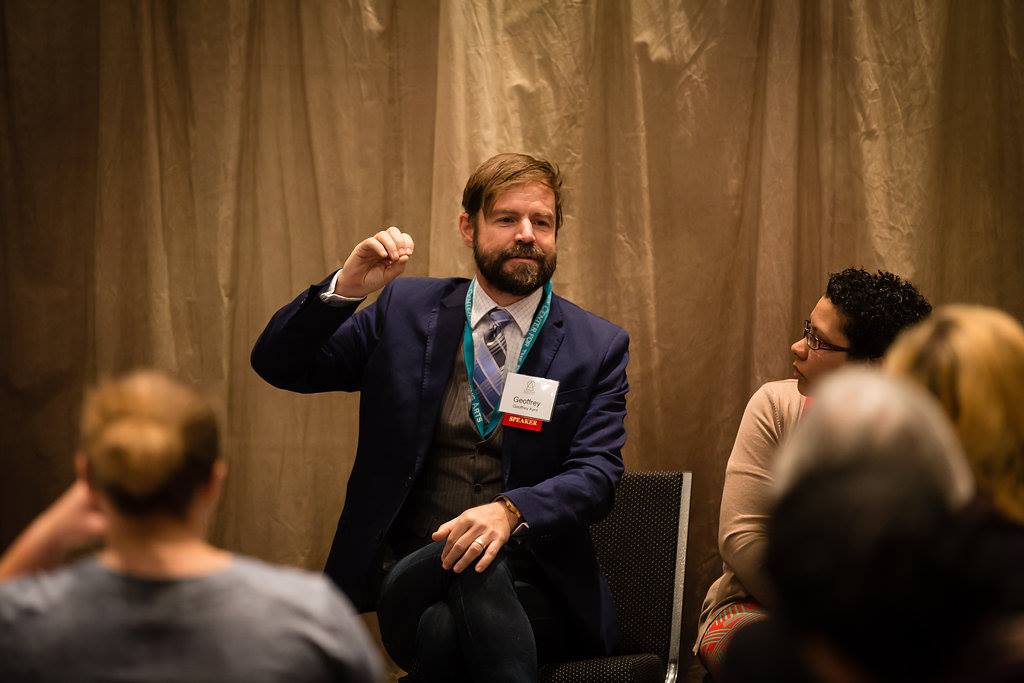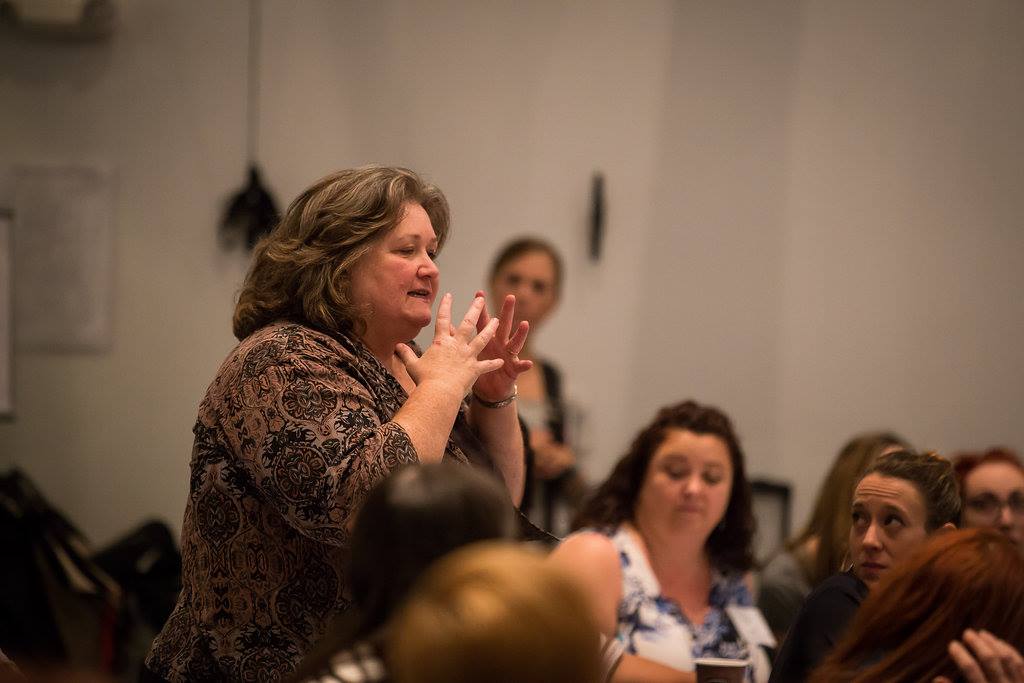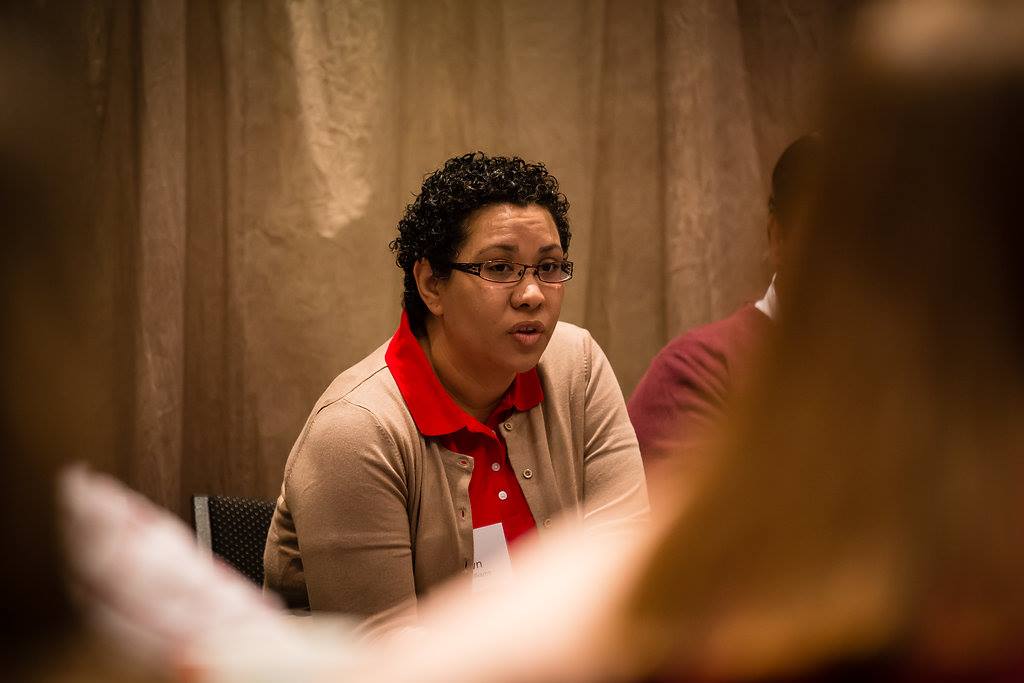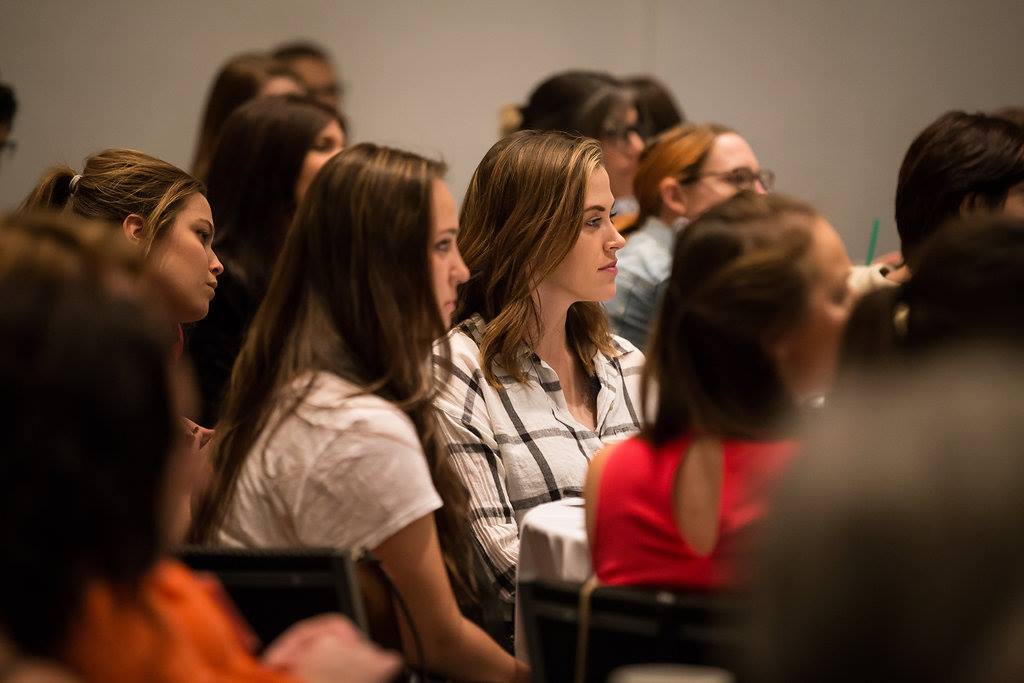On October 27, 2019 May Adrales addressed a room full of 200 theatre-makers and arts leaders at Statera’s National Conference in New York City. StateraArts is proud to publish Adrales’ address here in its entirety. (Note: it has been lightly edited for publication.) May Adrales is a director, teacher and artistic leader. She is currently Associate Artistic Director of Milwaukee Repertory Theatre.
May Adrales speaking at StateraCon in NYC (Photo by Mallory Delaney Hill)
BY May Adrales
I was asked in March of this year to speak at Statera. And I immediately said yes – Statera stood for the same values I shared and also wished to share and practice in my new leadership role at Milwaukee Rep. But as I thought more deeply about Statera – balance, wholeness, wellness, I thought “Why would anyone think I would be a good choice for this?” To quote my best friend, a doctor and researcher and mother of two, Betsy Verna, “Balance is a myth. To me it’s just a minute to minute triage and elimination of nonessential things… and feeling a fullness in my life that is both exactly what I want and also feels totally unsustainable.” Does this sound familiar to anyone else?
At the time, I was directing a show at South Coast Rep, had flown to NYC for the League of Professional Women’s Awards for one night, and then back to tech. Oh, and I was also six months pregnant. Soon after opening that show, I went into another rehearsal, Much Ado About Nothing at Hudson Valley Shakespeare, while also working remotely for Milwaukee Rep, which was going through a major restructuring and strategic planning process. My life was a series of to-do lists. It centered on anything but the growing life inside me. And though my belly grew, reminding me of the approaching day when this being inside me would spring into life, I somehow believed that it would only be a 48 hour waylay before I could answer my emails again and continue to check off my lists.
On June 14, I had a meeting with my mentor and she-ro Emily Mann at McCarter. I had a day off before tech and third preview for Much Ado and I hopped in my rental car and drove down for the meeting. I navigated the endless traffic through Brooklyn and over the Verrazano Bridge. I eagerly sat down to discuss plays, leadership and issues confronting women and the theater with Emily and then promptly went into early labor. What did I do at this point? I had the sense to call my husband and let him know that I didn’t think I should drive myself home. But I laid down in the back of my rented Kia Soul in the McCarter parking lot and had long detailed conversations with my team for Much Ado, going into its third preview, directing the production from afar. It wasn’t until I felt a pain unlike anything I have ever experienced before that it finally dawned on me that everything was going to have to wait. Something much bigger and more forceful was going to overtake all my best intentions. My first lesson in parenting.
After a very traumatic ride with my water breaking over the Verrazano bridge (yes, in the rented Kia Soul), with a half packed hospital bag, a yoga ball and a jar full of almonds (don’t ask), and a very traumatic moan-filled ride up the FDR, I did make it to Lenox Hill Hospital. And 12 hours later, on June 15 at 5:15am, my daughter Macy Jocelyn was born. And unlike I had initially planned, I did not resume my slow take-over of the American Theater 48 hours later. In fact, four months later, I still do not feel further along in my path.
(Photo by Mallory Delaney Hill)
Though in a sleep deprived haze, I do remember staring at this little human in her first month of life, in wide eyed curiosity of what it meant to be a mother, what it meant to be her mother and what it meant to be a mother to a daughter. And looking down at her precious face, I wondered what it really meant for her to be a girl. And I thought of all the hardships, self-doubt, and inner turmoil I had faced as a girl and wondered how I might spare her that same fate. I also wondered what messages she would internalize as a girl? And what might that mean for her as she grew up?
I asked myself what messages I had internalized as a woman and when.
I was maybe seven or eight years old - I was playing with the neighborhood kids and some of their parents in a friendly flag football game. I distinctly remember catching the ball (which was a rare instance because I’m not the most athletic) and running so fast and with such determination towards the end-zone. Ah! The exhilaration! No one could catch me. I was just too fast - too good. I did a happy dance. One of the parents gave me a high five. It wasn’t until a few plays later I realized that the touchdown I had made was actually in the wrong end-zone. I realized this because another boy, a few years younger than me, made the same mistake. And instead of getting a high-five, he was corrected. He was coached. He was taught. He was taught to win.
The boy was taught to win. I was simply allowed to be on the field.
Was it that everyone was afraid to hurt my feelings? Or they just didn’t think I could learn? Or that it didn’t matter if I learned or not? Instead of demanding equal treatment, I was horribly embarrassed. I just stepped out of the game.
I think of how many times I’ve stepped out of the proverbial game since that moment. How I internalized what others thought of my own abilities and how that has hindered me from playing. From taking chances. From winning.
Susan Chira in the New York Times wrote an article in 2017 titled, “Why Women Aren’t CEOs according to Women who almost were.” What their stories show is that in business, as in politics, women who aspire to power evoke far more resistance, both overt and subtle, than they expected would be the case by now.
The impact of gender is hard to pin down decisively. But after years of biting their tongues, believing their ranks would swell if they simply worked hard, many senior women in business are concluding that the barriers are more deeply rooted and persistent than they want to believe.
Women are often seen as dependable, less often as visionary. Women tend to be less comfortable with self-promotion — and more likely to be criticized when they do grab the spotlight. Men remain threatened by assertive women. Most women are not socialized to be unapologetically competitive. Some women get discouraged and drop out along the way. And many are disproportionately penalized for stumbles.
In our own industry, where the majority of ticket buyers are women, here are our statistics:
Women directors account for 31.9% while men take up 68.1% of those jobs
The gender gap is roughly the same for designers
Women playwrights 28.8% and Men 70% and non-binary .4%.
Also, women writers and directors make significantly less than their male counterparts, because they are often relegated to the smaller LORT D venues.
In 2018, women only held 27% of leadership positions in American nonprofit theater.
Maddeningly, A Harvard Business Review study investigated male vs female leadership and concluded women are more effective leaders. They found that women scored higher than men in building relationships, inspiring and motivating others, practicing self-development. It also debunked the stereotype of men as “take charge” – as women outscored men in taking initiative and driving for results.
But the status quo indicates that women should feel lucky that they are simply allowed at the table, in conversation and allowed in the game. That should be enough.
Well, it isn’t enough. Because now that I have a daughter, it can’t be enough. I think I have to teach her. But instead, just like the story of her birth, Macy teaches me.
In my brief time of motherhood, here is what I’ve learned about being a woman.
I don’t ask for permission to show up. It used to be that I would try to assume my place, not make too many waves and do what I should. Well, these places were largely created by men. Mainly white men. And for white men. Now I march into my work spaces with my daughter. And I never apologize for her presence, as I would have a year ago, apologizing for myself occupying that space.
I define boundaries and create my own space. Before Macy was born, I would do the job – even if it meant not eating, sleeping or having a social life. But what if I treated myself with the same care and love I gave Macy? It’s very simple and easy for me to choose to prioritize her needs of hunger and sleep and attention. Why don’t I ever allow that for myself? In creating my own boundaries and being much more clear and confident in that directive, I make room for me. I reaffirm my own self worth and hence can make space for the things that make me – me. My art. My creativity.
Self-esteem comes from self-care, not achieving goals. This was a big one. I am the definition of goal-oriented. But have you ever reflected when you accomplish a goal that it still isn’t enough or exactly what you wanted? If I get to direct this play on this stage, etc…. But when I am taking care of my own needs, filling my life with joyful moments, I am more confident, creative, and more ready to realize my full potential.
Don’t lean in (Sorry Sheryl Sandberg) to a system that doesn’t work for you and hasn’t worked for 95% of women in that system. But do lean on a supportive community. Surround yourself with people who regard your ambition as inspiring, not aggressive or even worse, cute. Surround yourself with people who find your directness and forthrightness as marks of confidence, not as being difficult. Be around those who recognize your assertiveness and ability to take charge as leadership. Surround yourself by those who challenge you to take your anger and rage and channel it into productivity rather than dismissing it by telling you “to be nice.” “to be calm” or “get used to the system”. Surround yourself with a community that fills you.
Quality at work; Quantity at home. My sister shared this advice to me when I got pregnant and I didn’t understand the depth of its wisdom until now. The status quo is the reverse. Spending long hours at work is an external sign that you are a hard worker – you put in your due diligence – you have paid your dues. And many measure the 1-2 hours you get to spend with your kids or yourself as enough quality time. But I would argue that the opposite is true. Work to live, not live to work. Let the time at work be efficient and thorough, but spend the bulk of your time on what you live for.
This leads me to talk about the theater – theater is that thorny beautiful beast that, for most of us in this room, is a passion worth working and living for. I truly believe we are all together in this room because we believe that theater is a platform for civic greatness. That the form has an opportunity to model a better world through the stories it tells, serving as a forum for lifelong learning, critical examination and emotional connection. It models a better world in how it tells those stories – through deep personal connections and collaboration. And it has the opportunity to model a better world through the institutions that govern how this work is made.
But these institutions, beholden to a board of trustees that are most often populated by older, white men and indebted to donors who represent the 1%, are more often aligned with methods and ossified practices that are exclusionary to women, people of color, and people who do not have the financial means to participate. So how do we model our institutions to be the change we want to see?
(Photo by Mallory Delaney Hill)
Let’s examine the system in which we operate.
The credo of 21st Century American capitalism is that the best employees show unending loyalty to work, staying long hours and being on call. This is a major driver of gender inequality: Working like this also contributes to burnout, stress and poor health — without necessarily helping productivity. It’s one of the reasons that Americans have among the lowest levels of happiness and work-life balance in the developed world.
But we work in the theater – Working 10 out of 12 hours and 6 out of 7 days a week is a REQUIREMENT isn’t it? But a few people are changing the system.
Susan Booth at The Alliance ends her tech rehearsals at 10pm and everyone on her team is just on their game, focused and putting in quality work.
Playwrights Realm, led by Katherine Kovner, produced a play, MOTHERS, that allowed children to join rehearsals and paid for babysitting during tech and also for opening night. Fiasco Theater Company rehearses 10-4 or 11-5 and has weekends off, adding additional rehearsal weeks.
Like I mentioned before – the game you are asking permission to be a part of is a game invented by people who bought into the idea that theater is a corporation. Instead of an industry that is about connection and humanity.
So we must make our own space. Play a different game. And invent our own rules.
How do we change the game?
How do we change the fabric of the institution itself?
Are you in a position to make decisions on season planning and the work you produce? How can you empower more women to have leadership roles? Do you or your organization make an assumption about a woman’s ability to do the work, therefore not even asking her? Has anyone in this room heard, “I knew you just had a child so I assumed you wouldn’t be available…”
If you are part of an organization that claims that equity, diversity and inclusion is a core value, you need to be the squeaky wheel to make sure that core value is reflected in every aspect and every decision of that theater. That means what is programmed on their stages, who is onstage, backstage and in the audience. And also that the organization’s practices allow for people of all abilities, shapes, sizes, color, gender to participate fully.
This activism also extends beyond the walls of the theater into our communities and our government. The United States of America is virtually alone among the community of nations in not having government-mandated paid parental leave; Only Lesotho (Li-soo-too) and Papua New Guinea share our basic unwillingness to recognize the fundamental importance of parents being home with their children during their first months of life. And that lack of paid leave is fundamentally a barrier to women succeeding in the workplace because it both increases the burden on women to leave their jobs after childbirth and makes employers more reluctant to hire women at all.
Be visible – don’t apologize for taking up space. Don’t apologize for showing up. As a woman. As a parent. You can take your child to work.
Even if you aren’t in a senior position at a theater, you can still be a leader. Work to change the culture of your organization by leading by example. Practice active listening, find ways to create safe psychological spaces so that people can feel safe to be creative and speak freely.
Create a culture of mindfulness at work. I had a stage manager who was yoga certified and she led yoga classes before rehearsals. My current boss practices meditation and makes time during his busy day for that and encourages others on his team to do the same. For directors in the room, how do you shape and model your rehearsals rooms to reflect the change you want to see?
Last year, Nataki Garret made a call to support the sea change in our industry. Women have been named to 41 percent of the 85 leadership positions filled since 2015, and people of color have been named to 26 percent. Support those women and support those people of color. Support those companies, whose boards believed in their capacity to make change.
And lastly but most importantly, give space for Mentorship. Do not miss the opportunity to coach. Do not simply ignore and allow that young girl to make a mistake and think it is charitable or kind to let it go. Teach her. Nurture her. Help her speak up. Rise up.
When she rises up, we all rise up.
Thank you.
ABOUT MAY ADRALES
May Adrales (she/her) a director, teacher and artistic leader. May helmed the world premiere of Lortel Award and Obie Award-Winning production VIETGONE at Manhattan Theatre Club/ South Coast Rep, Oregon Shakespeare Festival, and Seattle Rep. She has just been named the Associate Artistic Director of Milwaukee Rep. May served as Director of On Site Programming at the Lark Play Development Center (2008-2010), developing programs to support and nurture over 200 playwrights. She served as an Artistic Associate at The Public Theater (2006-2009), spearheading the Shakespeare Lab, a professional conservatory.
May is the recipient of the TCG Alan Schneider Directing Award; Stage Directors and Choreographers Foundation’s inaugural Denham Fellowship and the Paul Green Emerging Directing award. She is a recipient of a TCG New Generations grant. She has been awarded directing fellowships at New York Theater Workshop; Women's Project; SoHo Rep; and The Drama League. She has directed and taught at NYU, Juilliard, American Conservatory Theater, American Repertory Theater, Fordham University and Bard College.
May is a first generation Filipina American. She grew up in southwest Virginia with her three sisters JoAnn, Gina and Tricia and had a backyard full of chickens, pheasant and dogs. Her father, Dr. Mamerto B. Adrales, a general surgeon and her mother, Jocelyn Divinagracia Adrales, a nurse, established a home and successful family practice in Covington, VA. She is a lover of ice cream and martinis and balances this love with a passion for running and marathon racing. She currently lives in Brooklyn with her husband, architect and theater designer, Brad Kisicki.
More info at www.mayadrales.net
_format-1500w.png)

